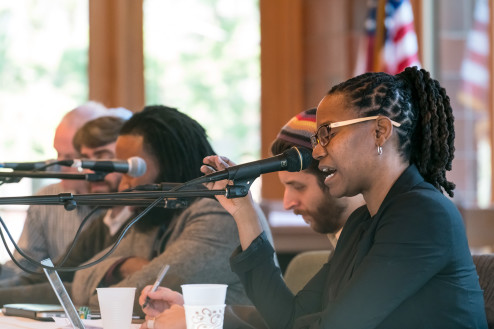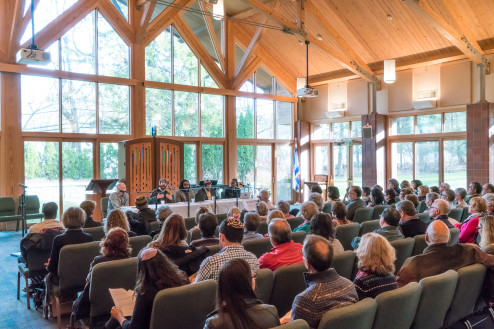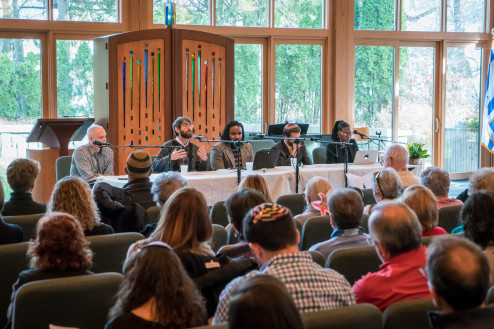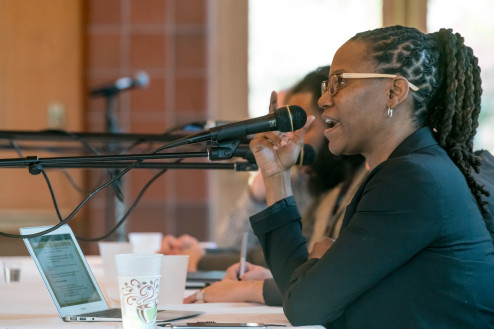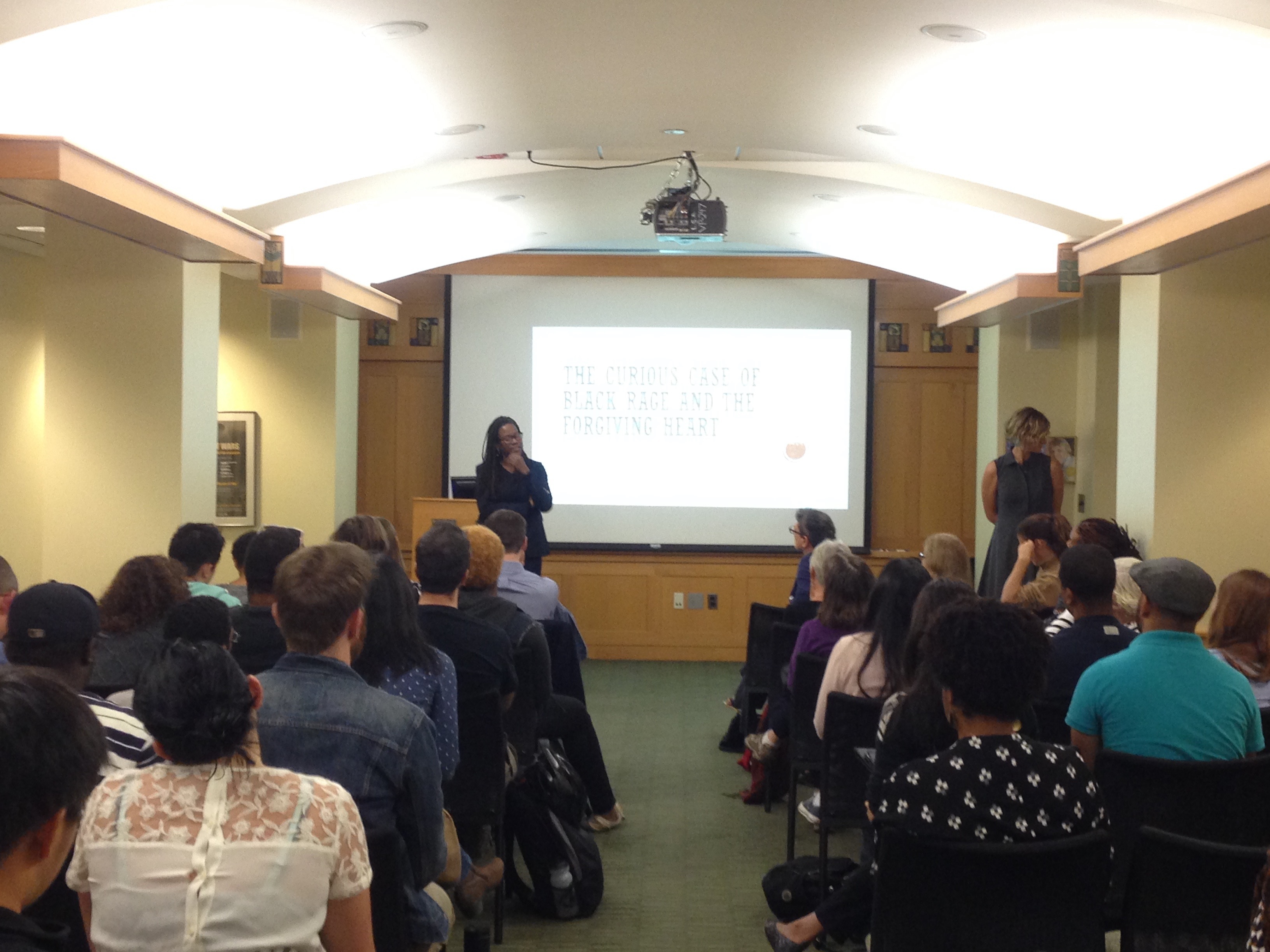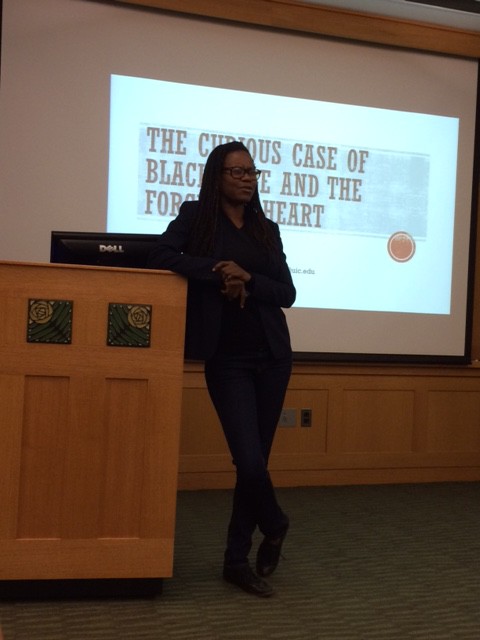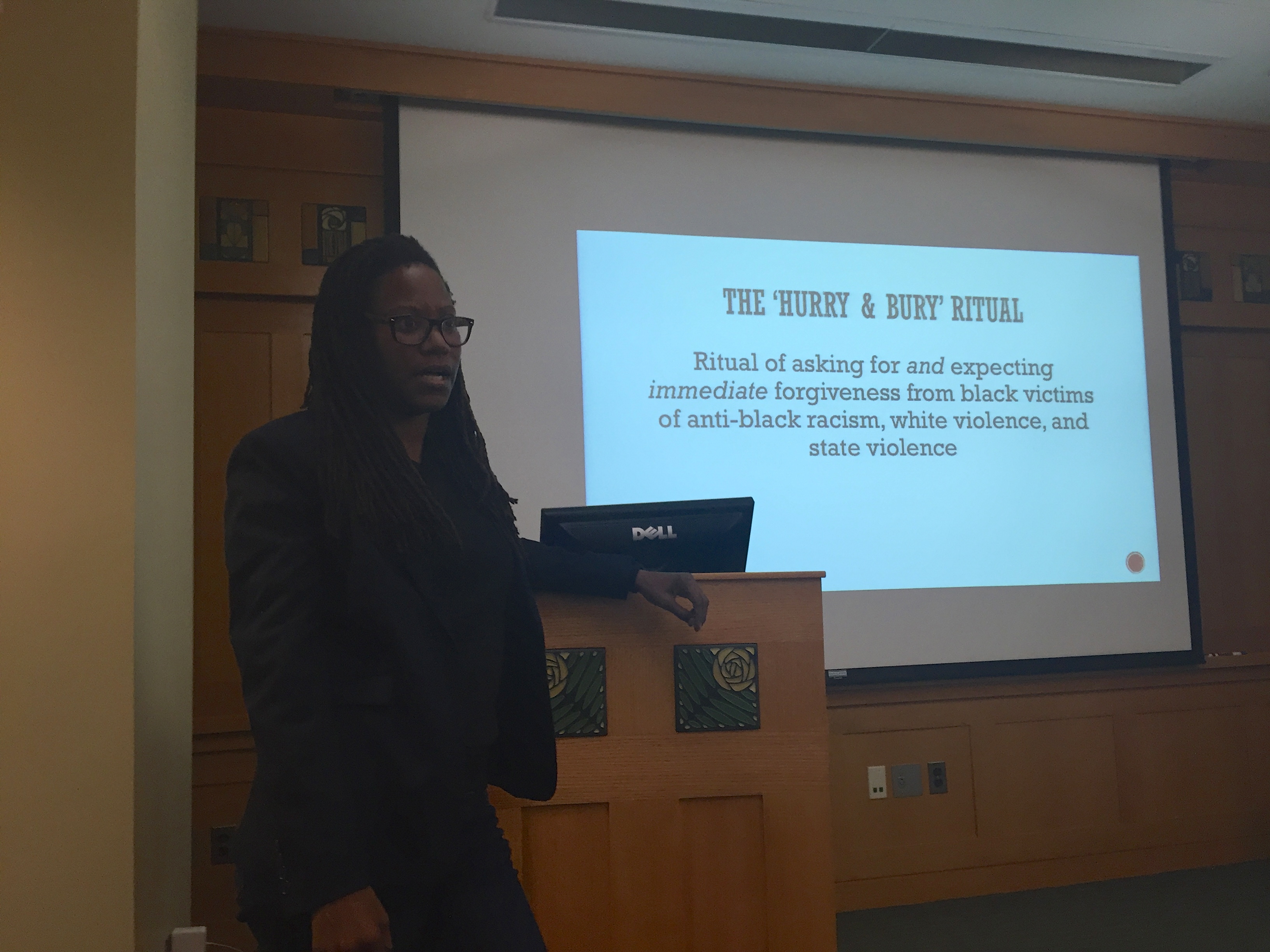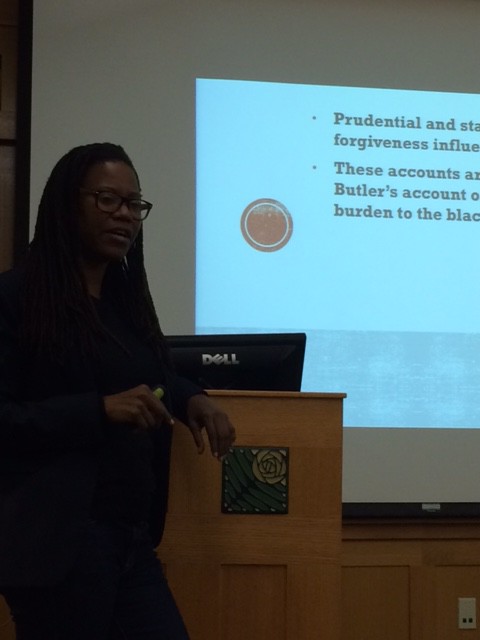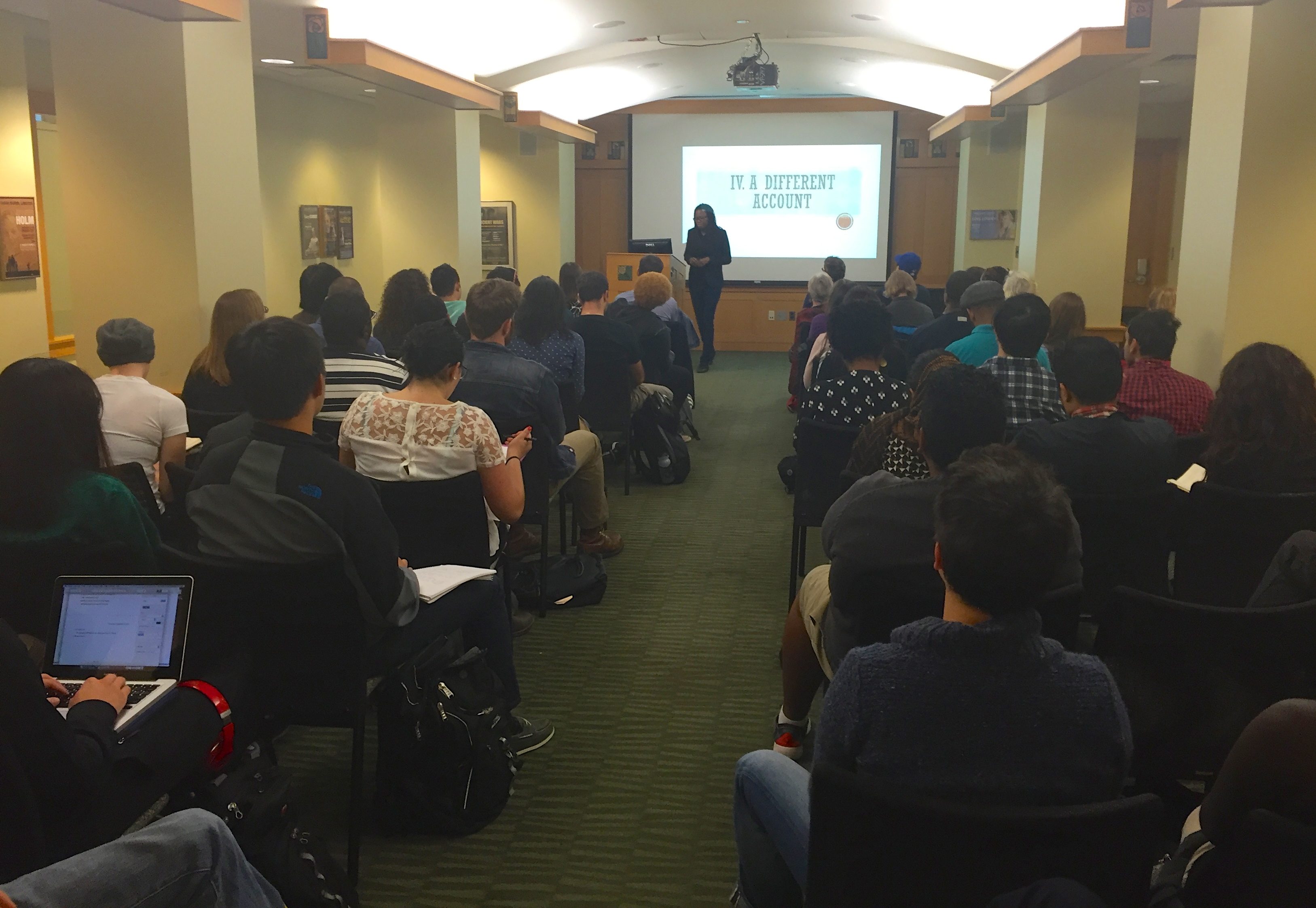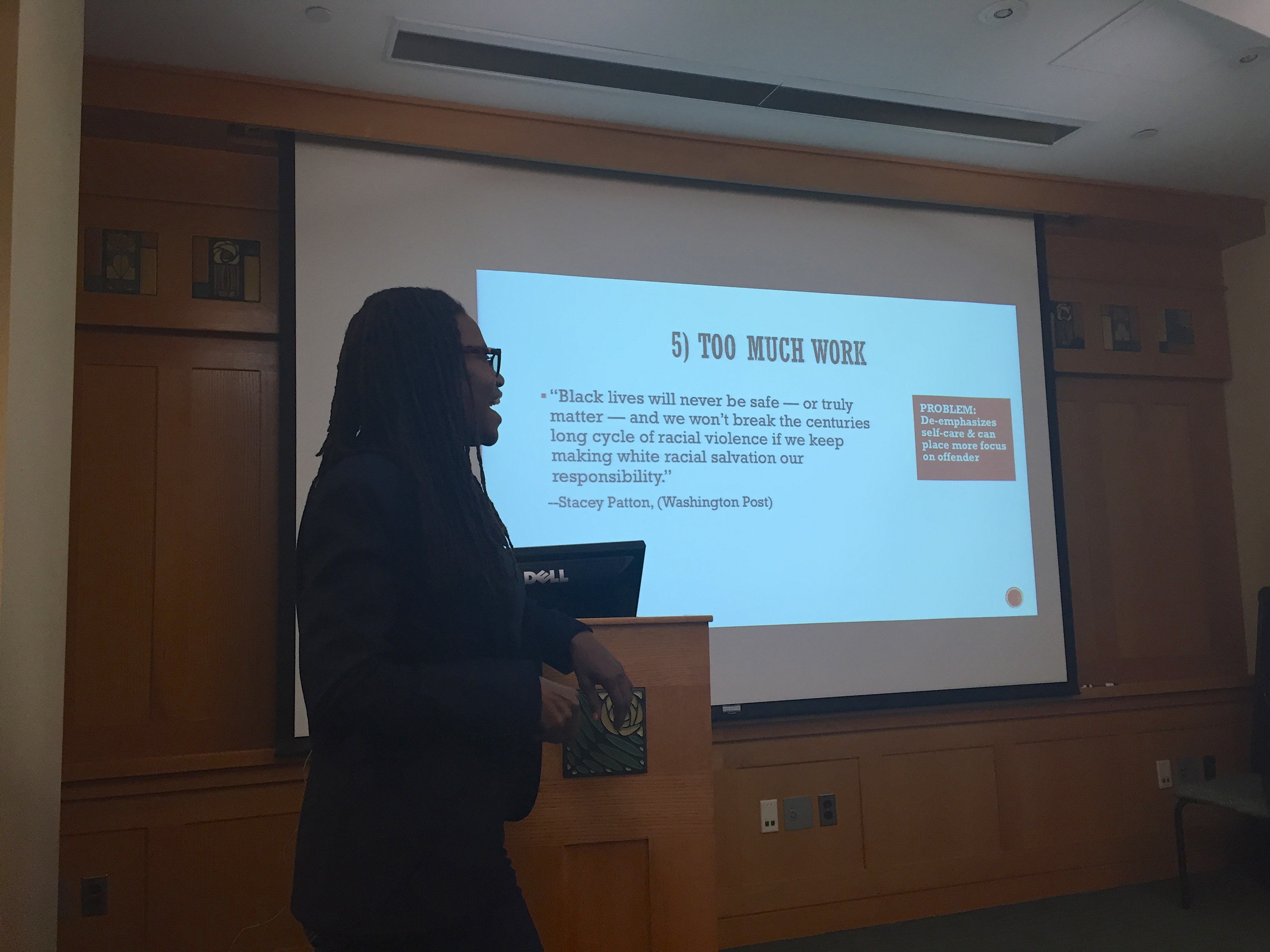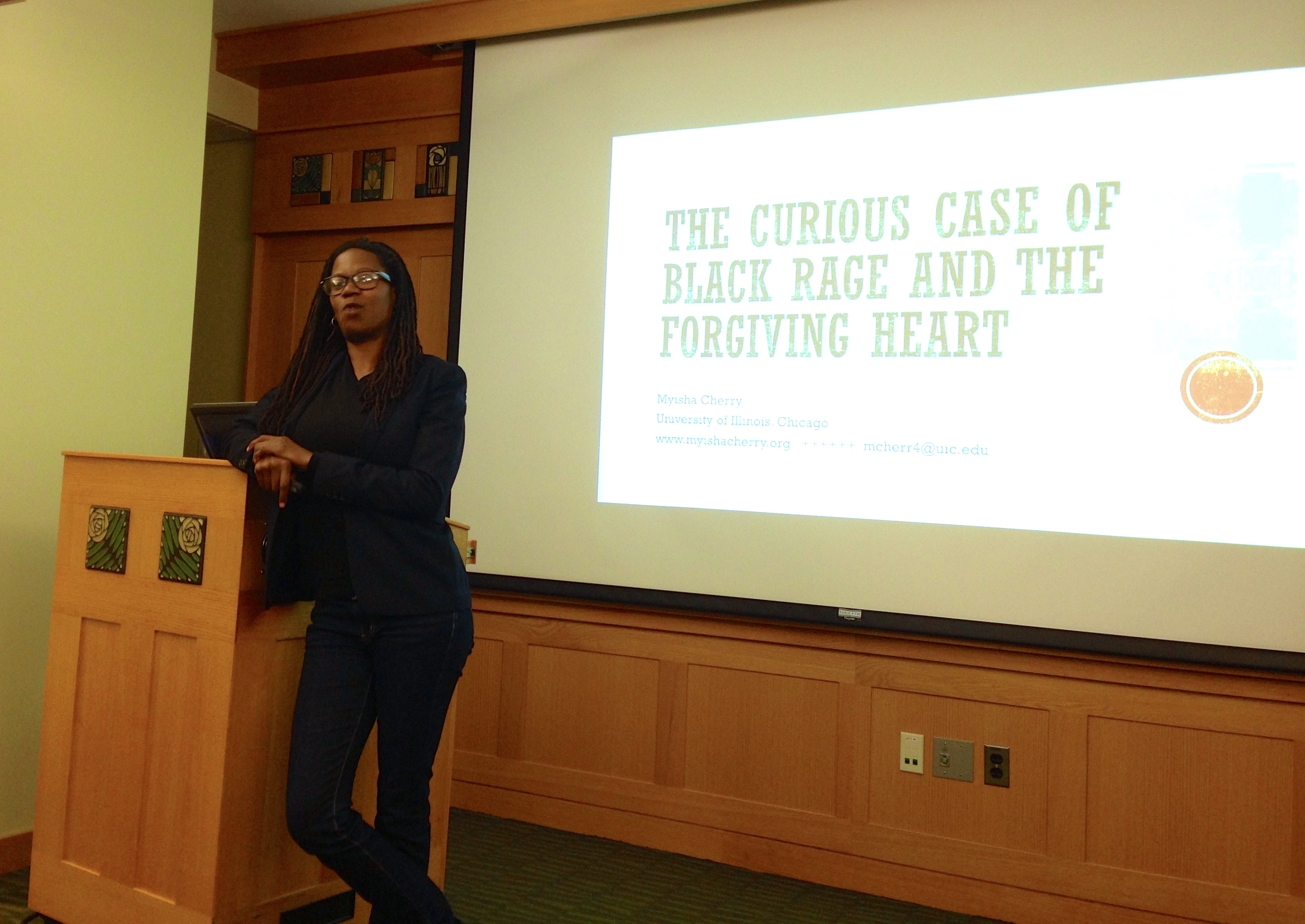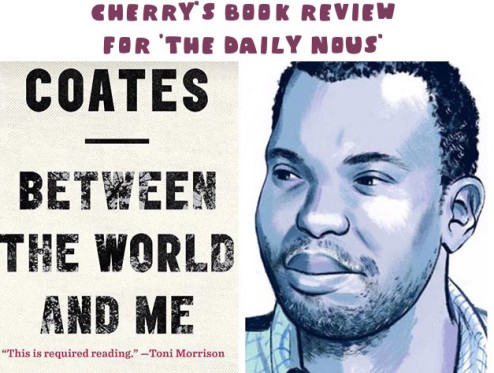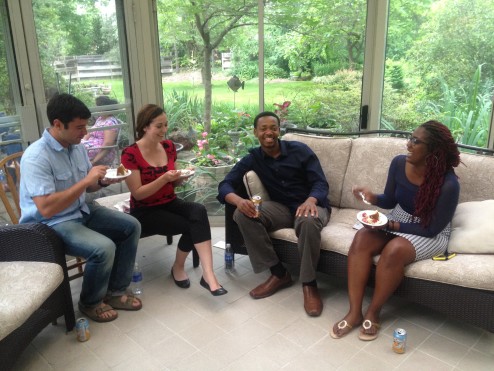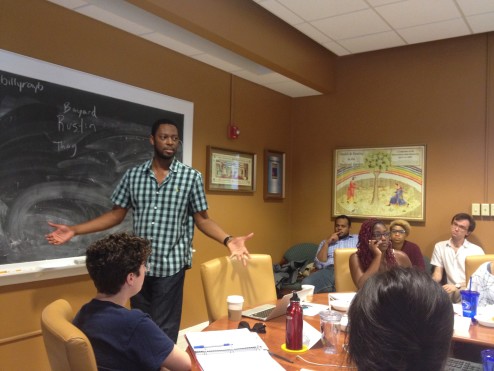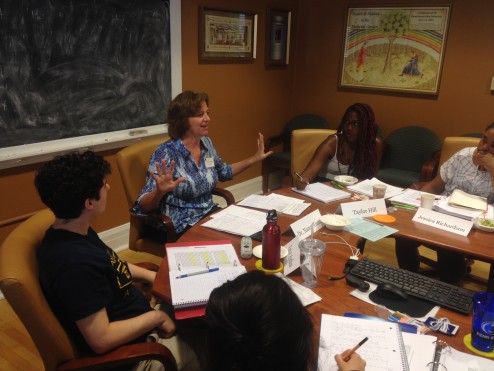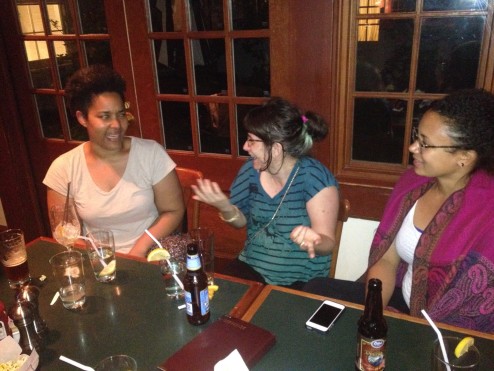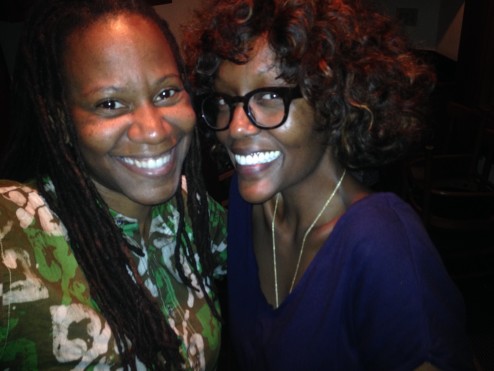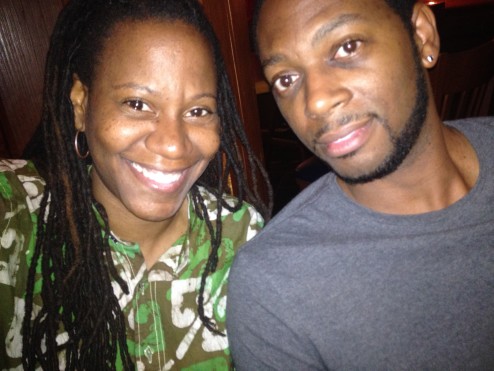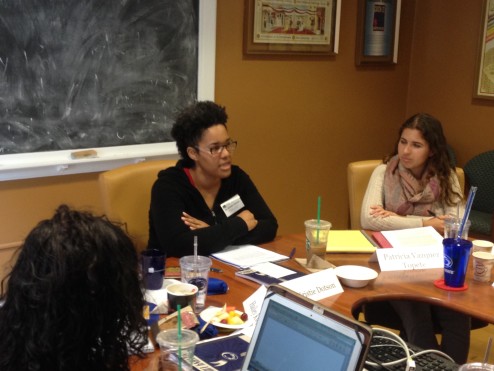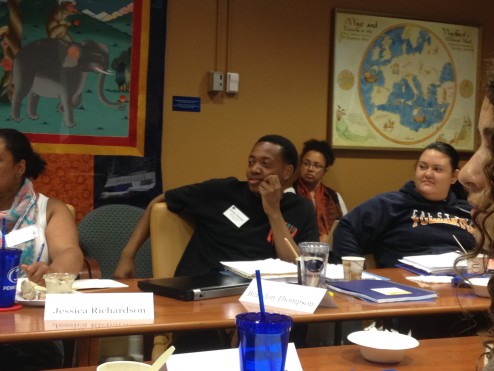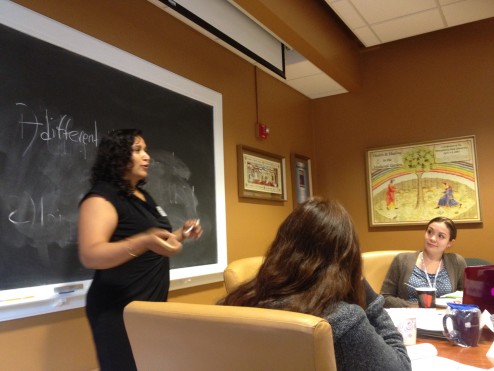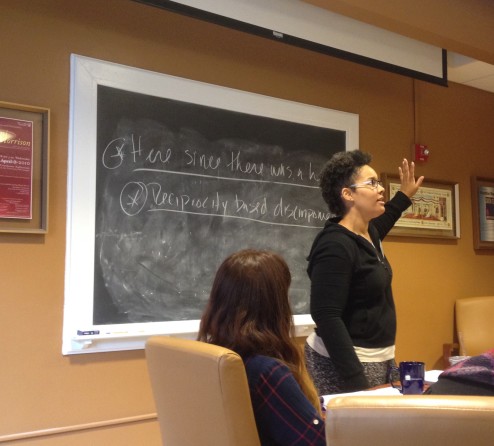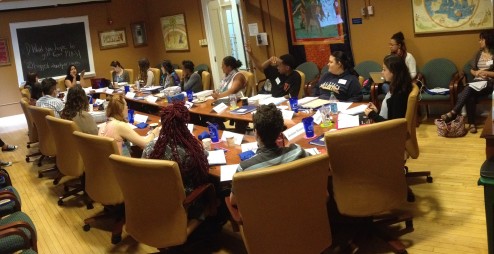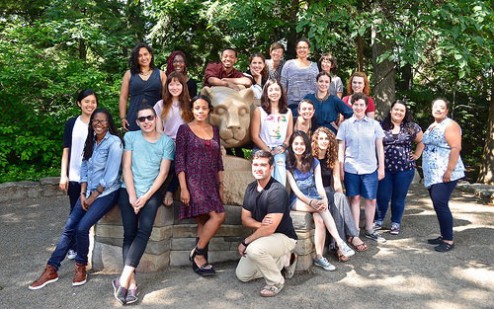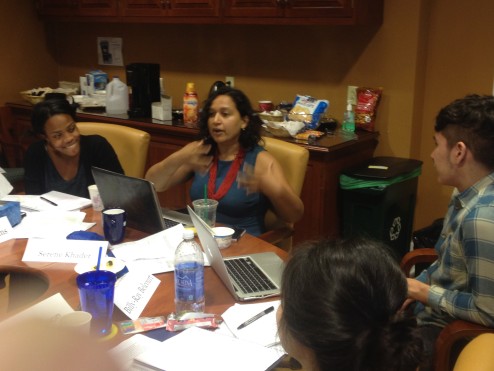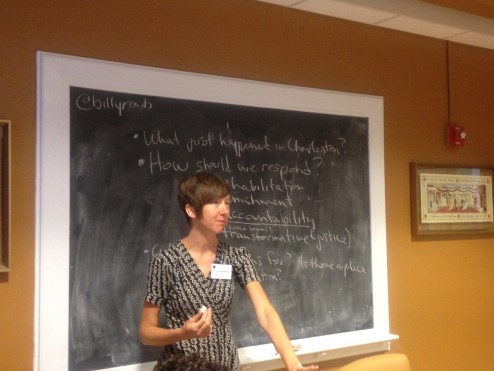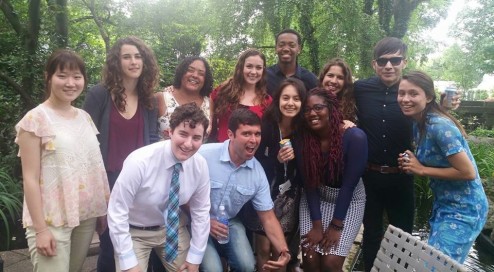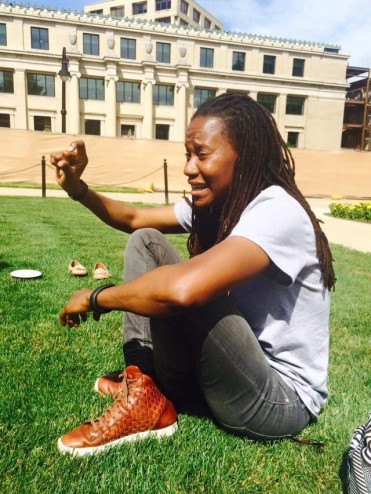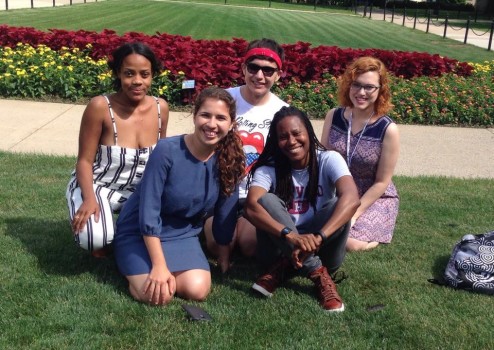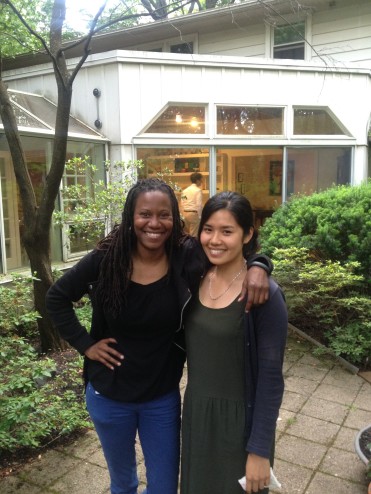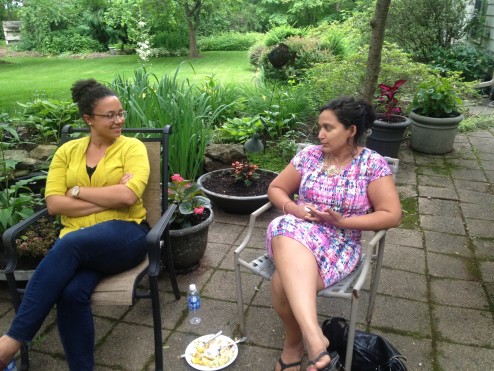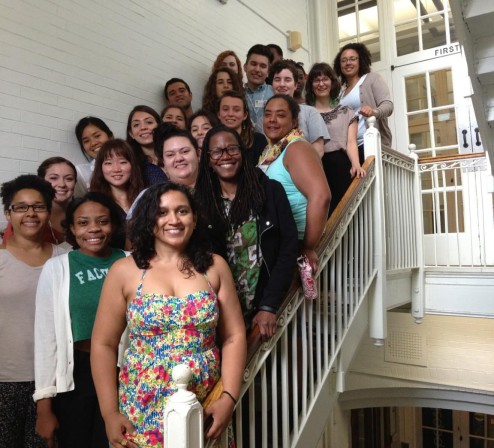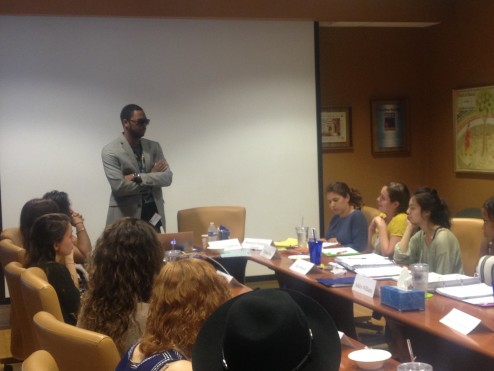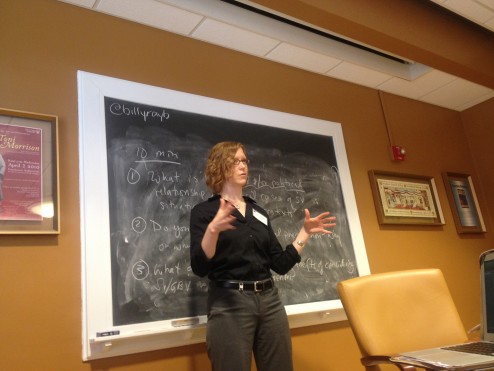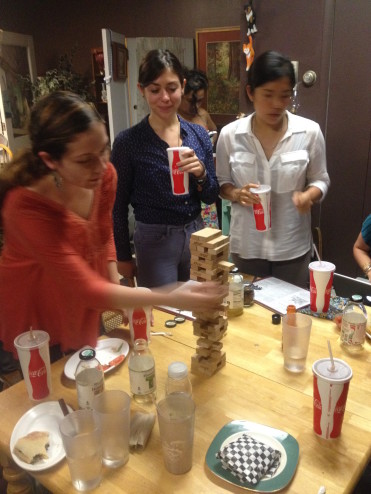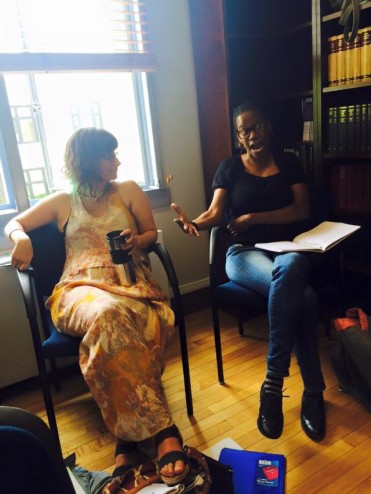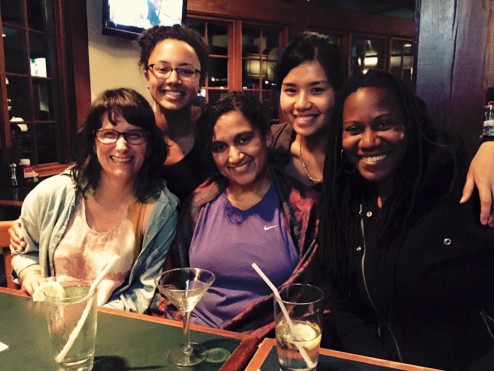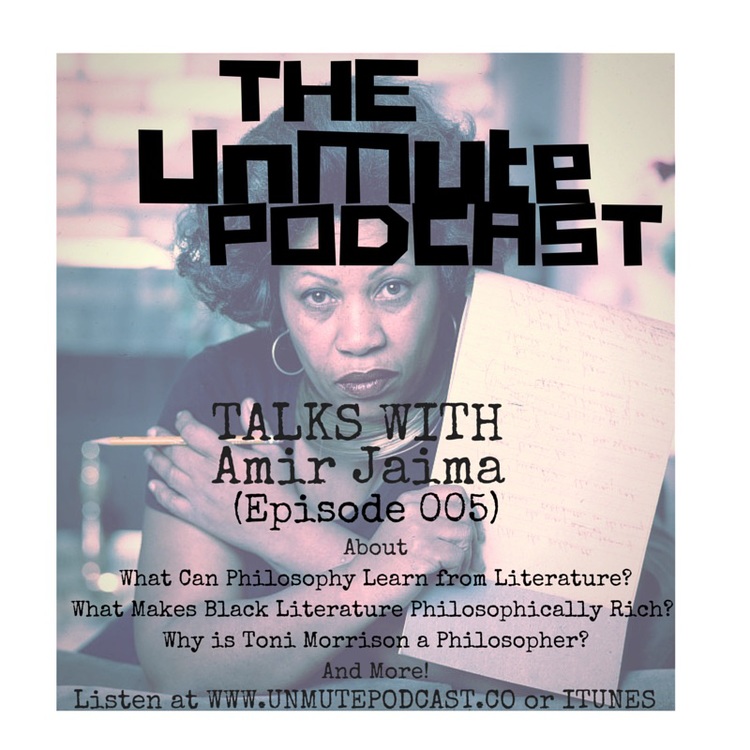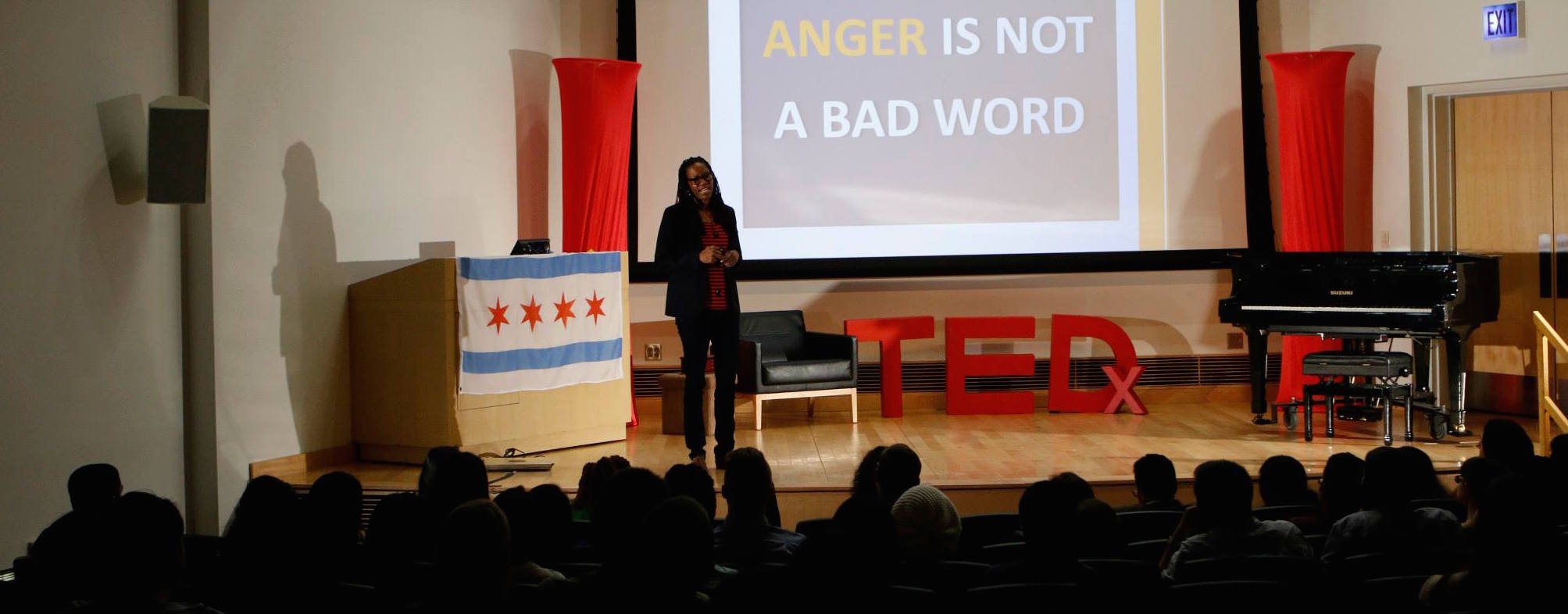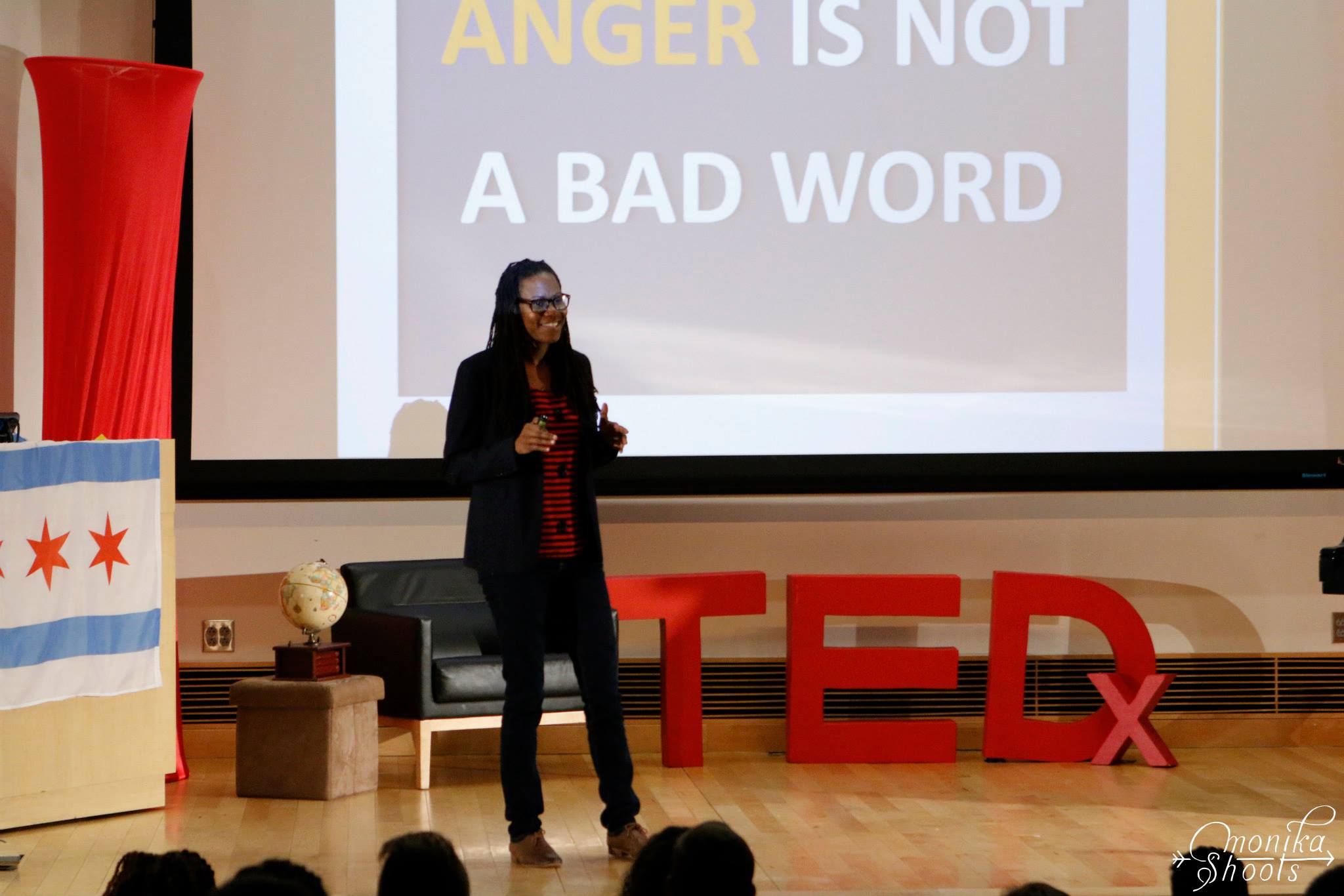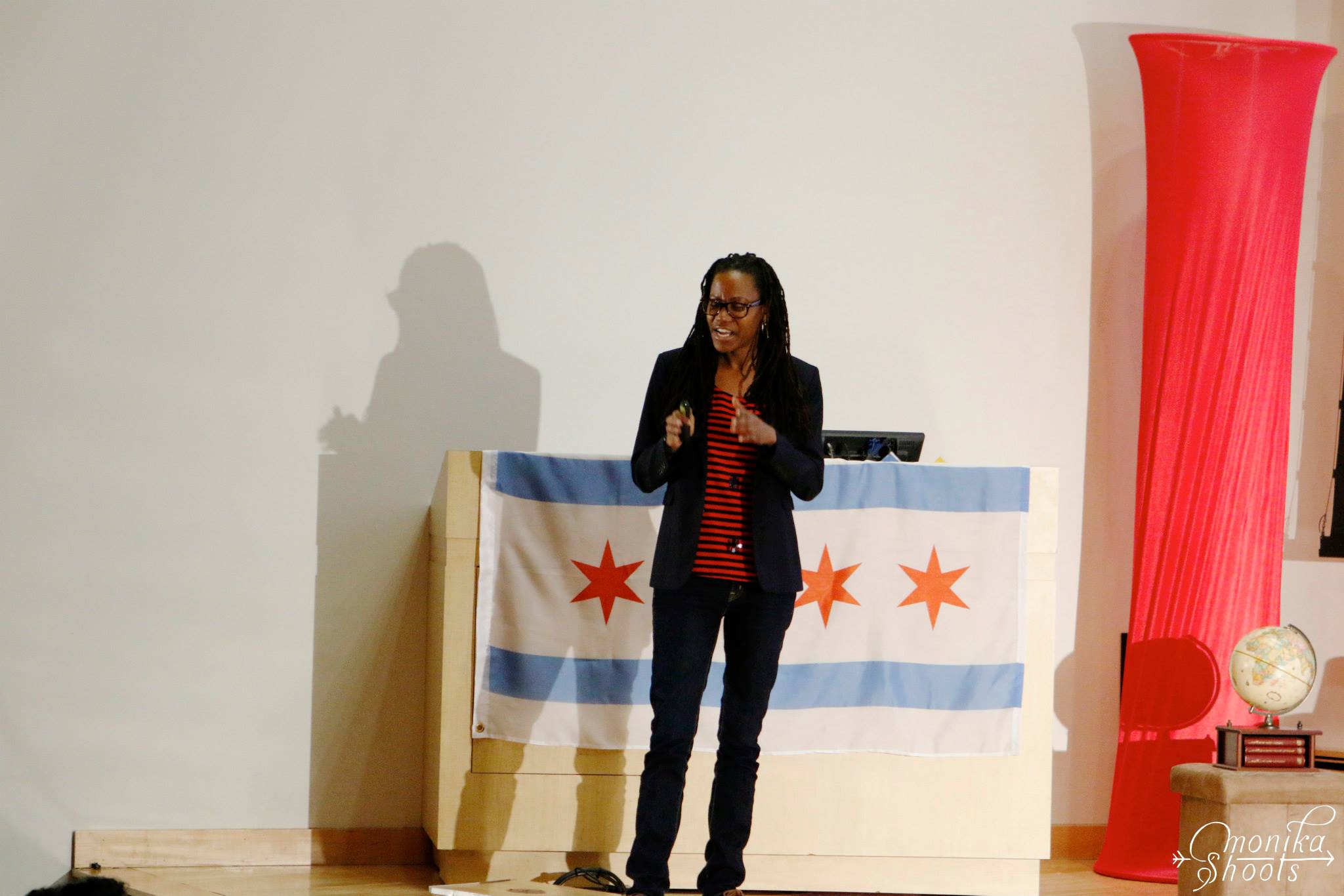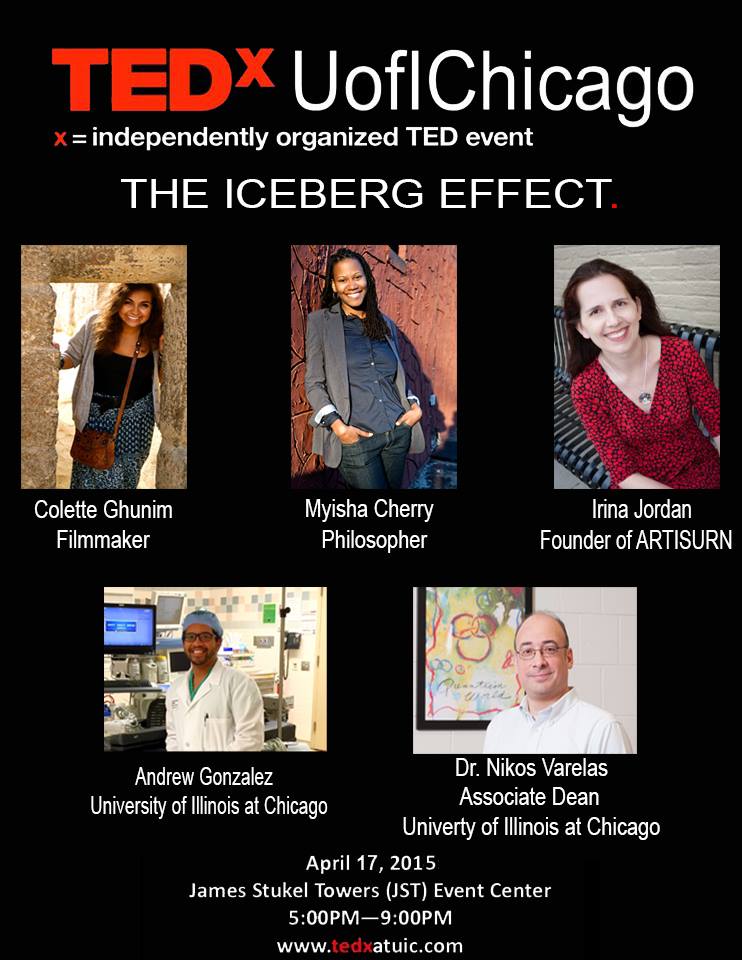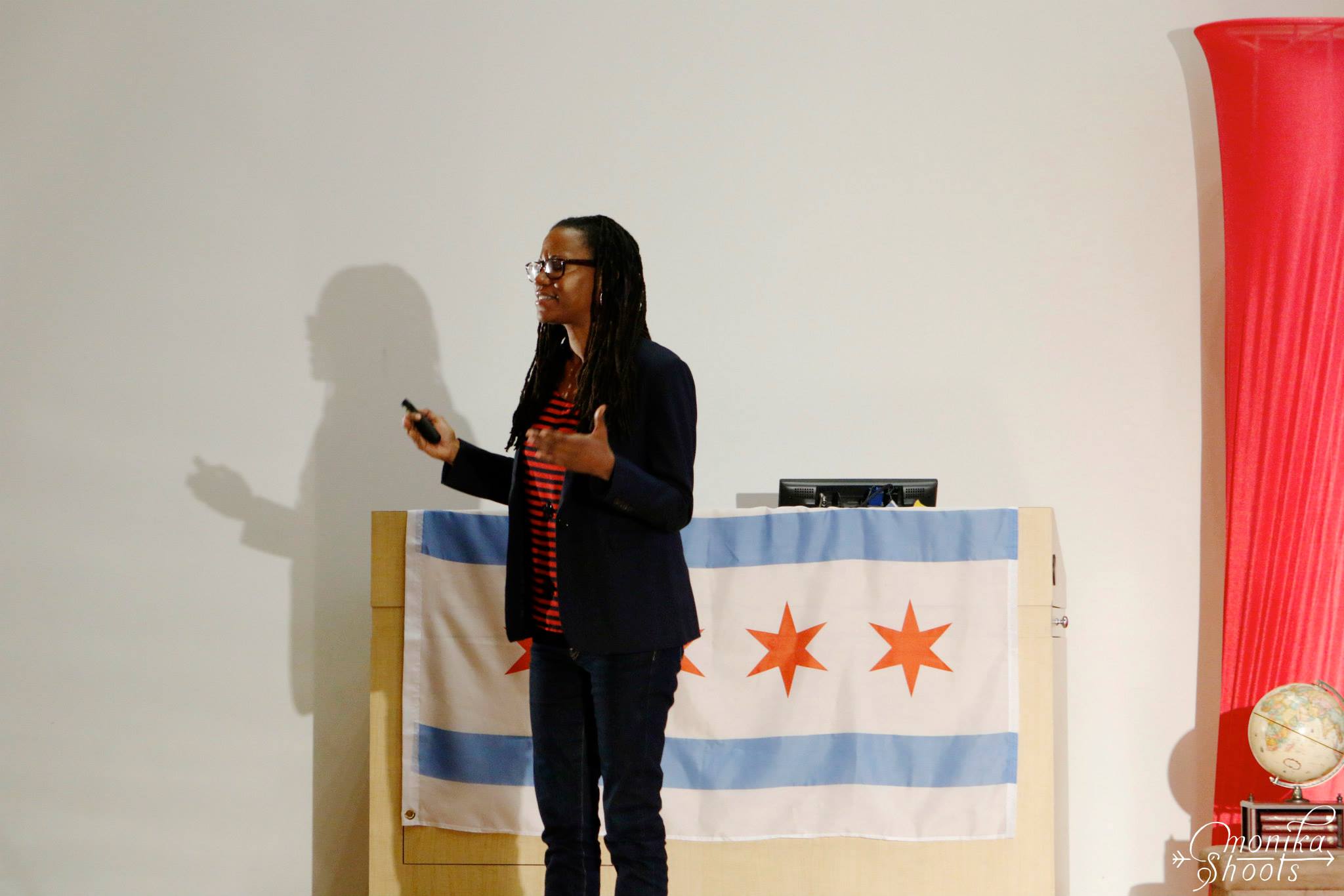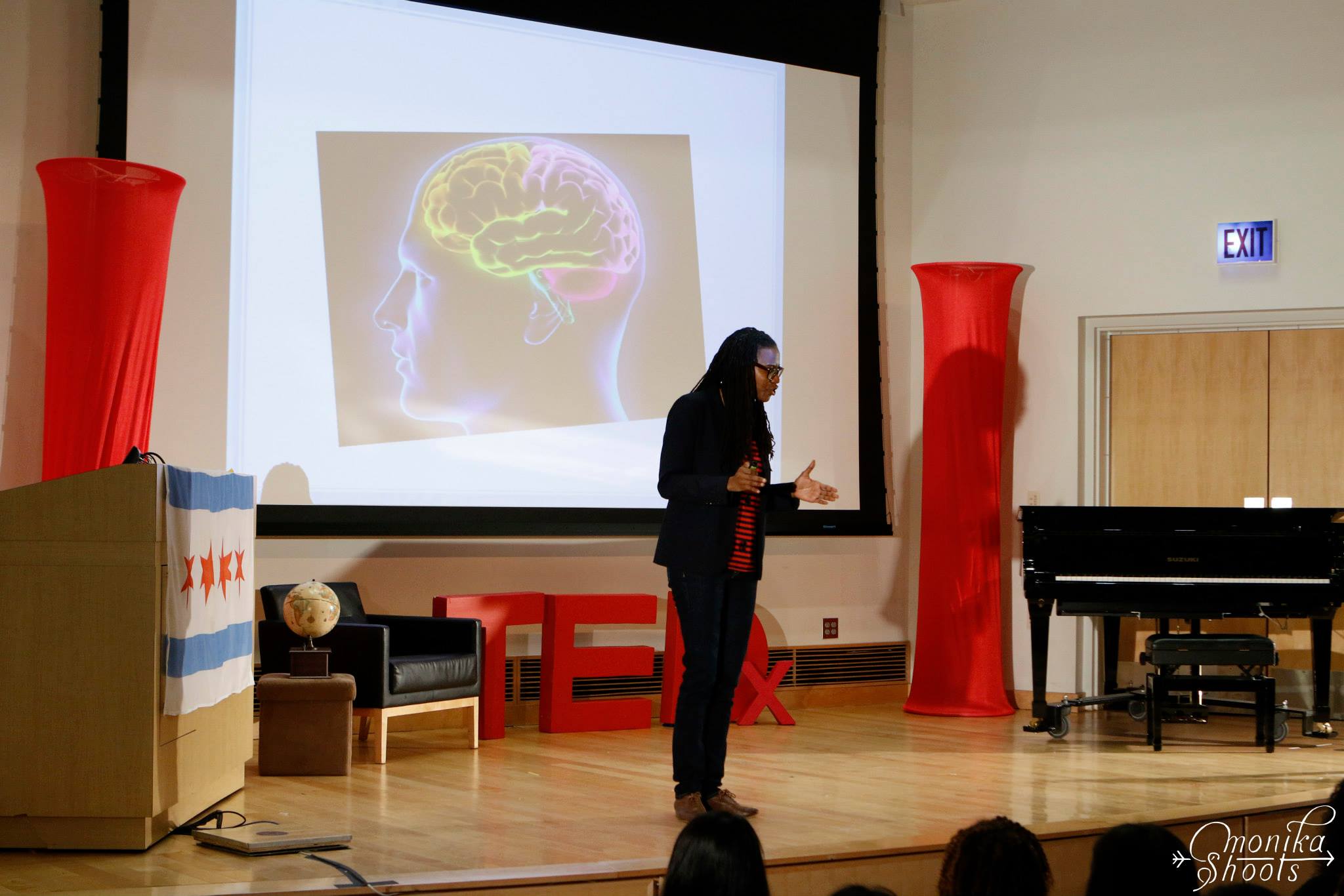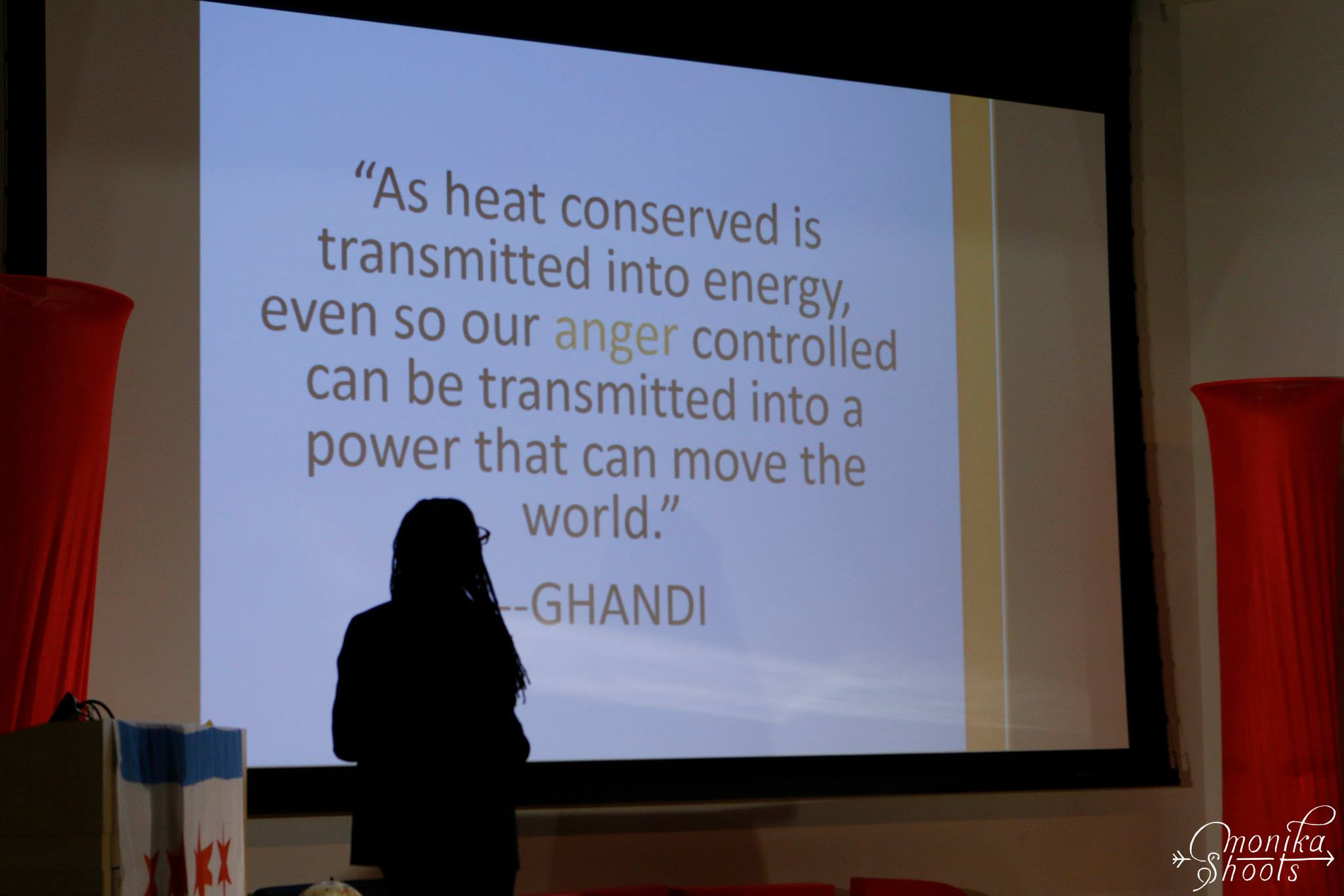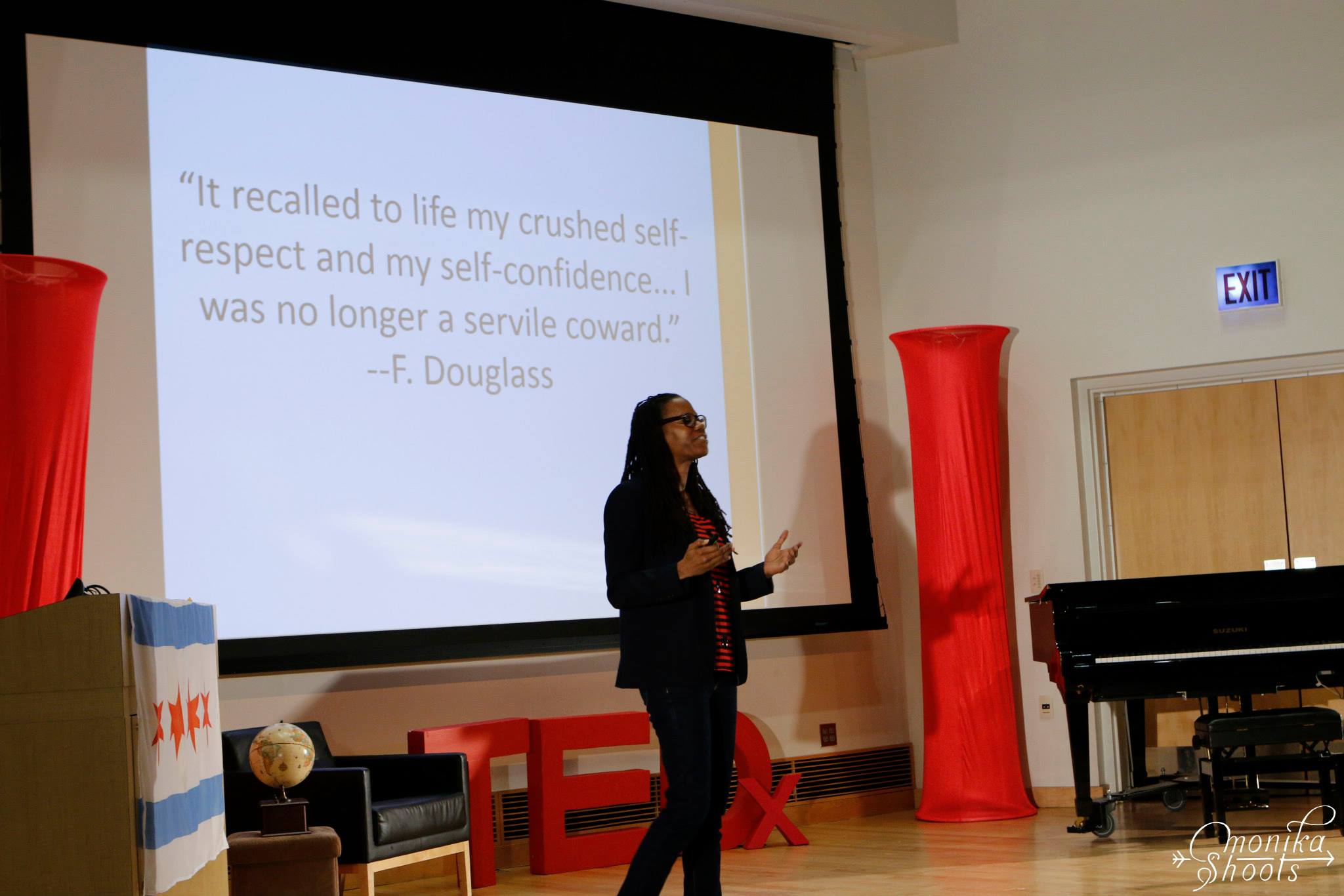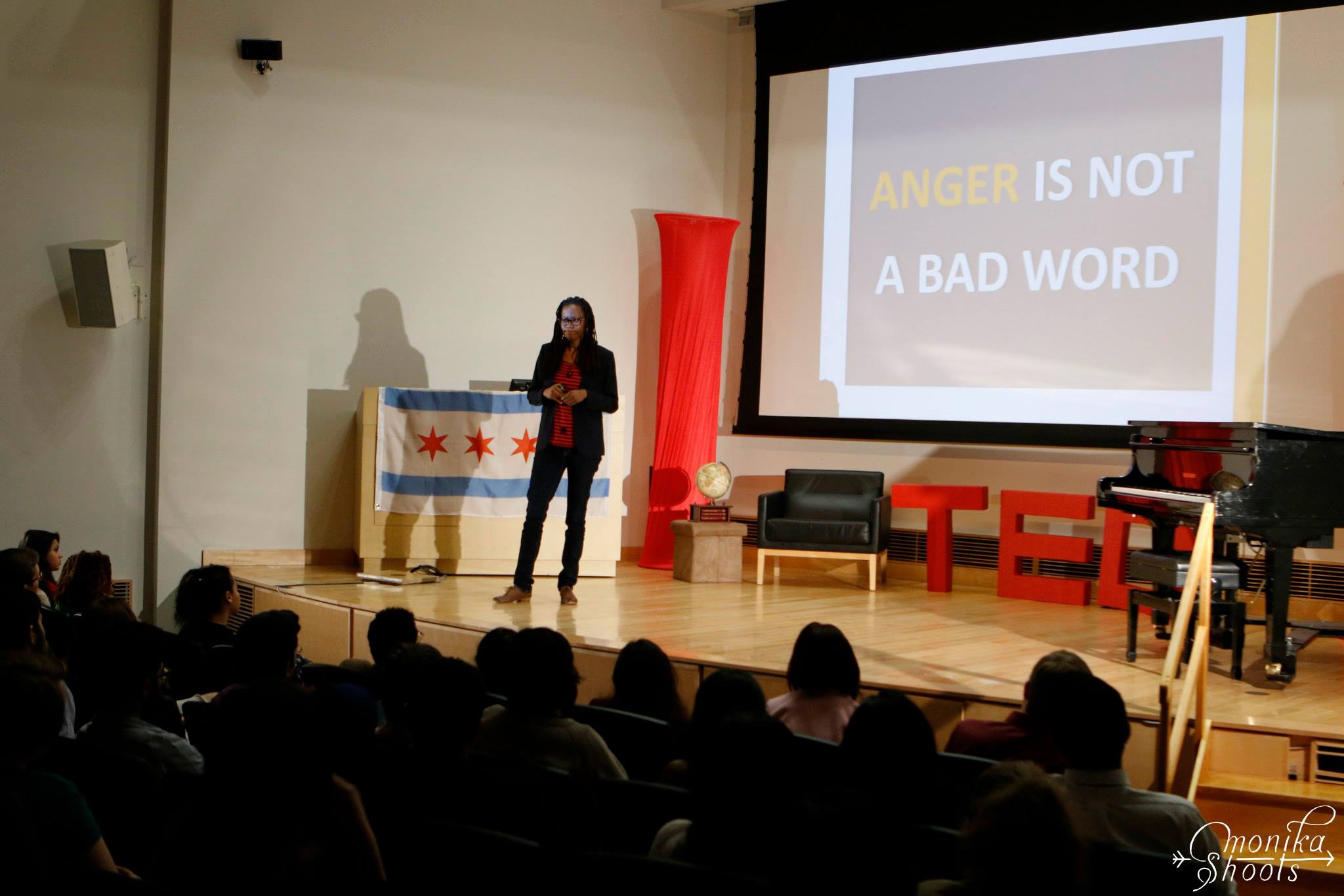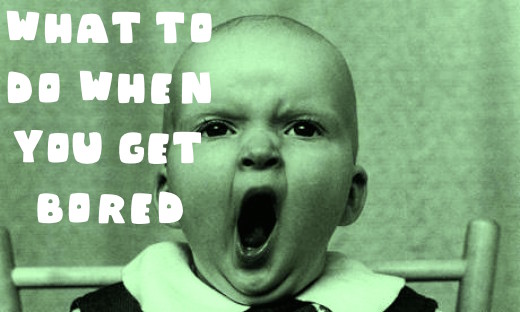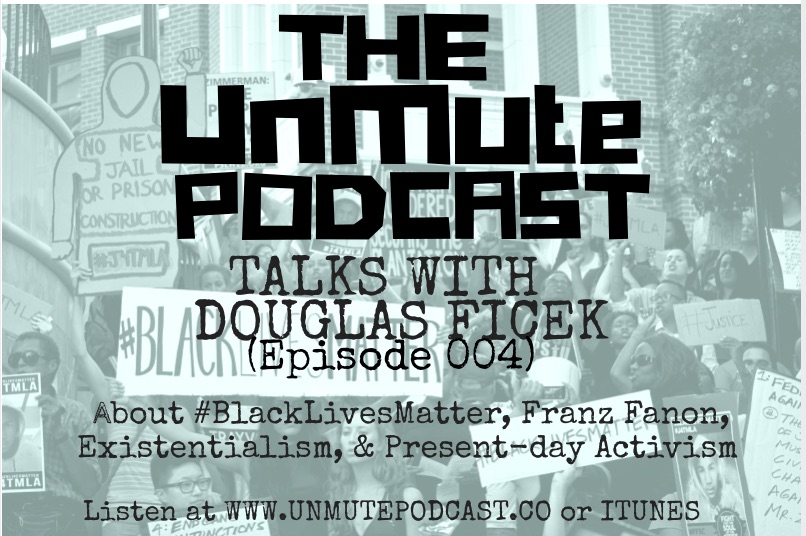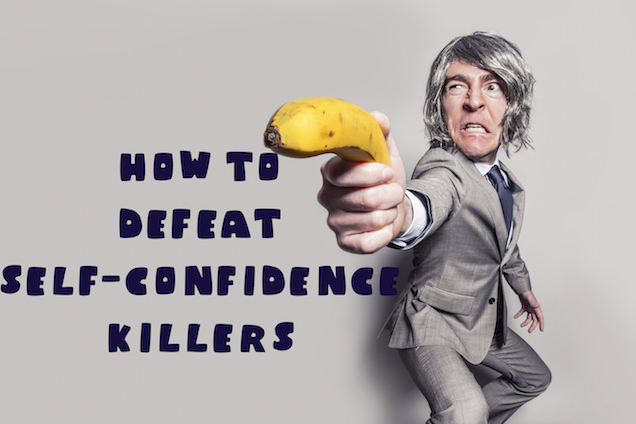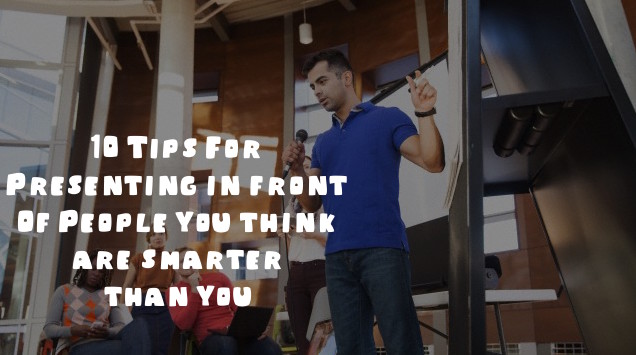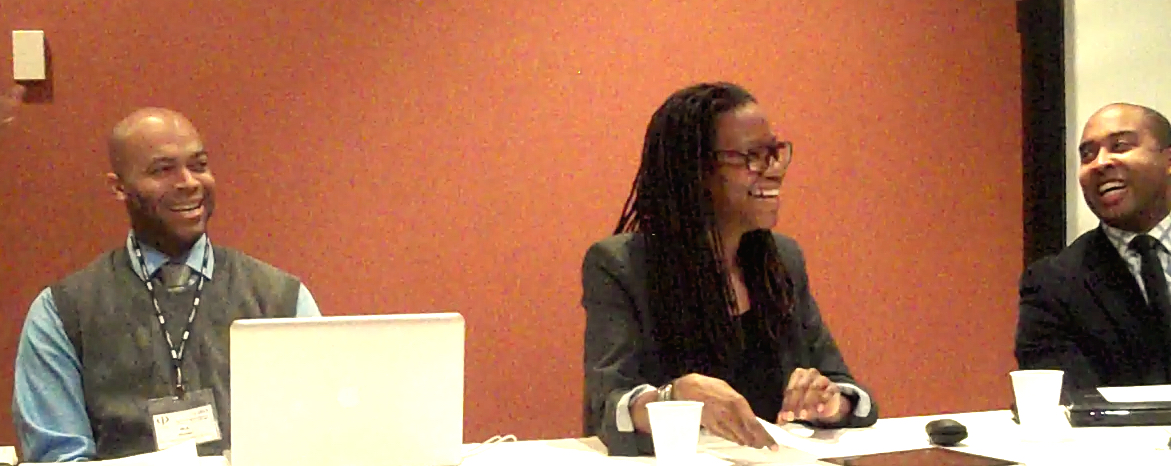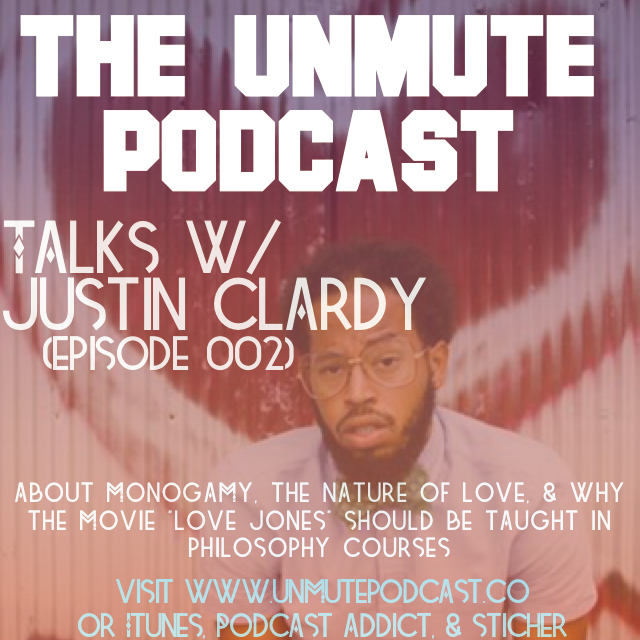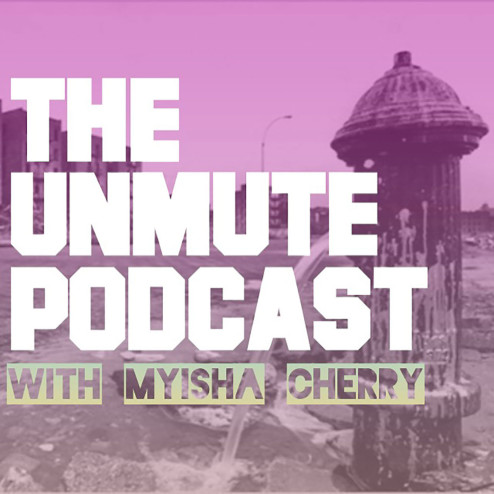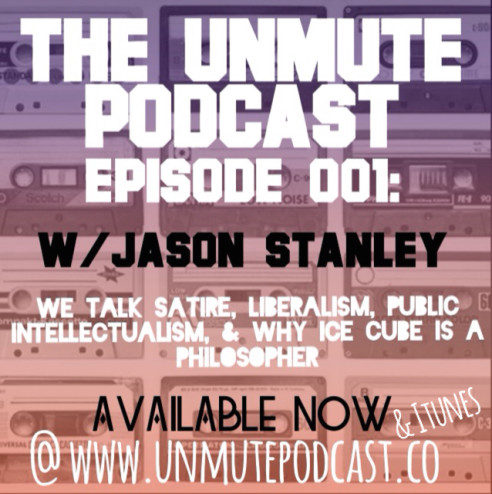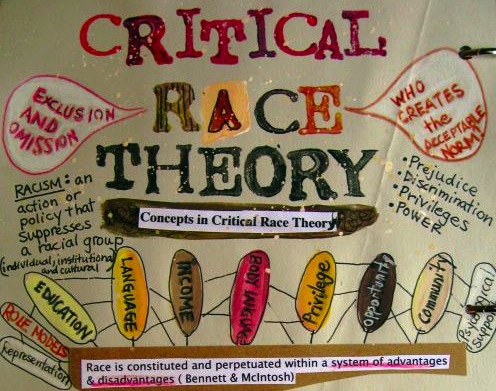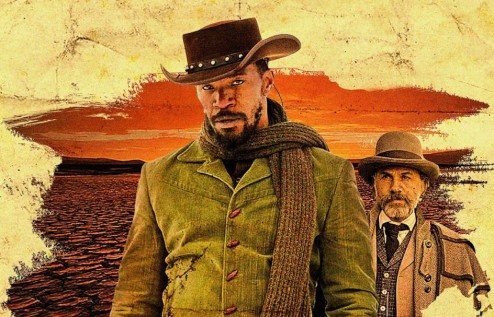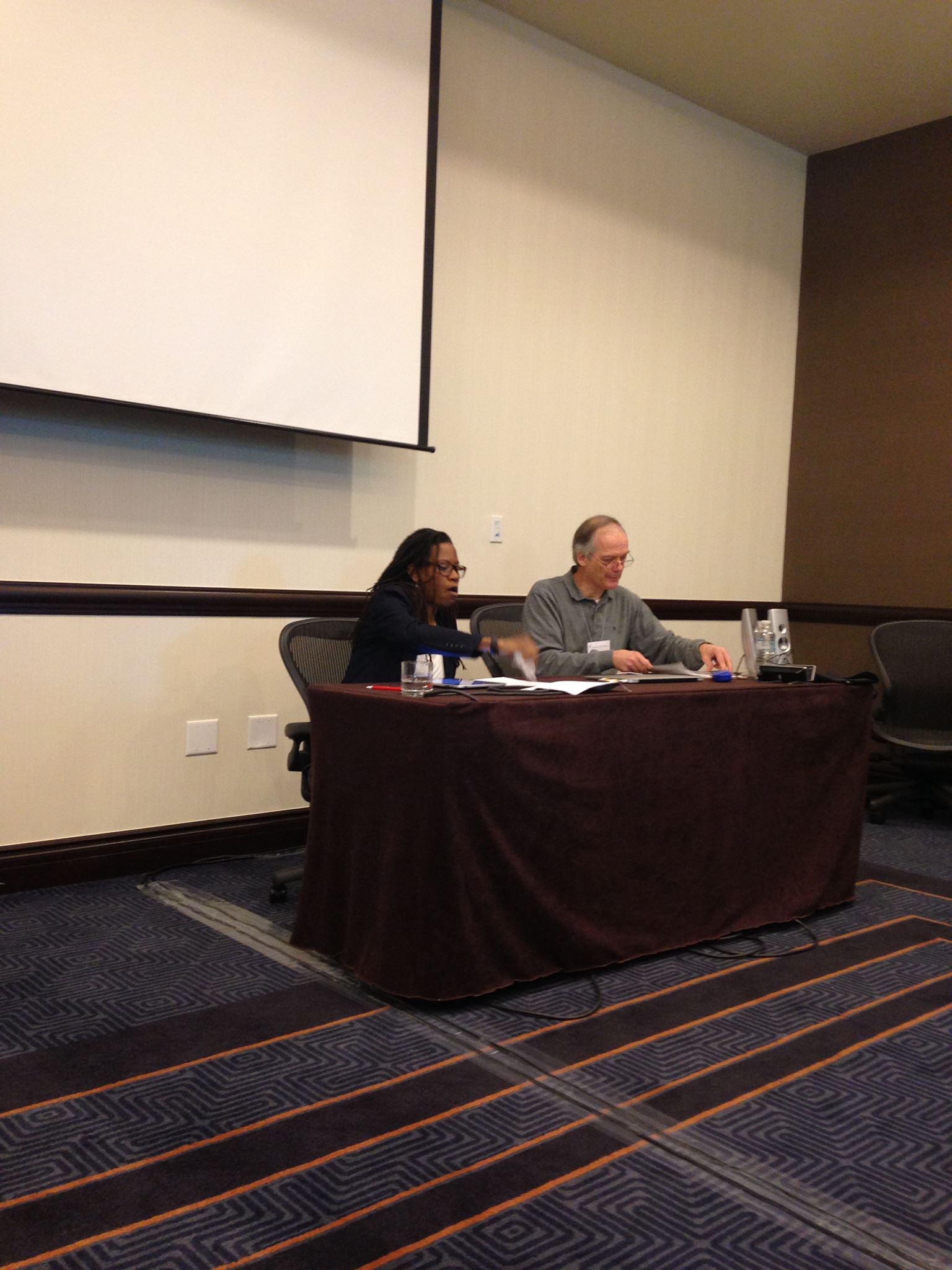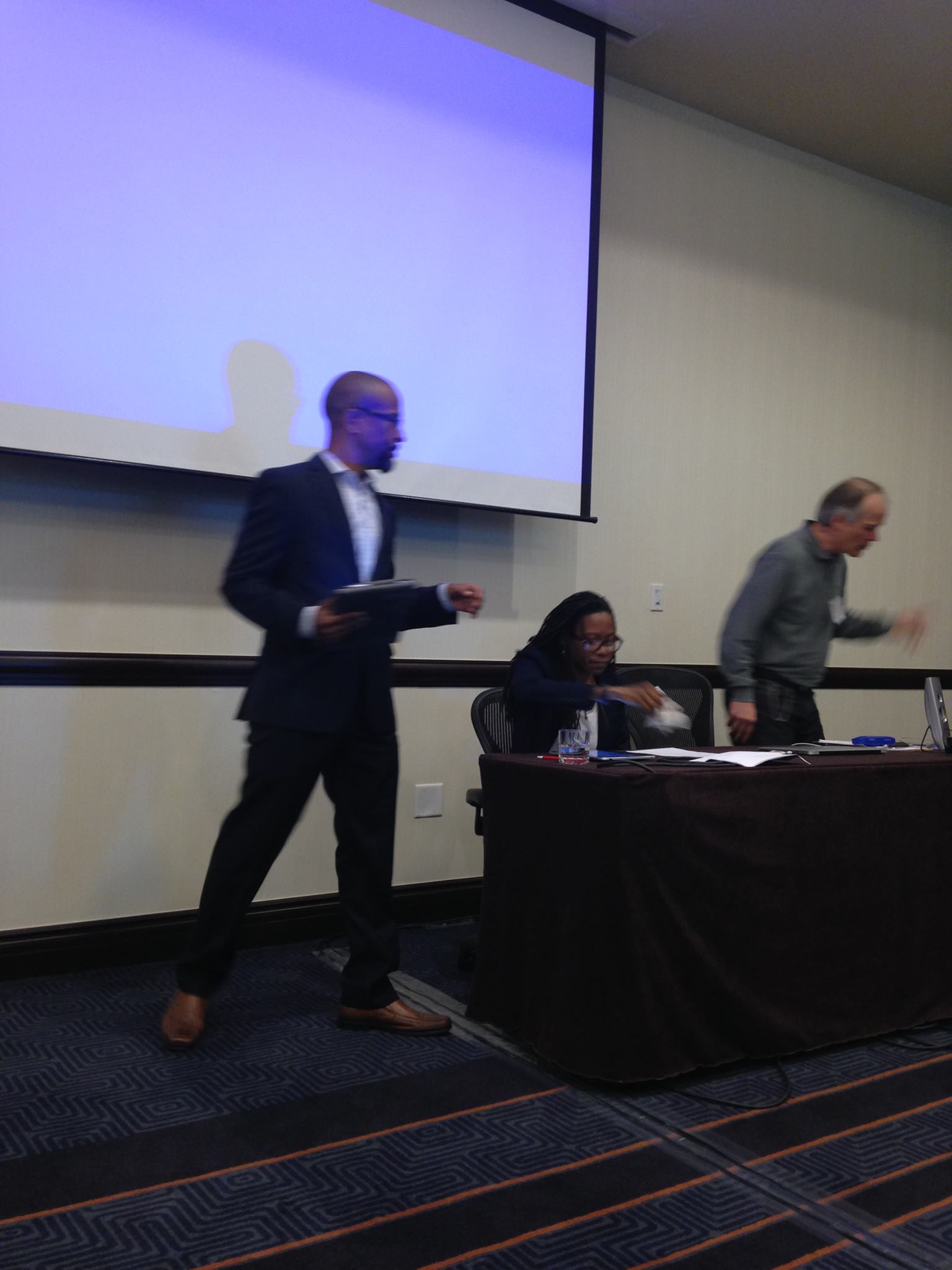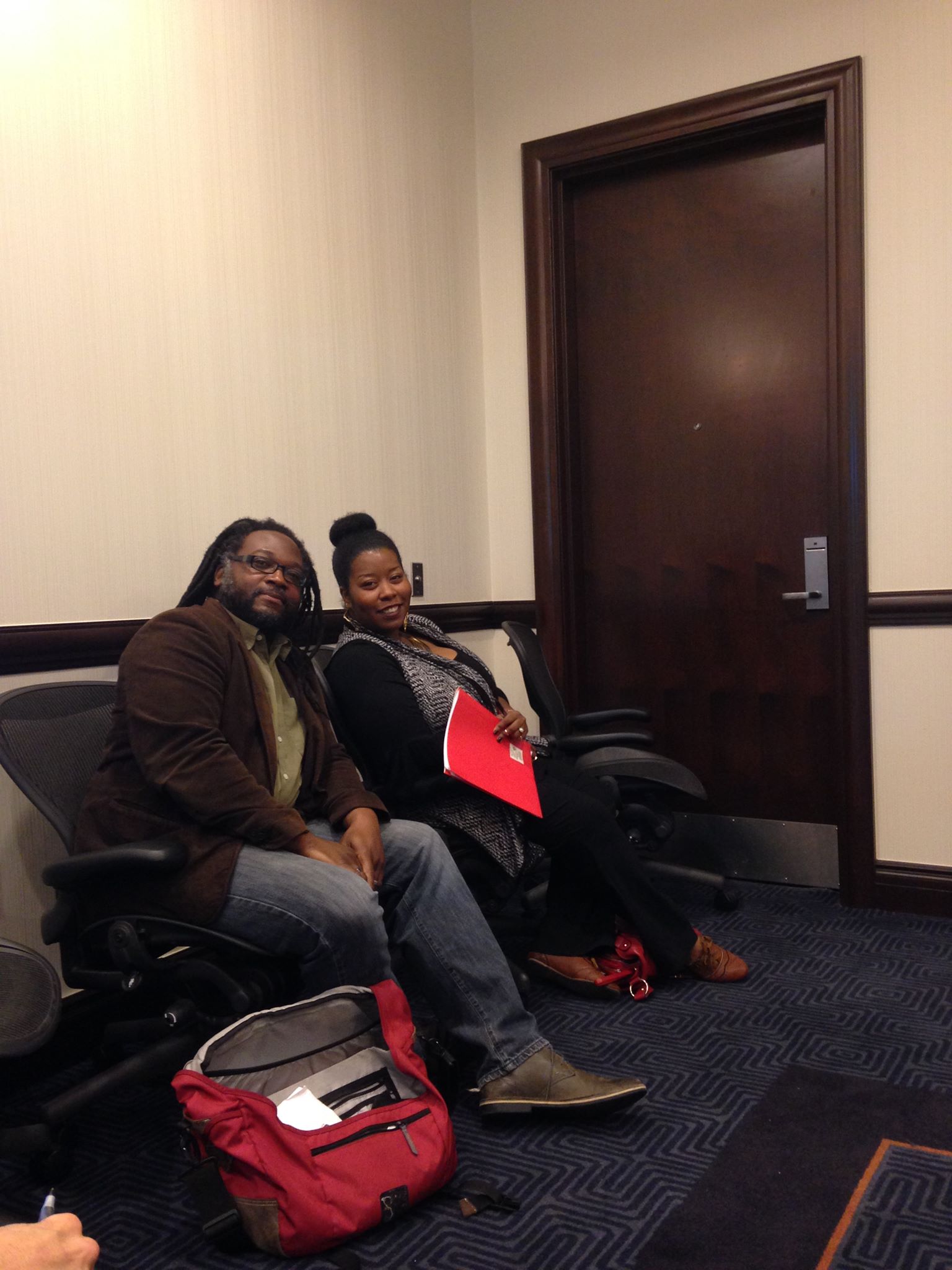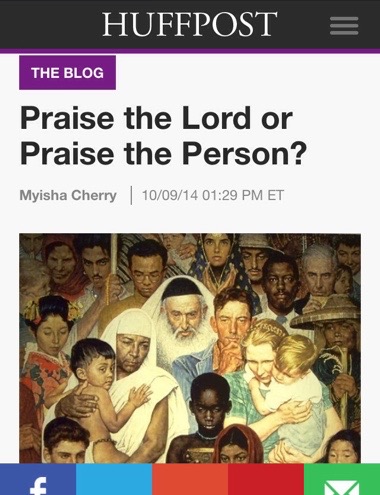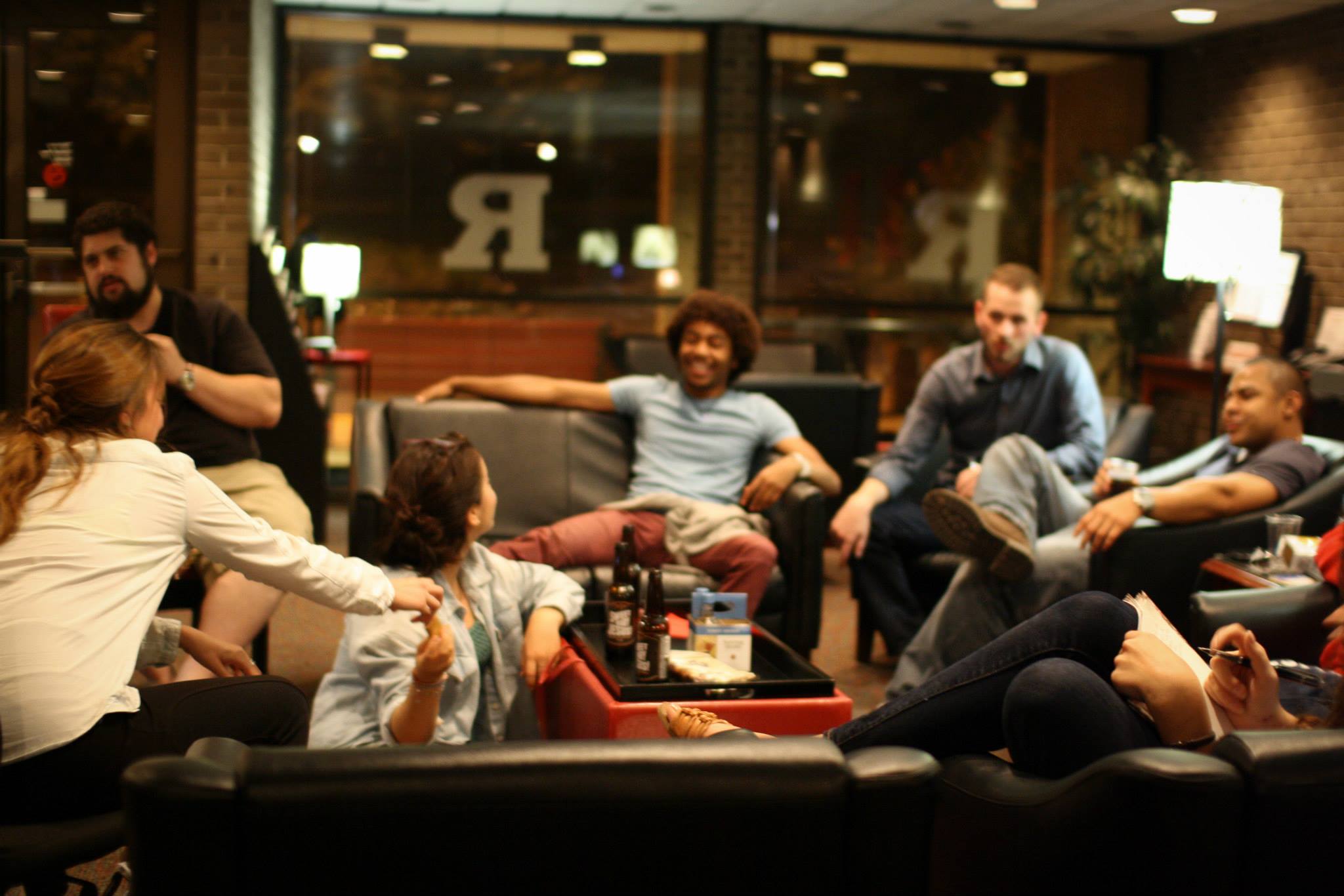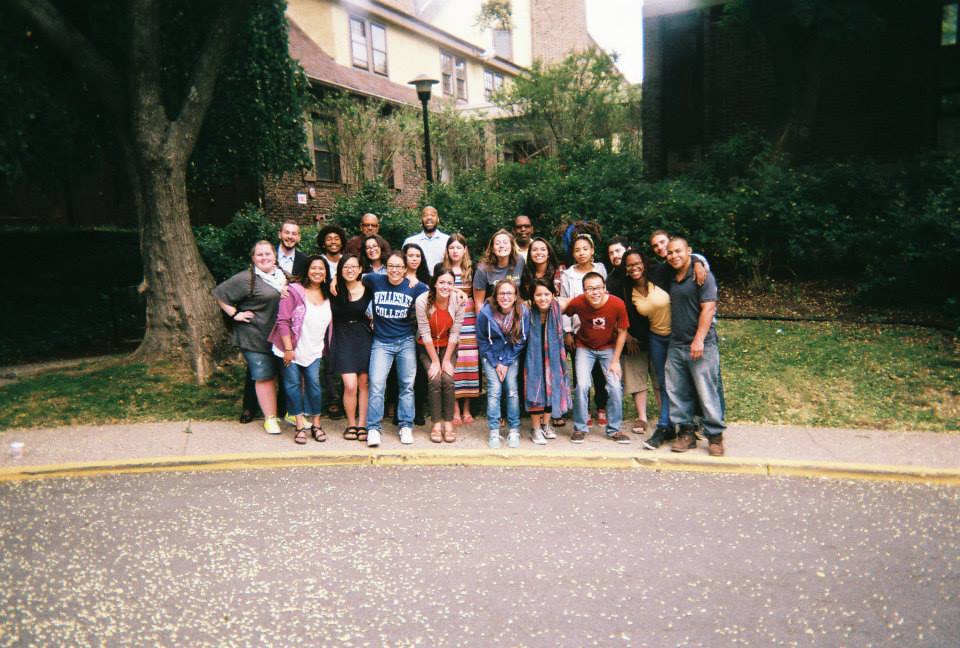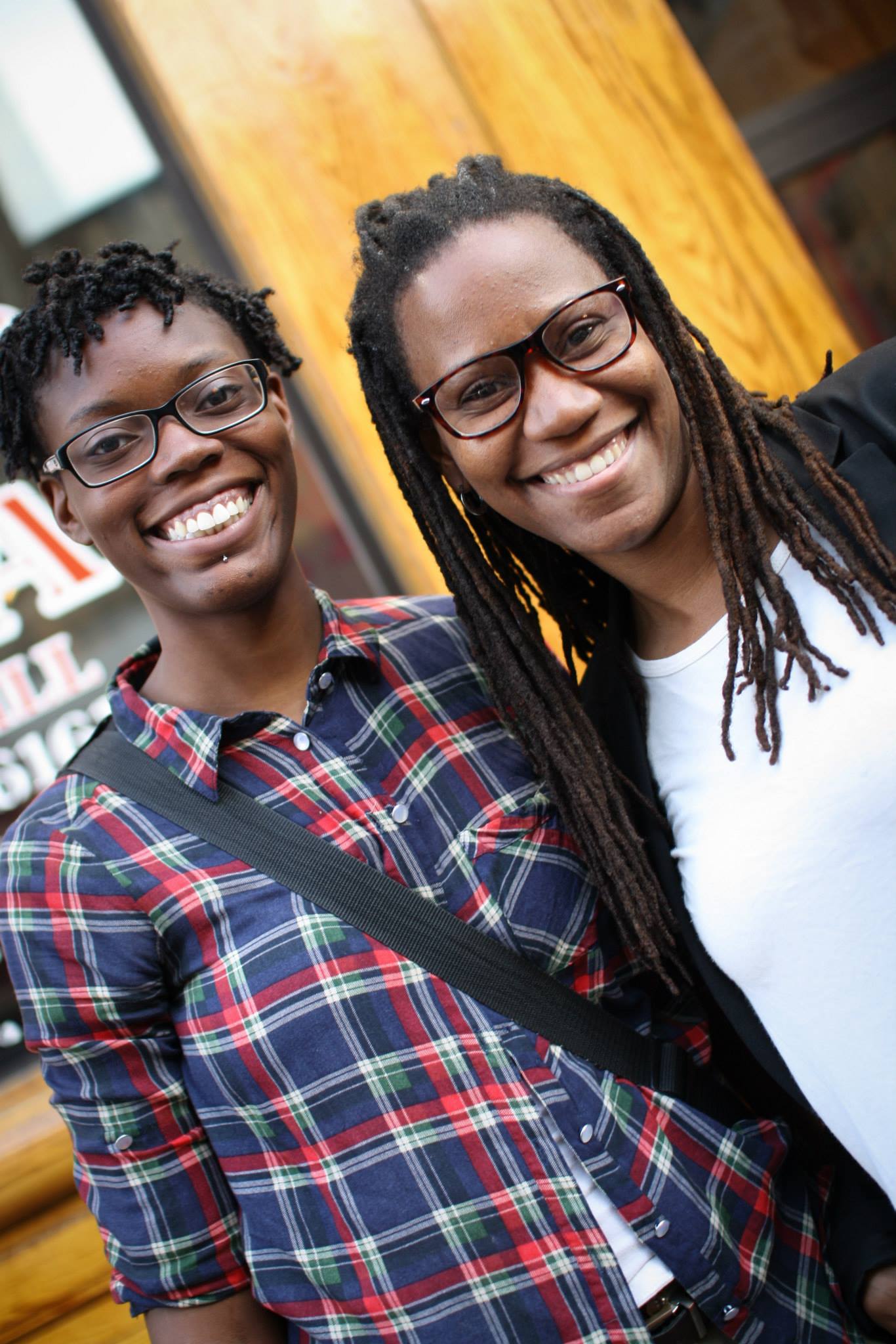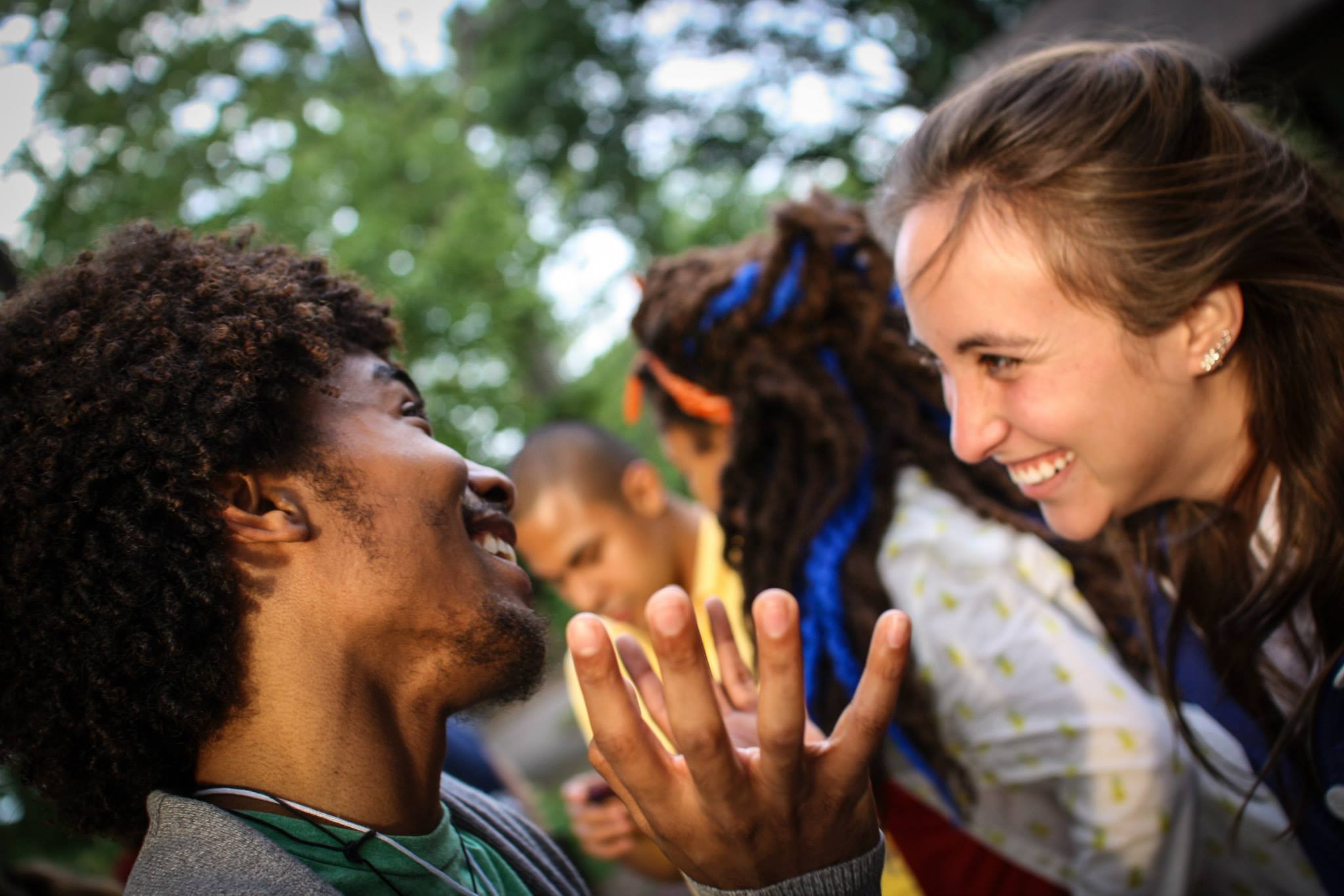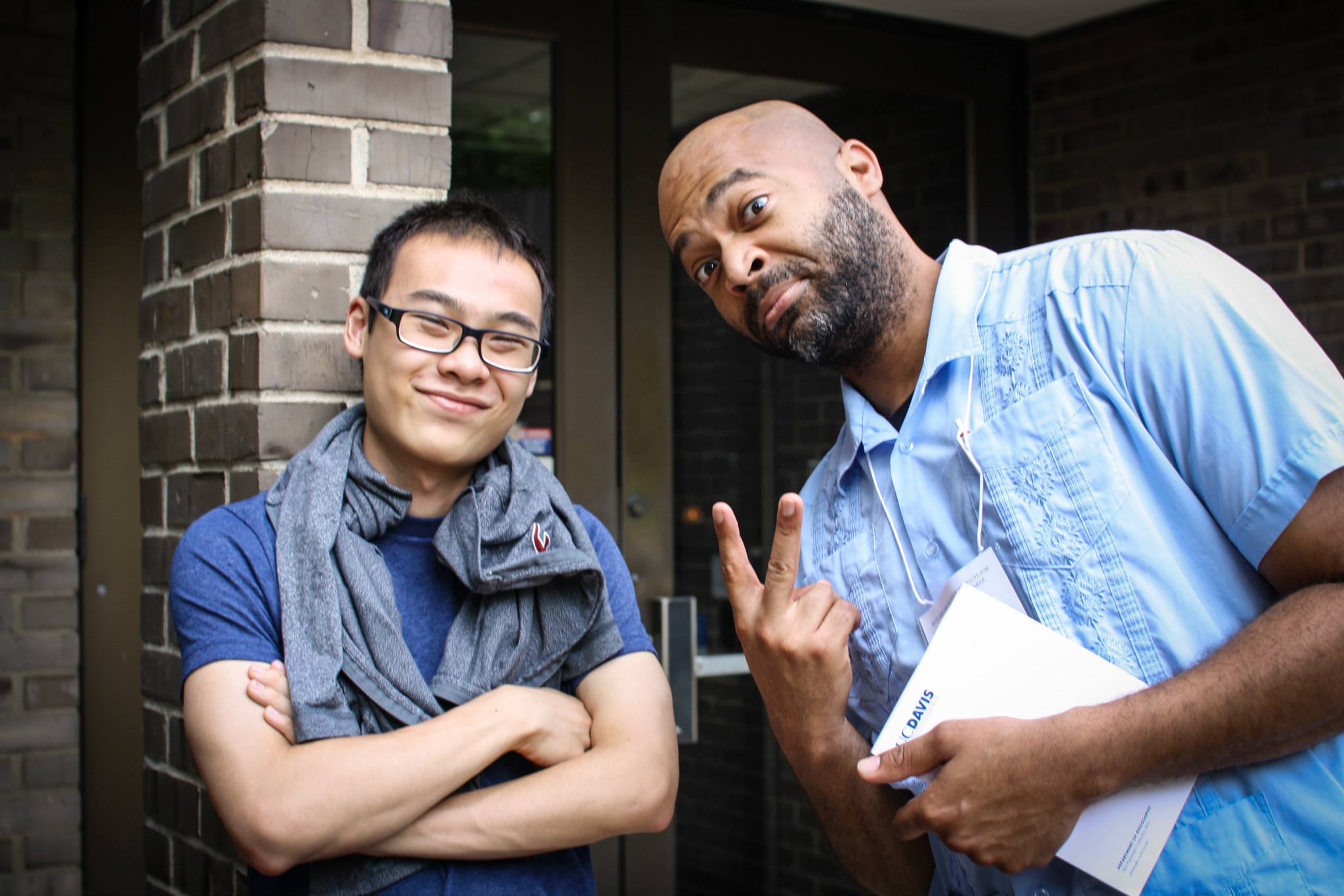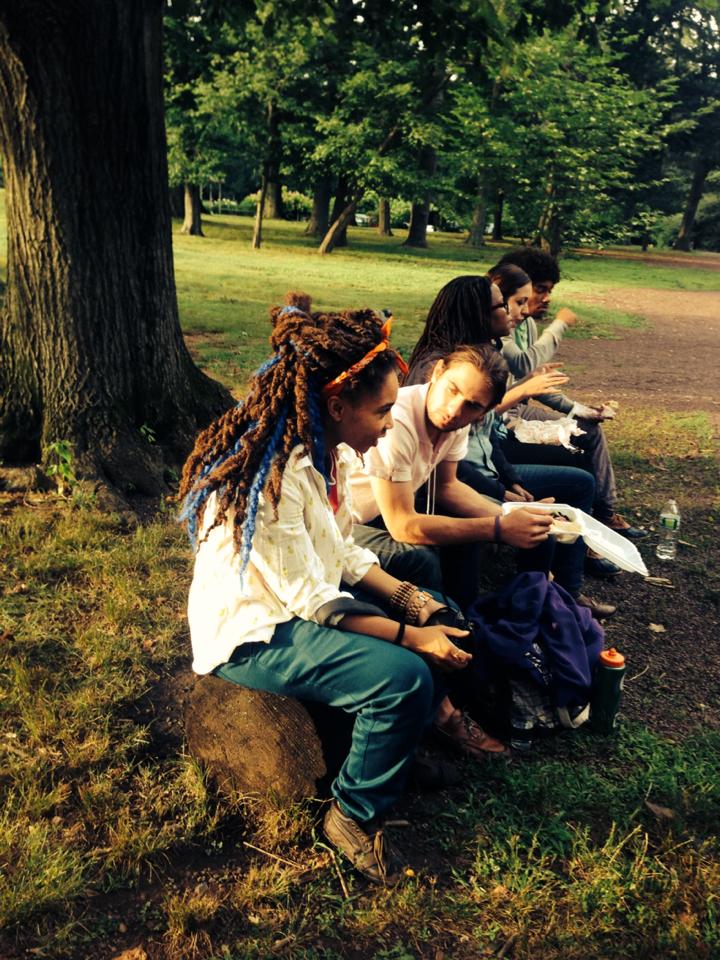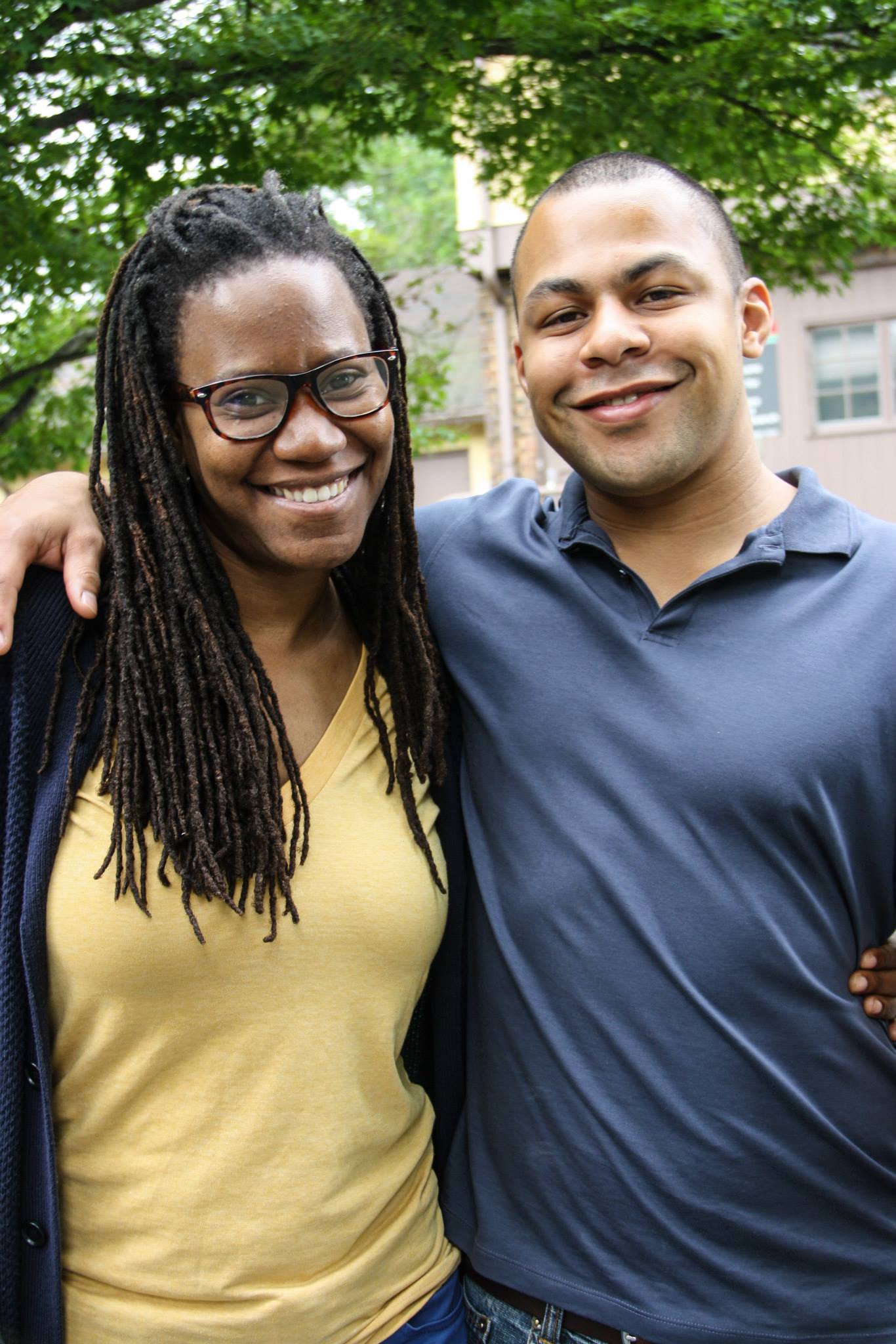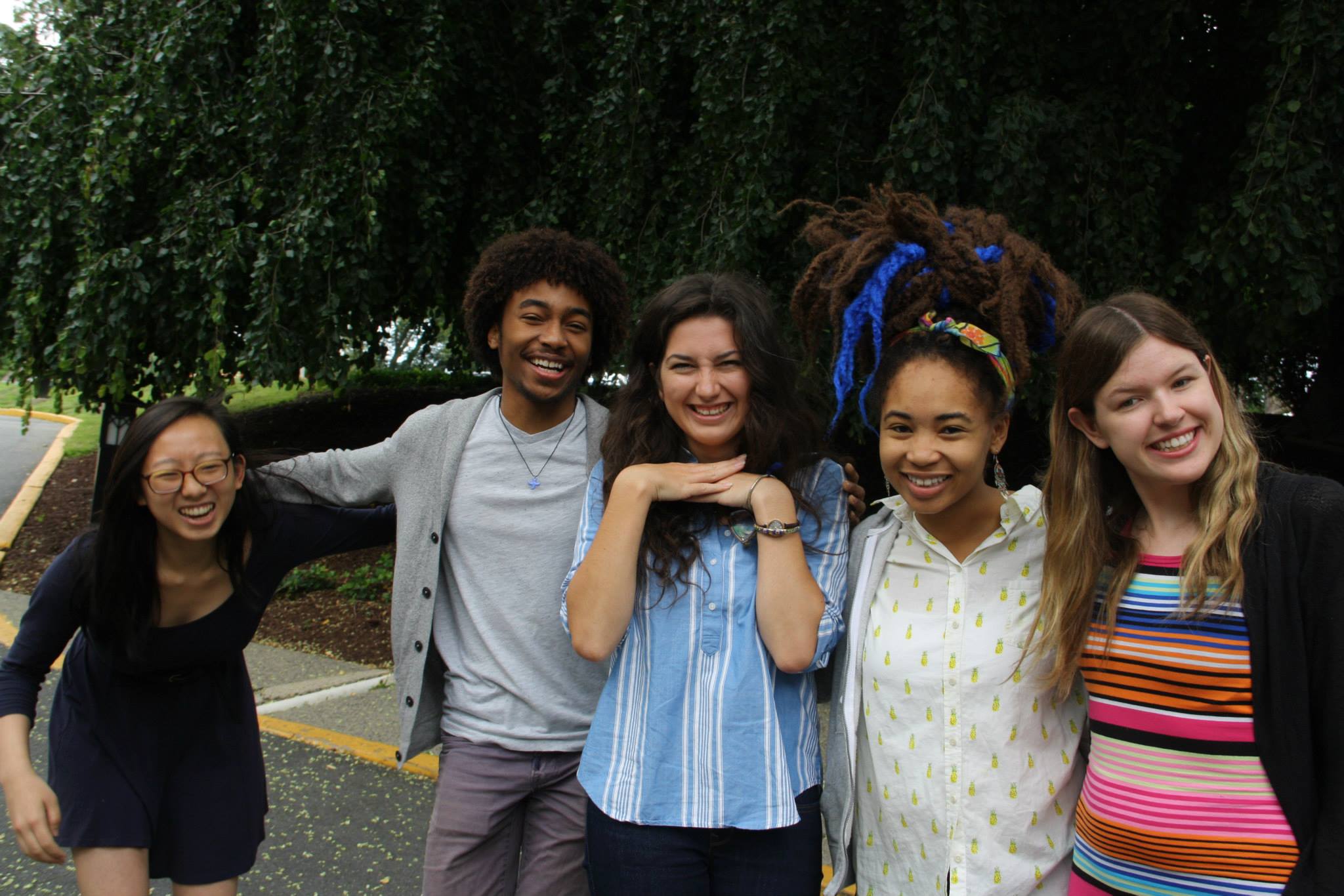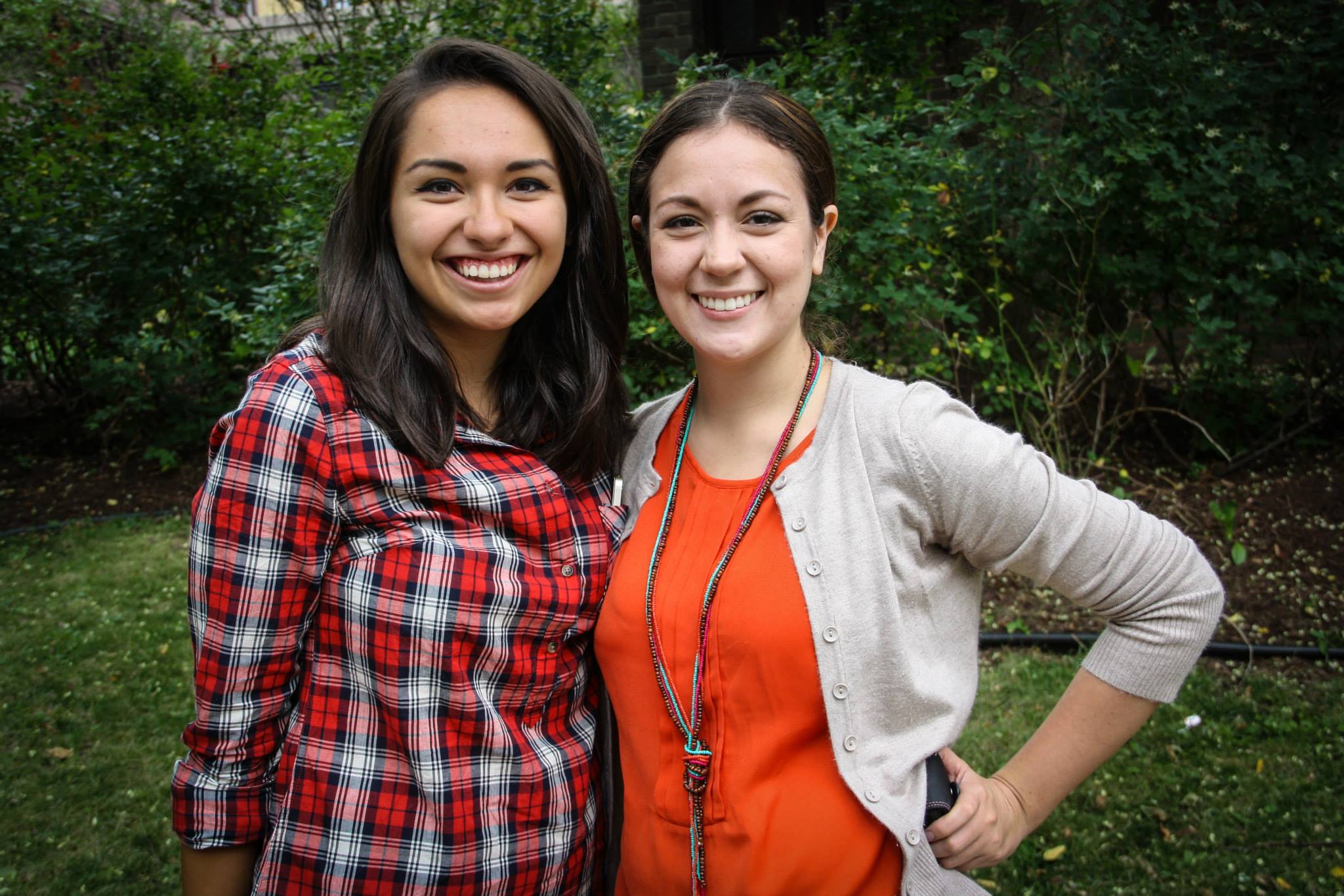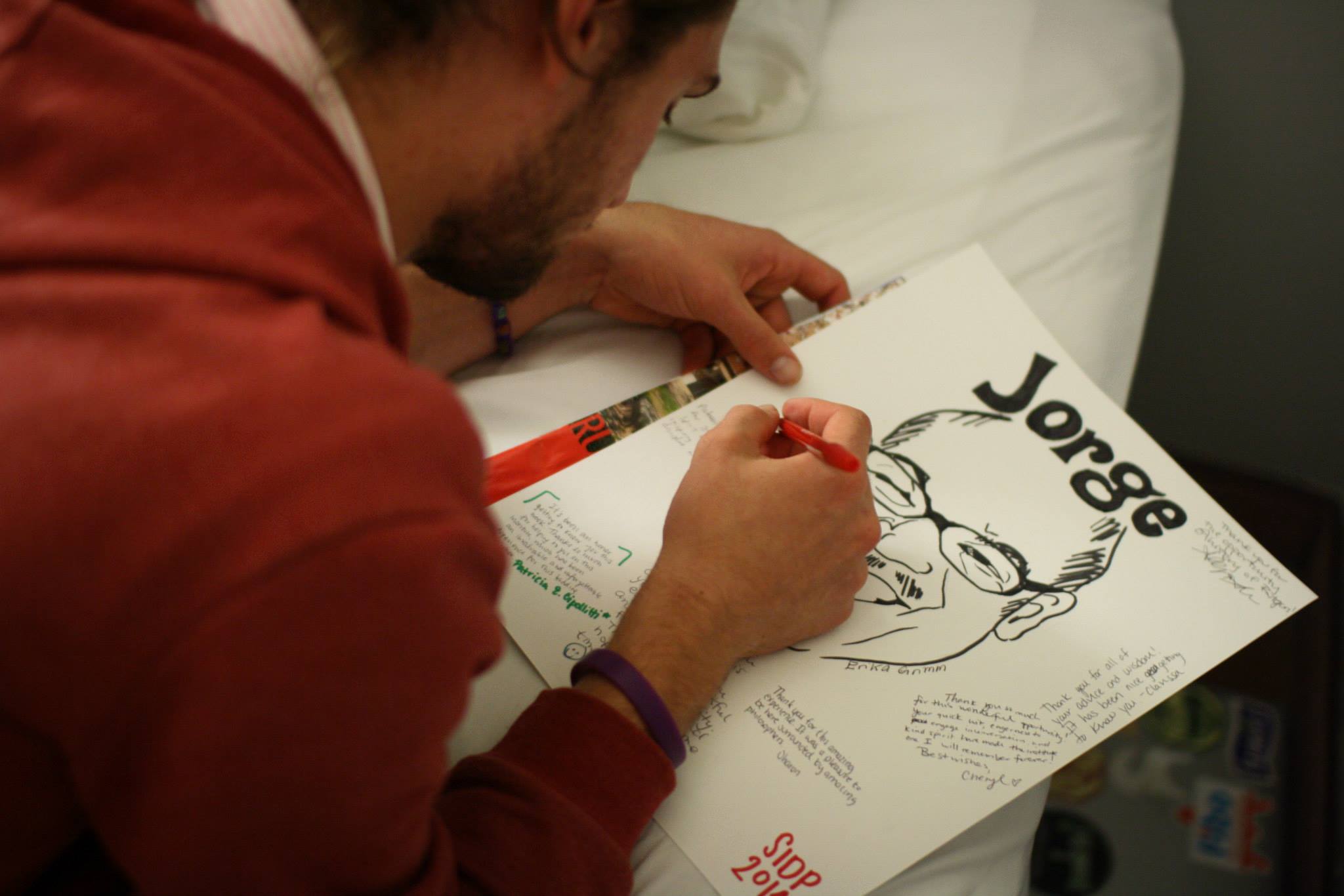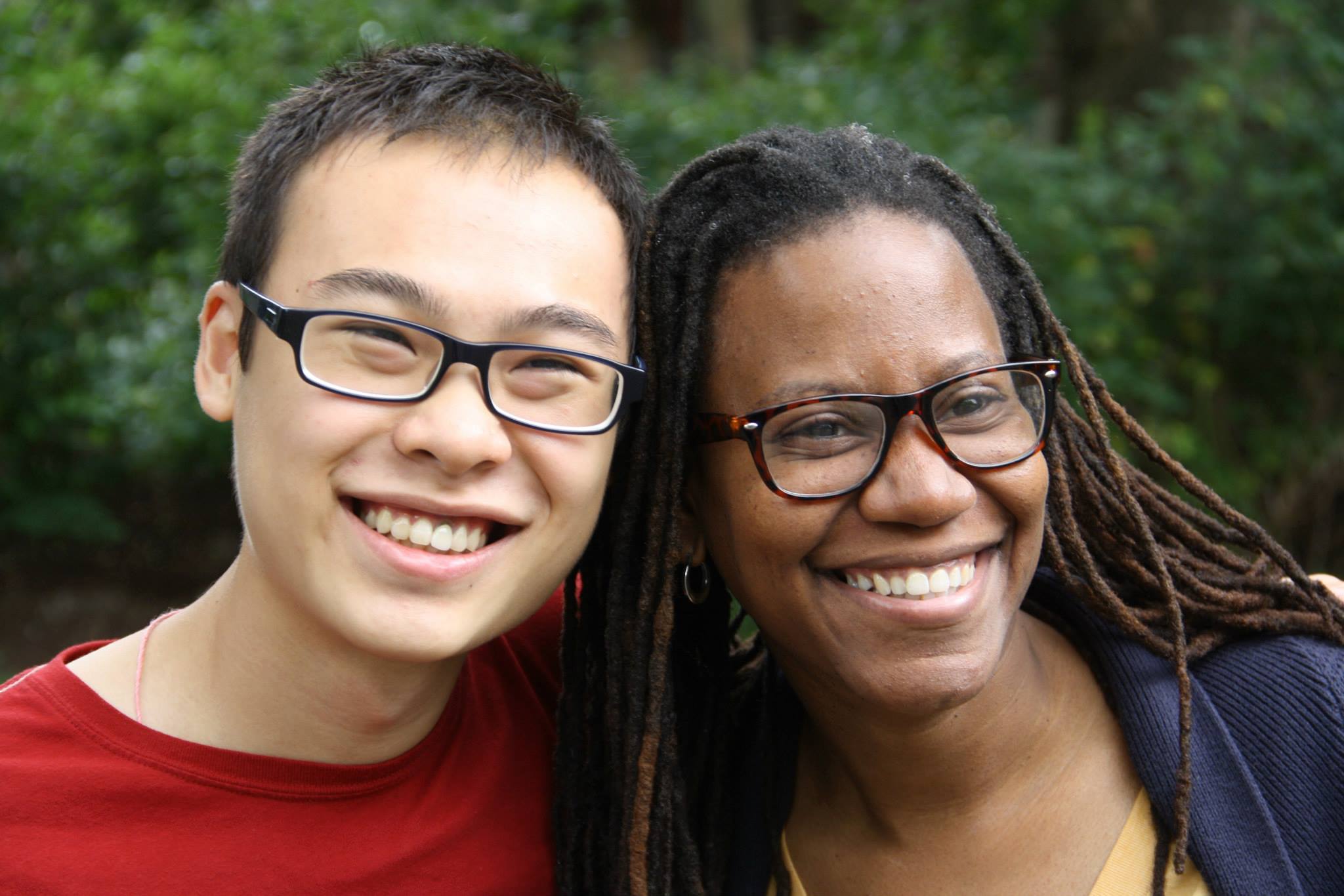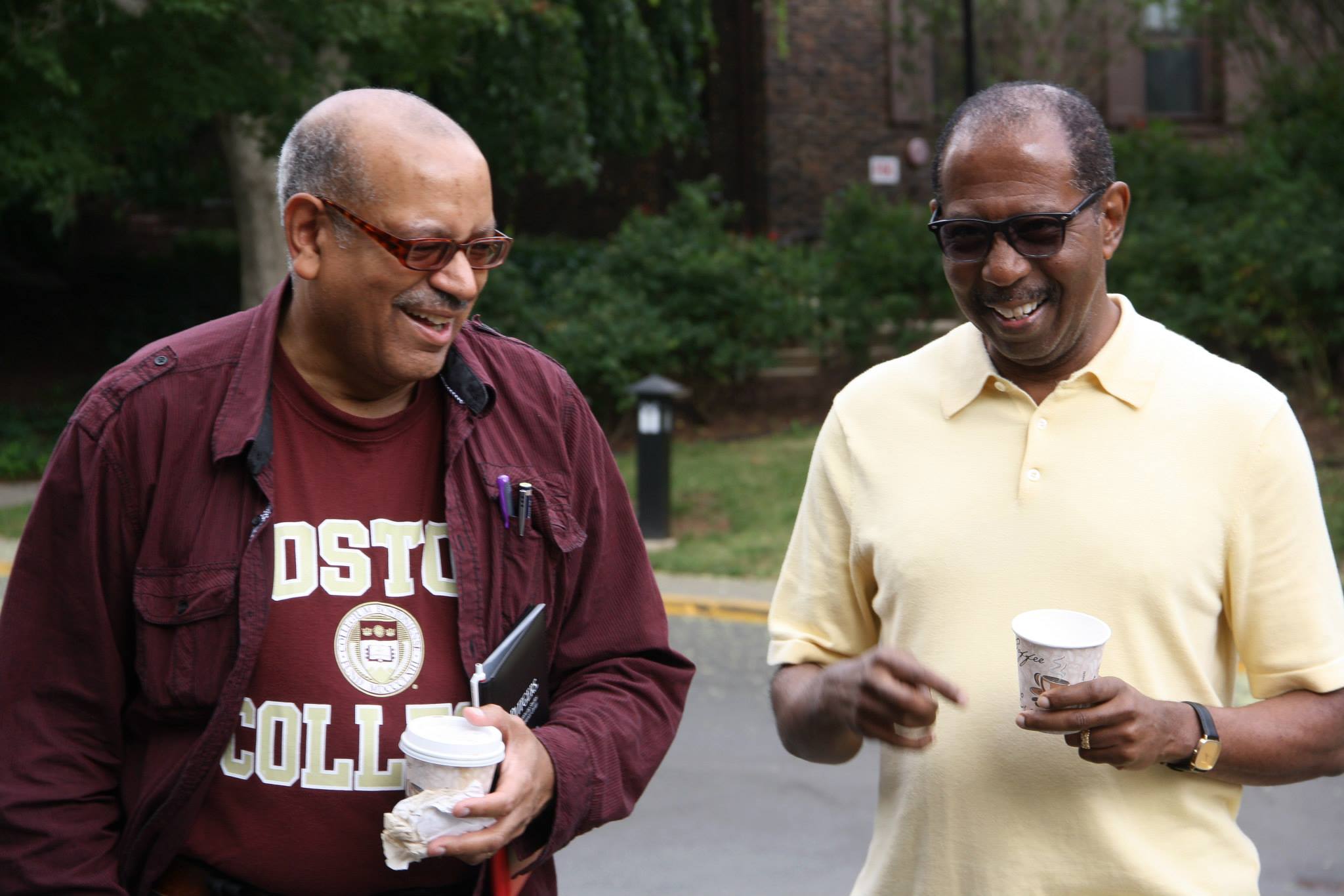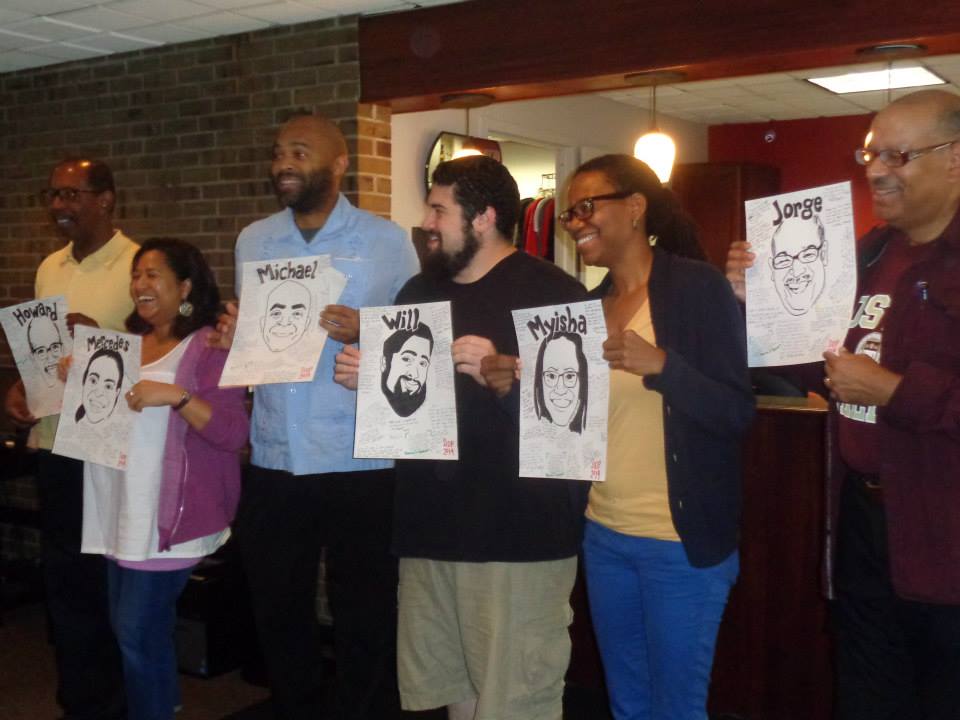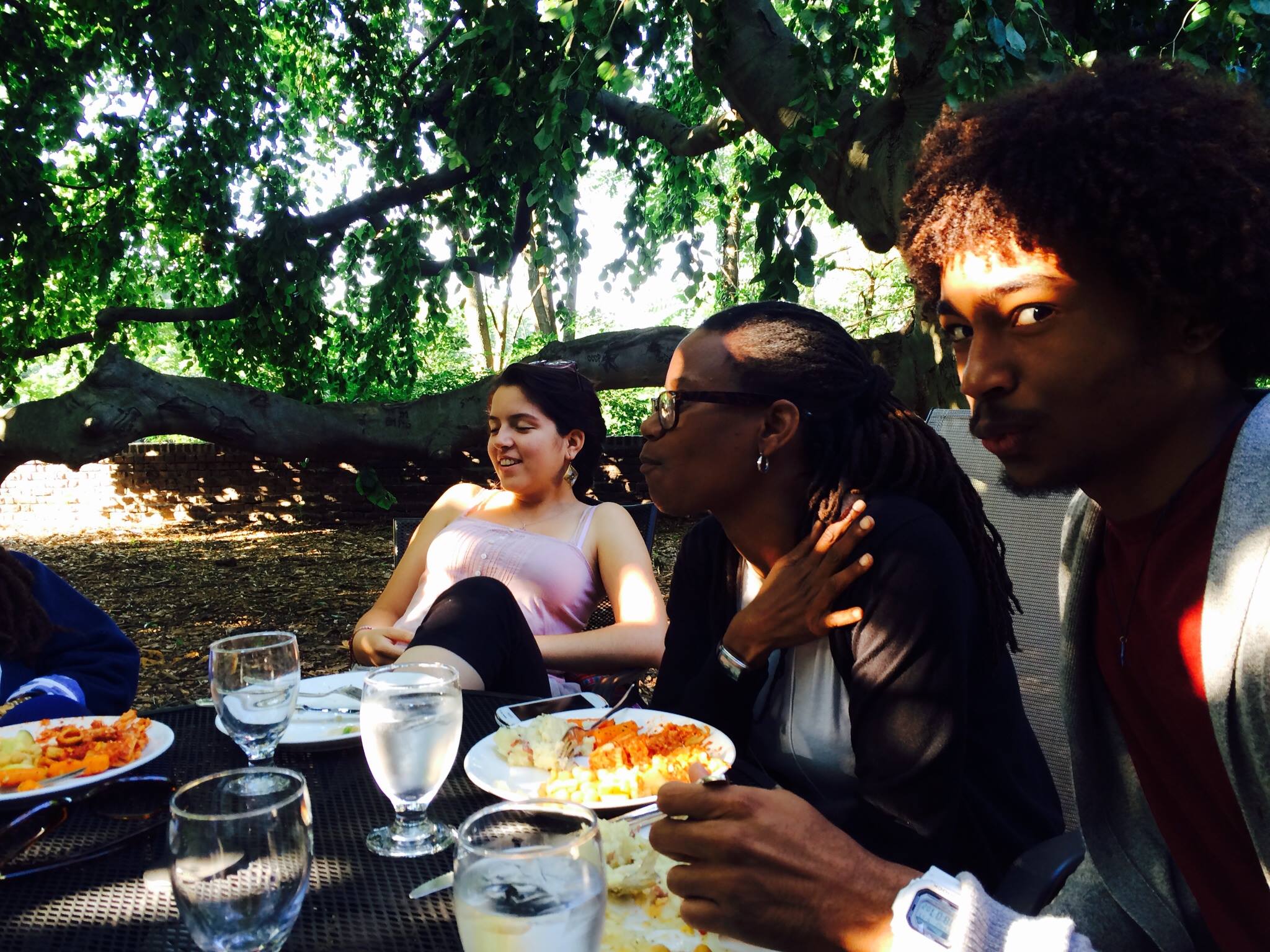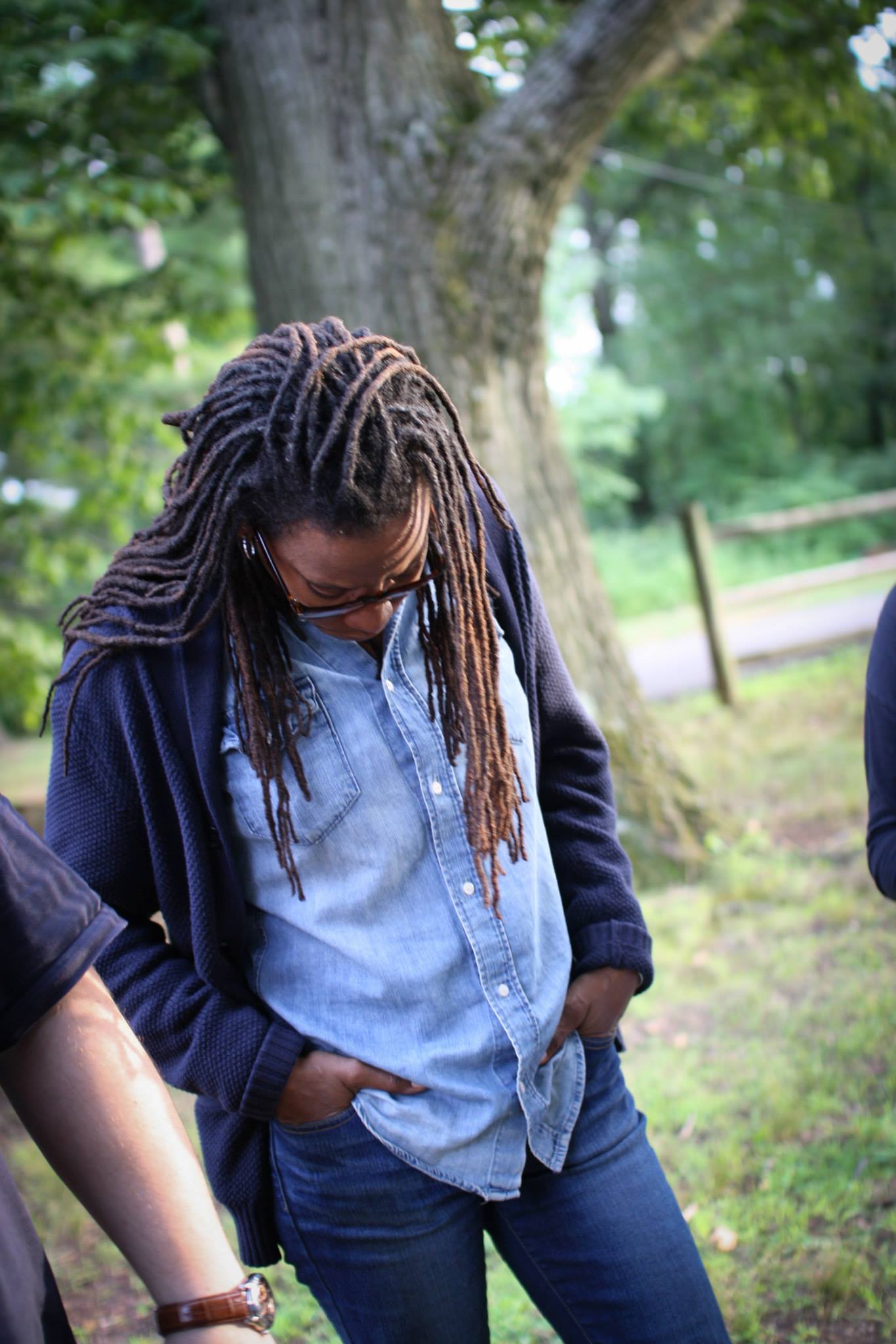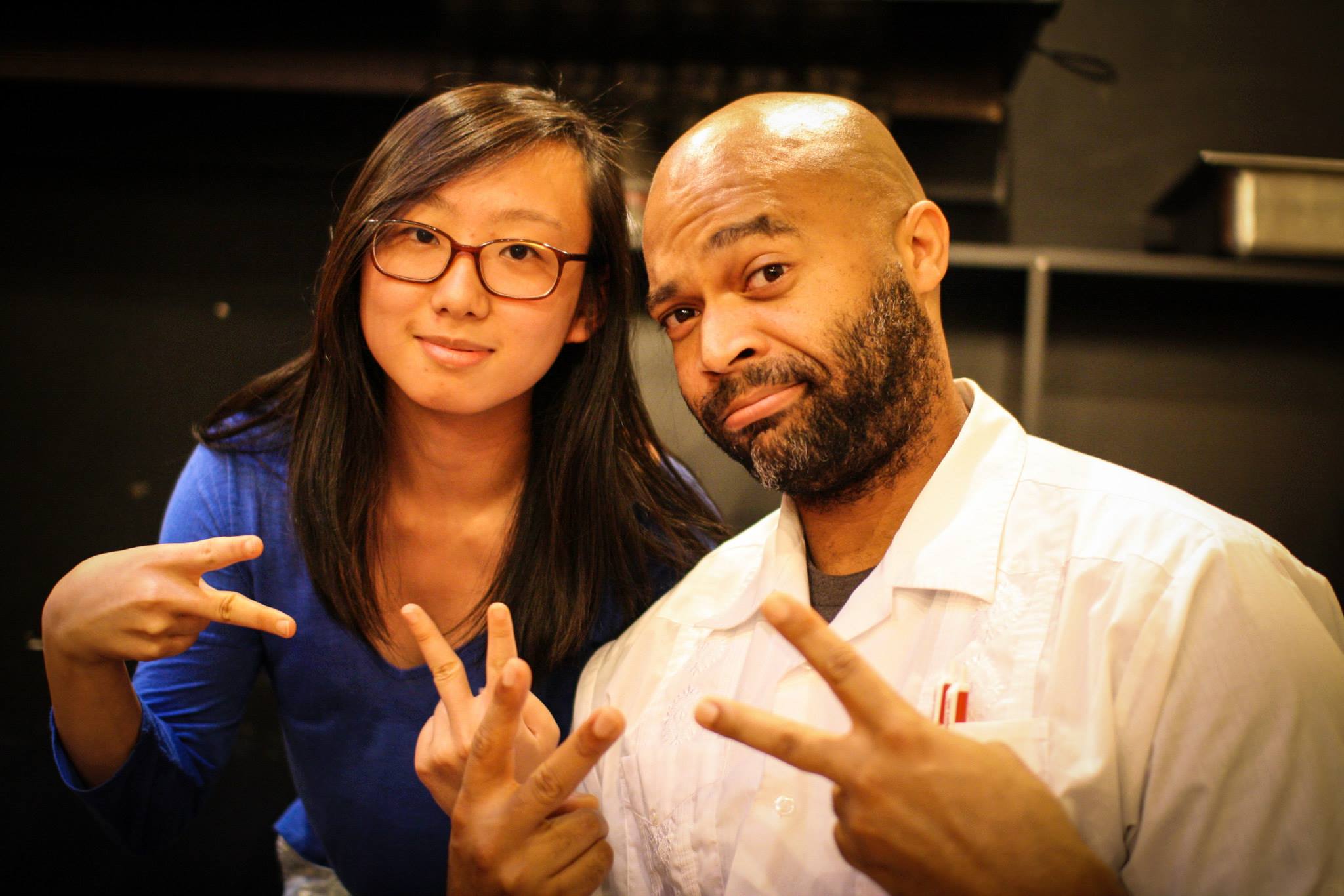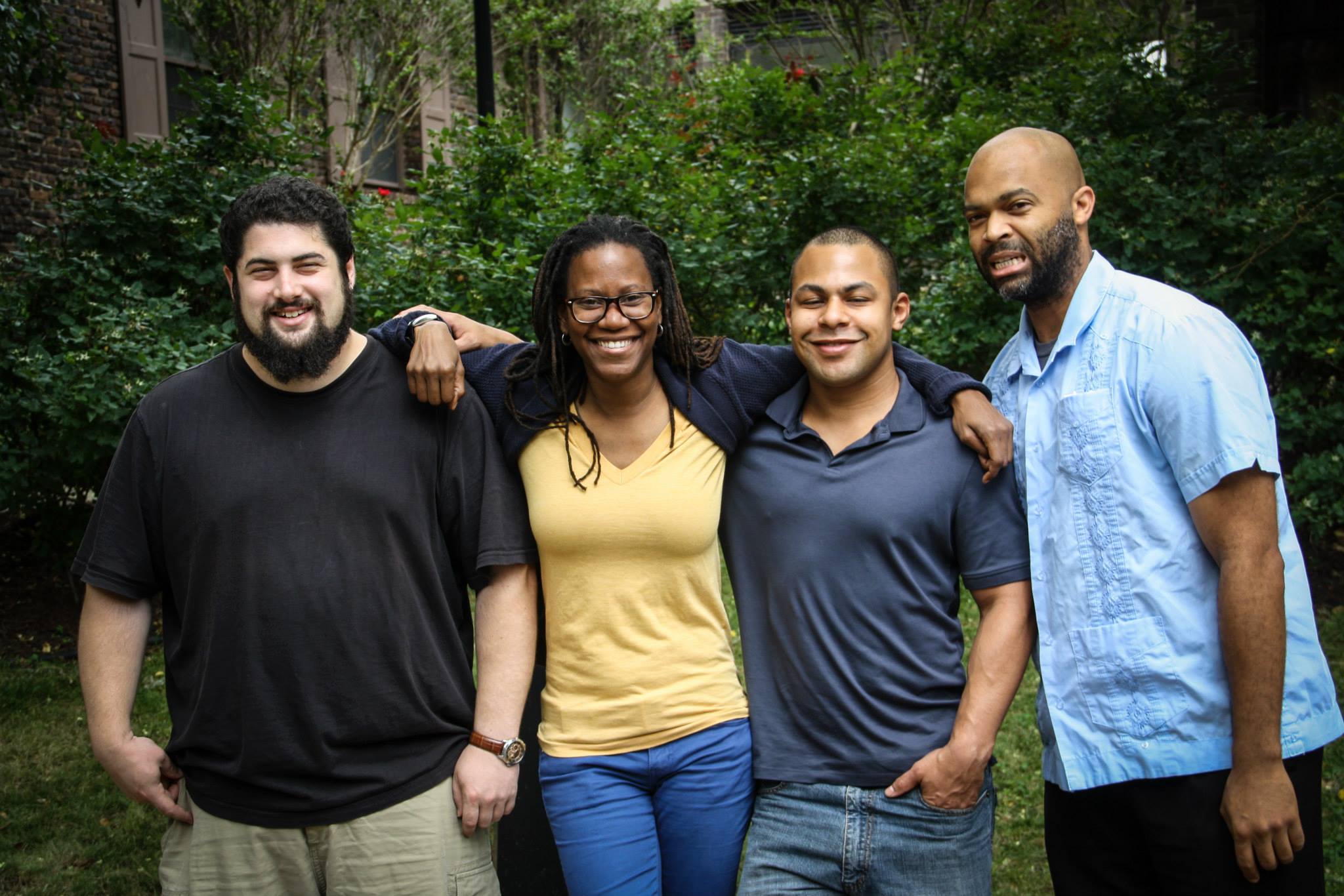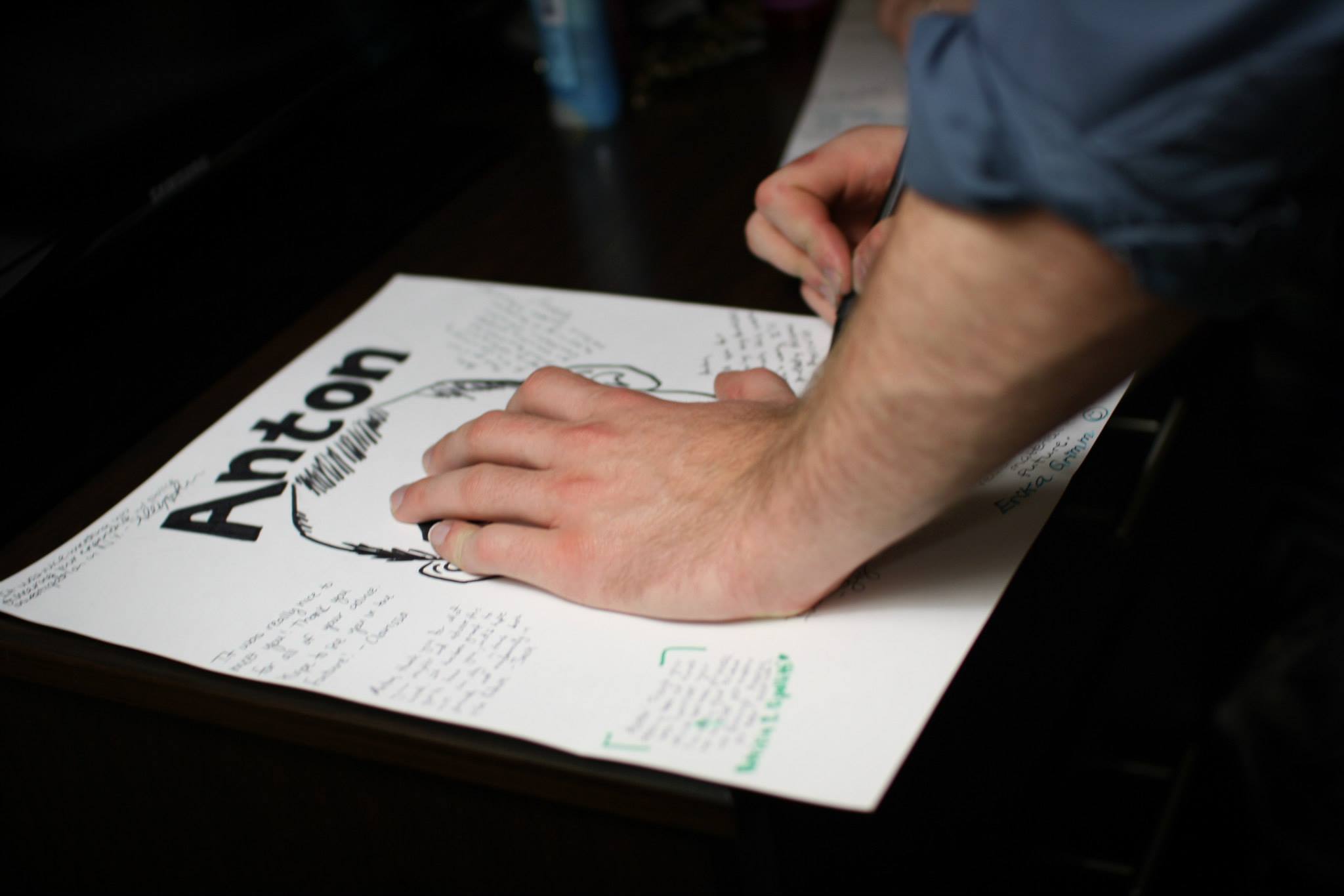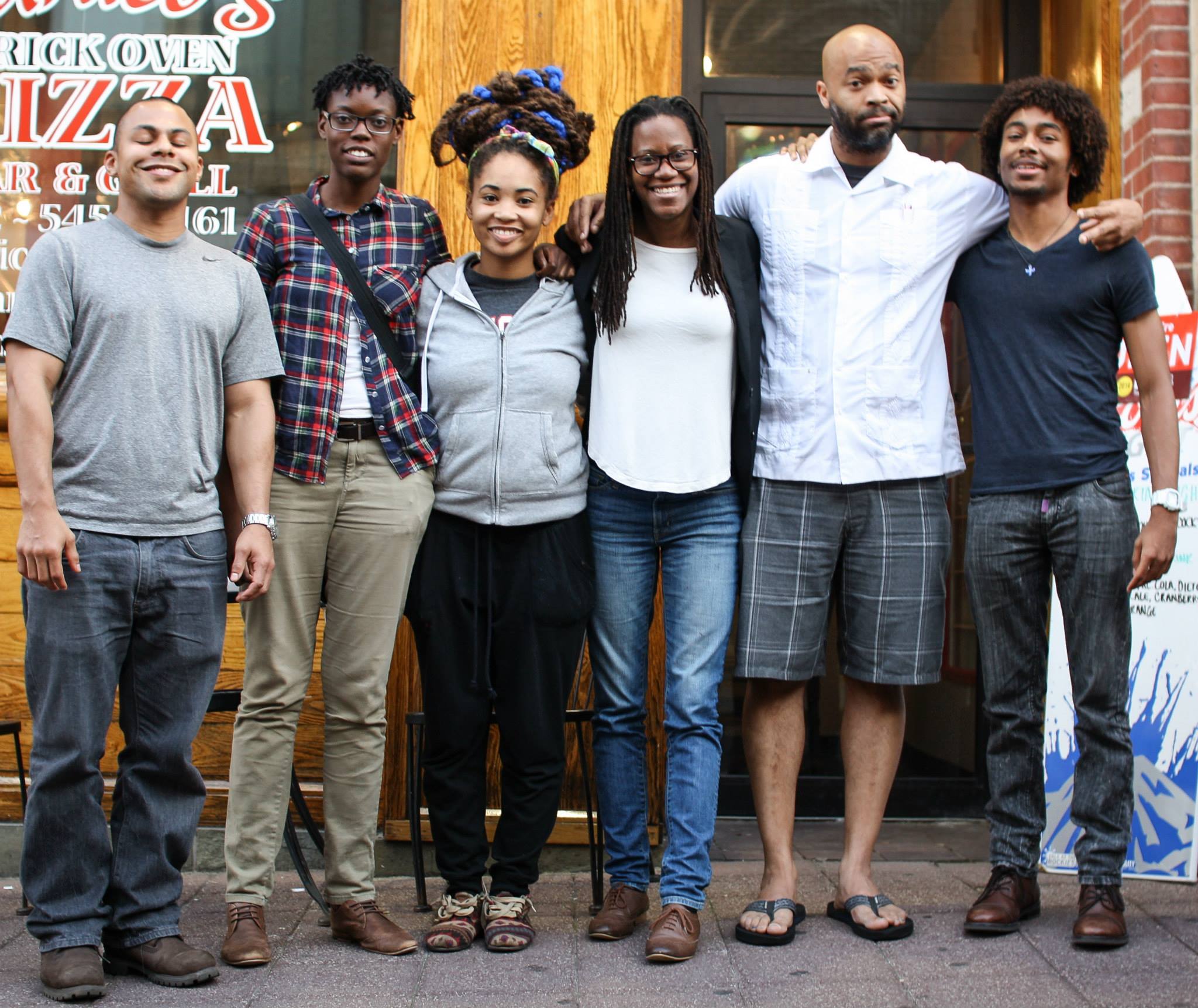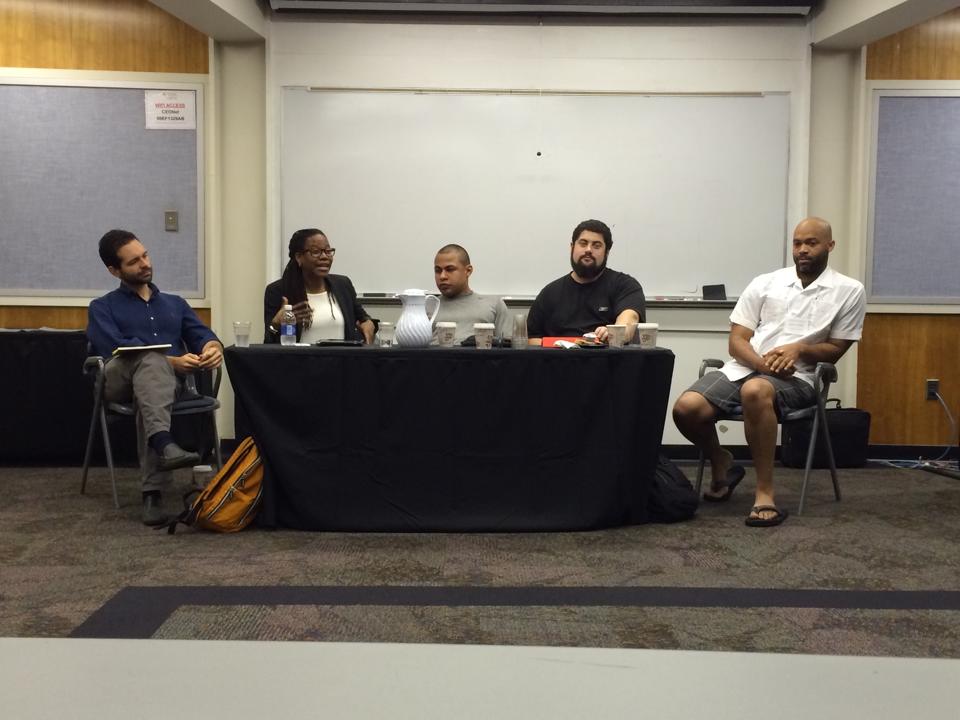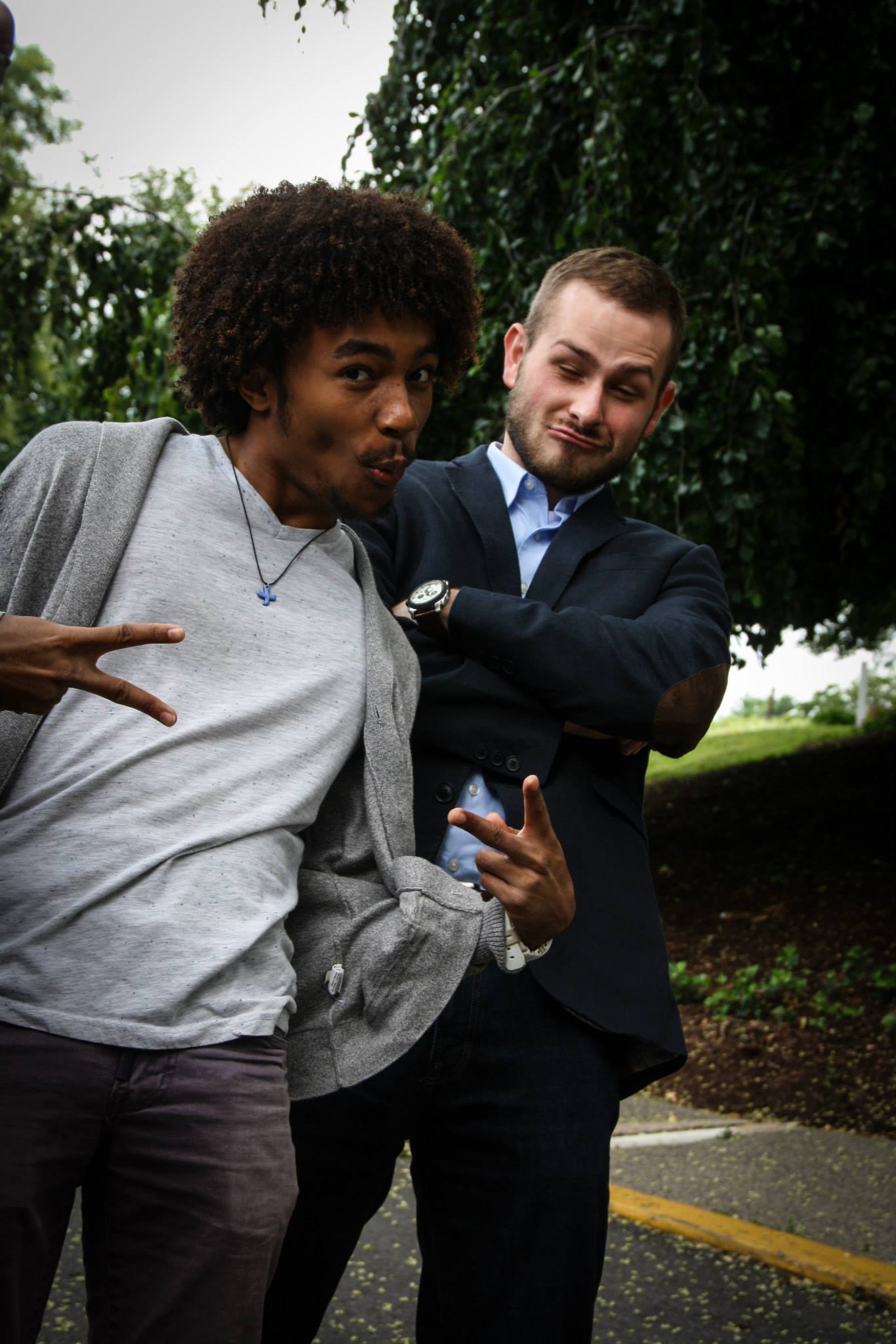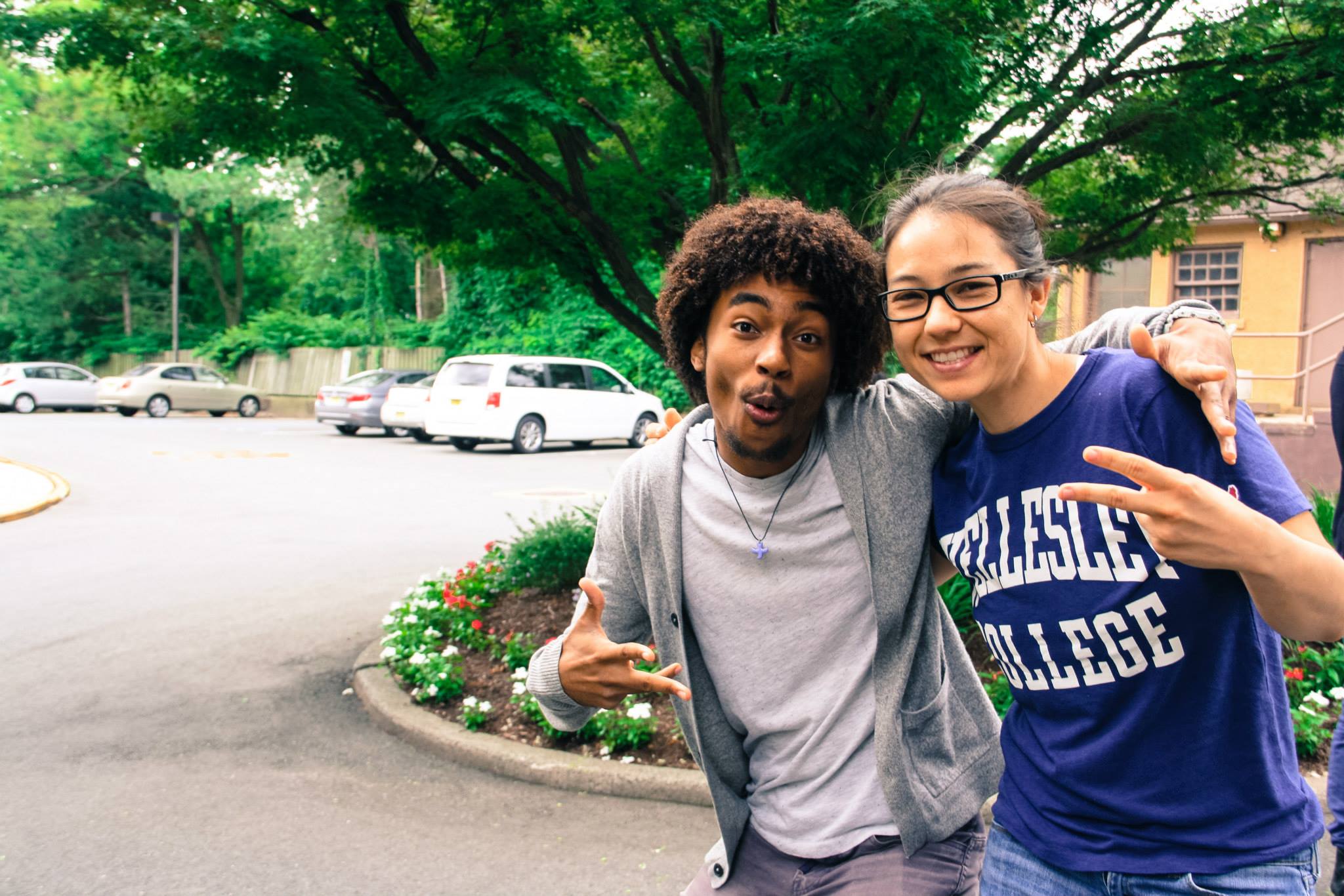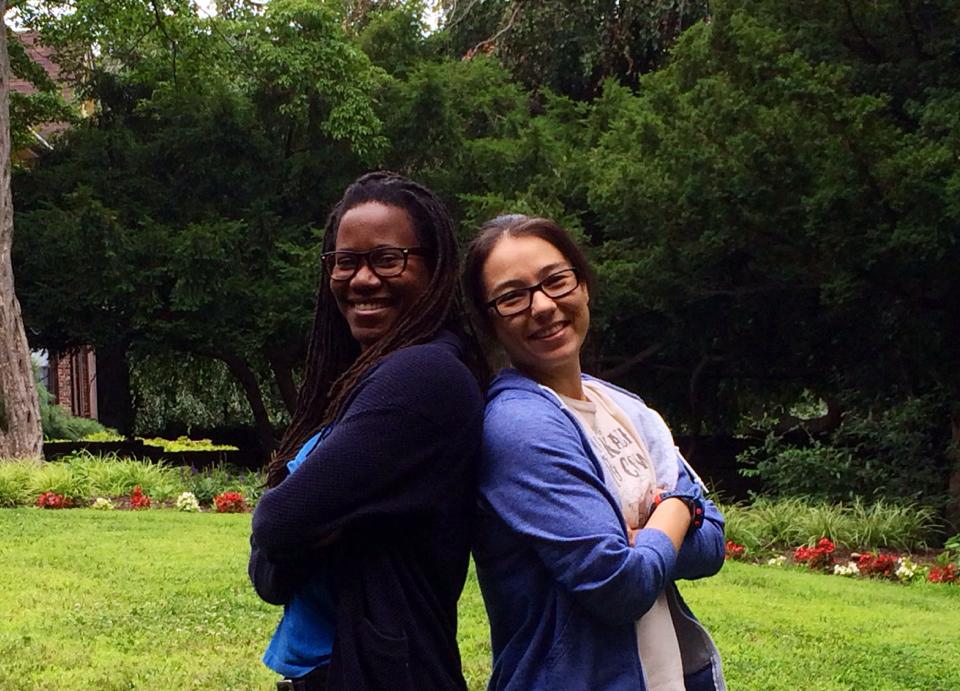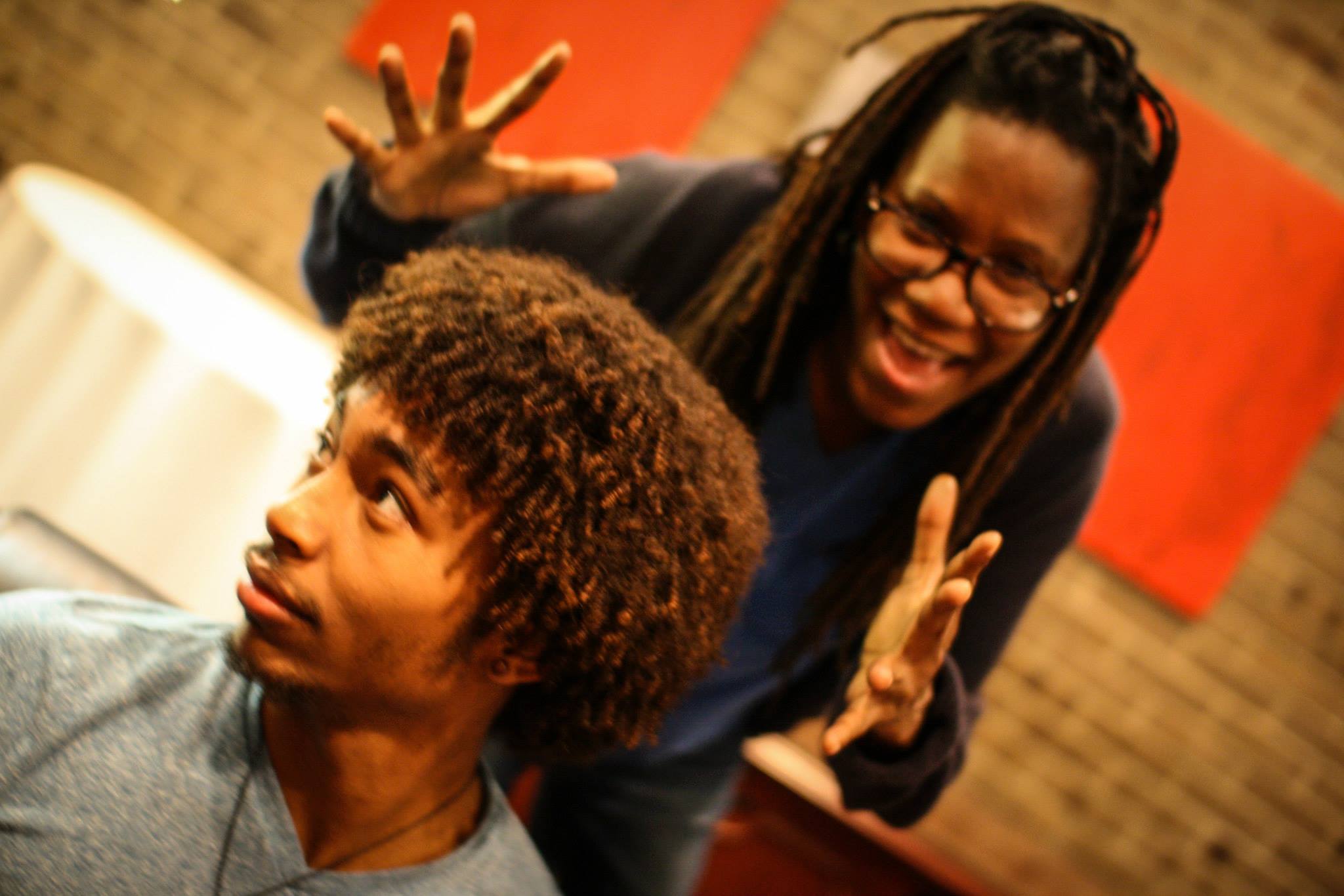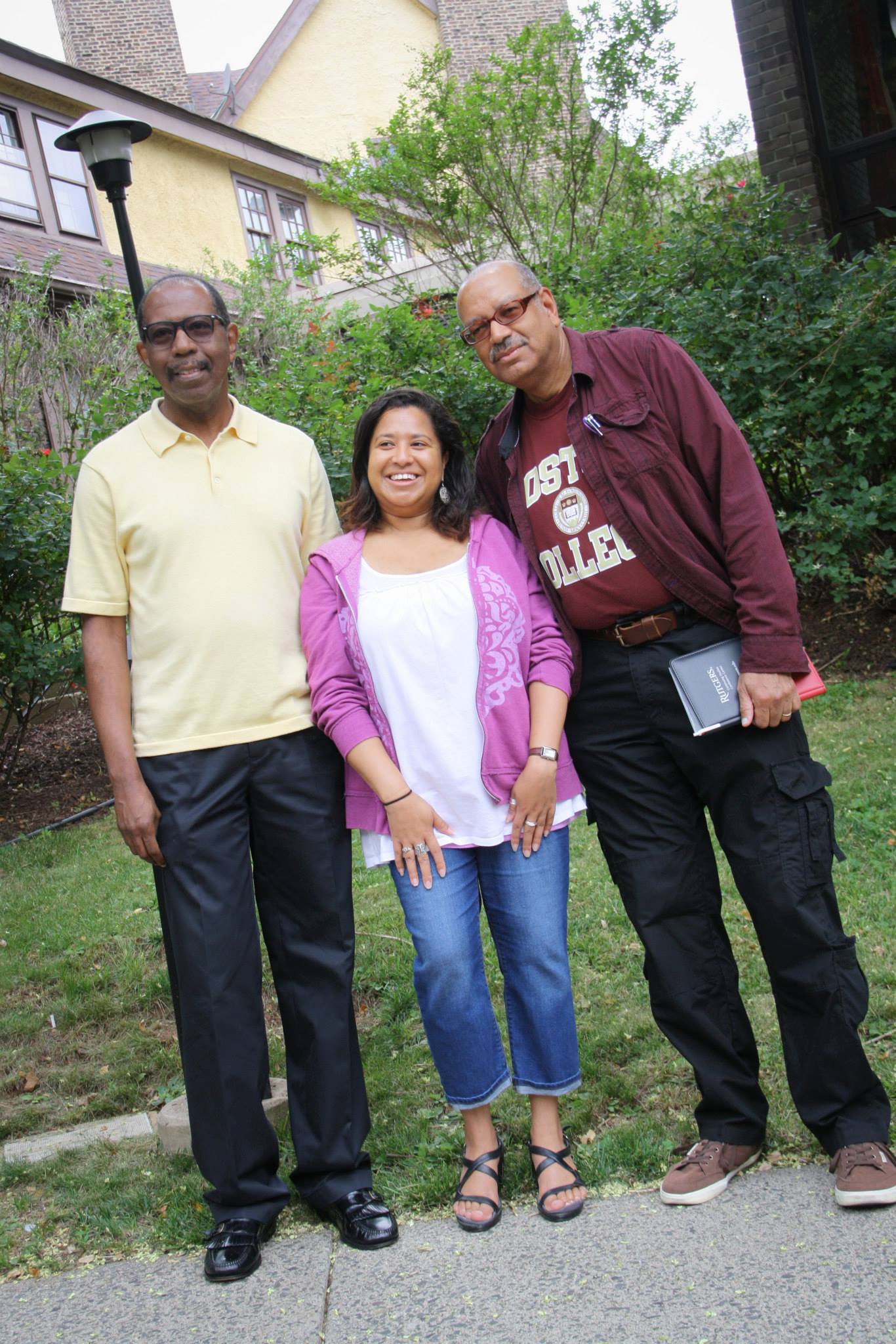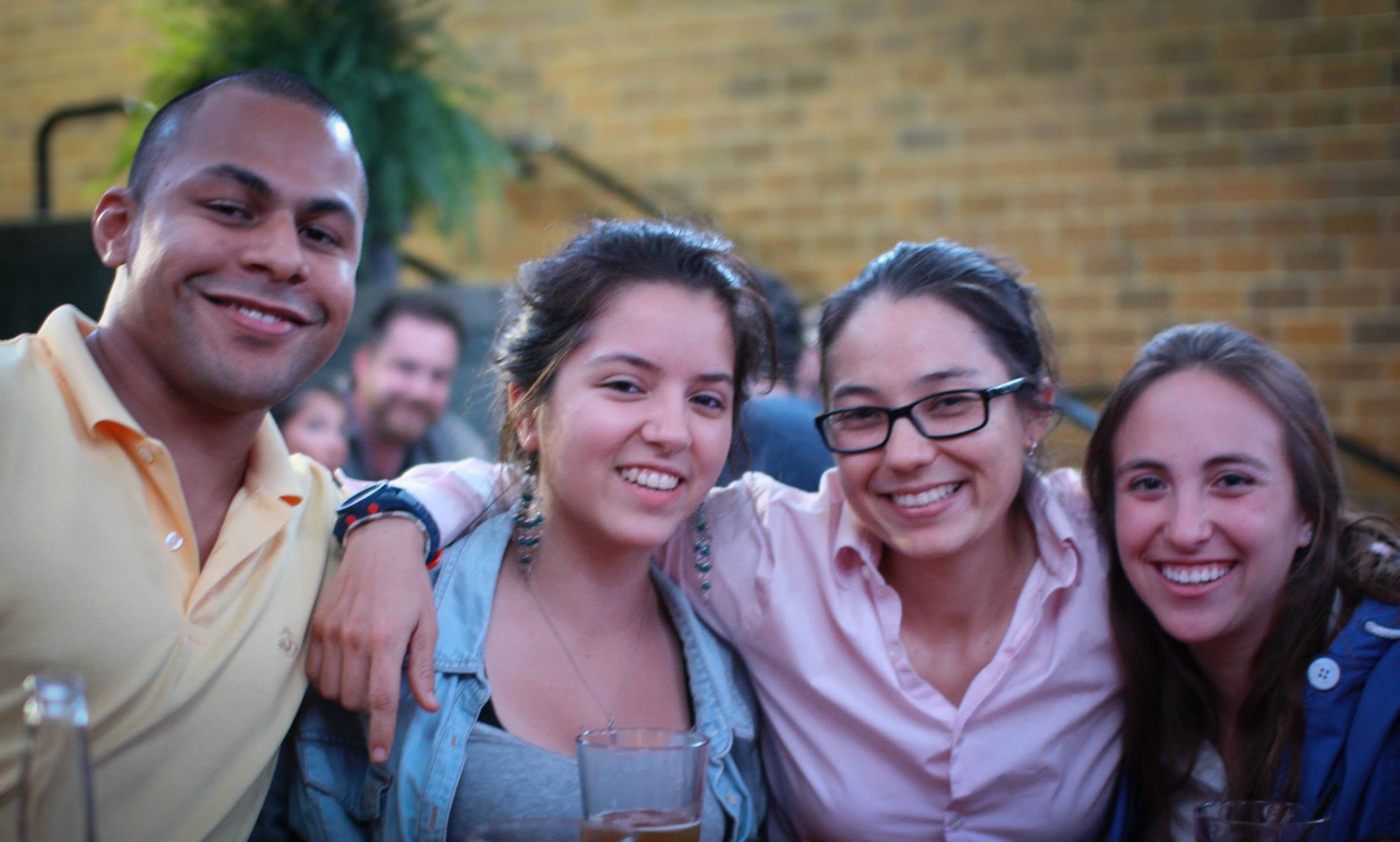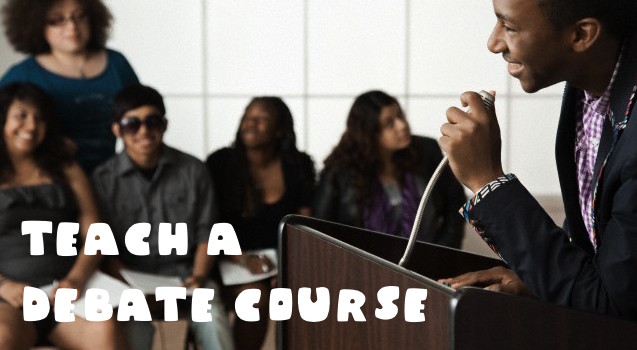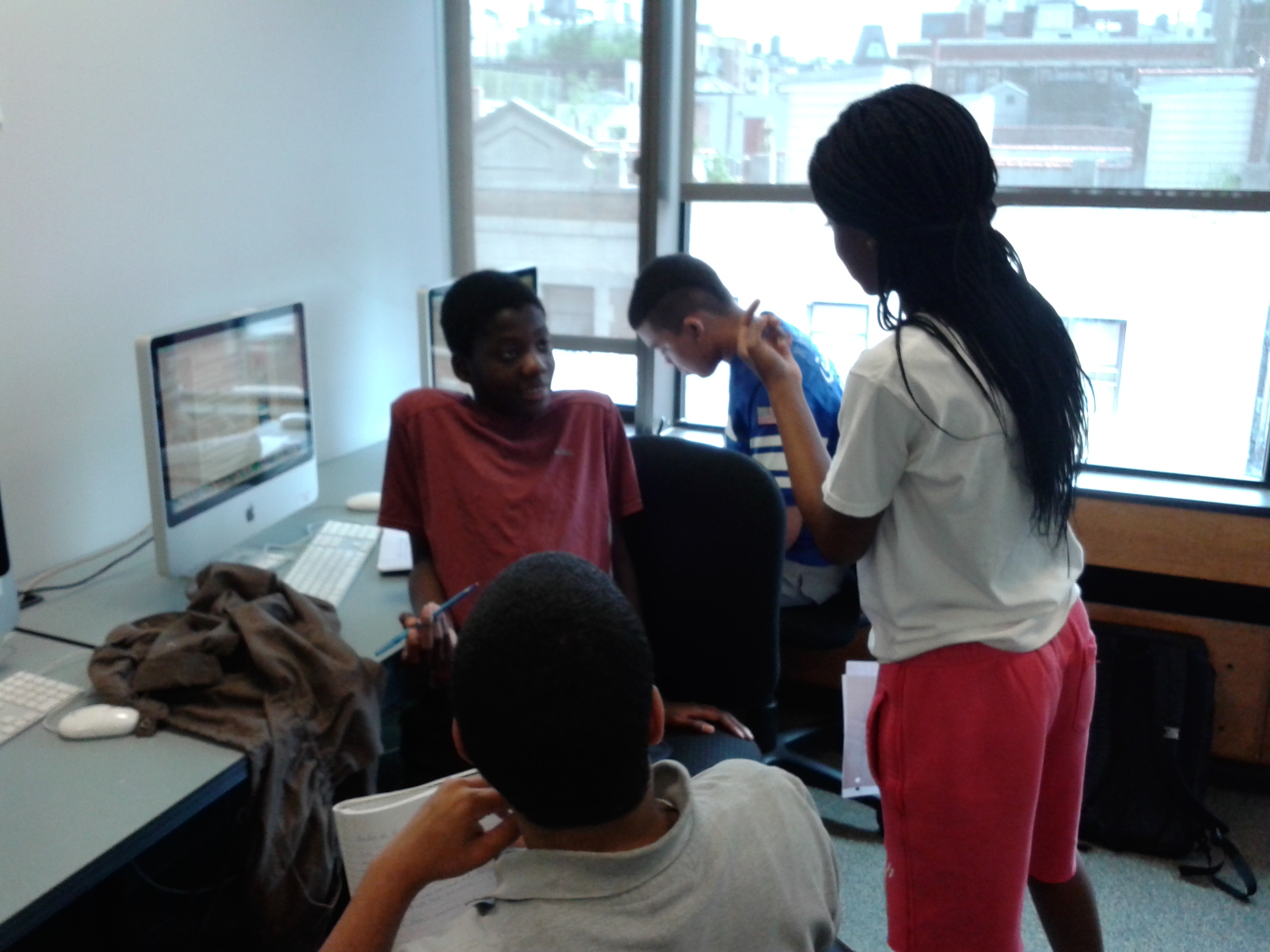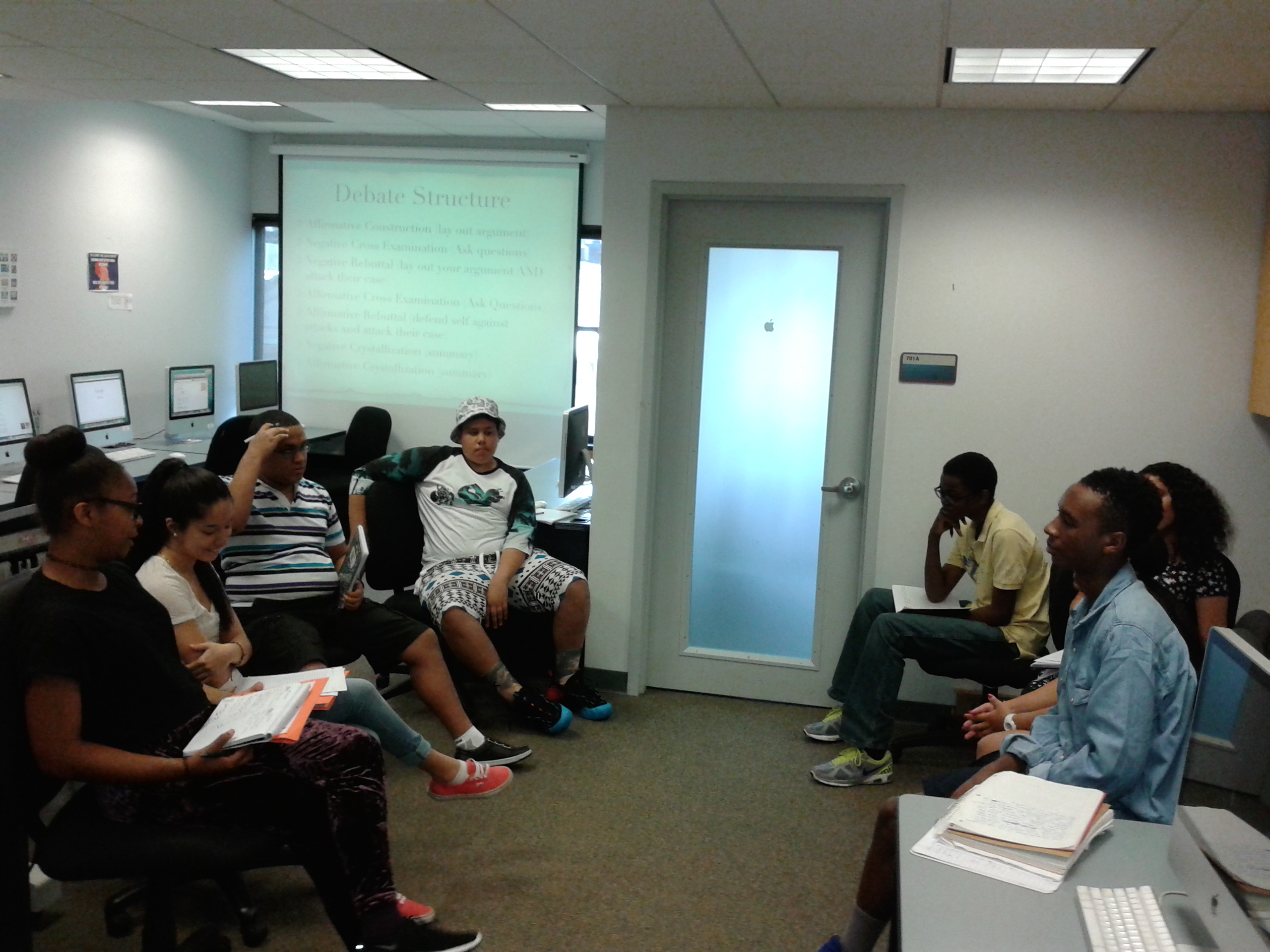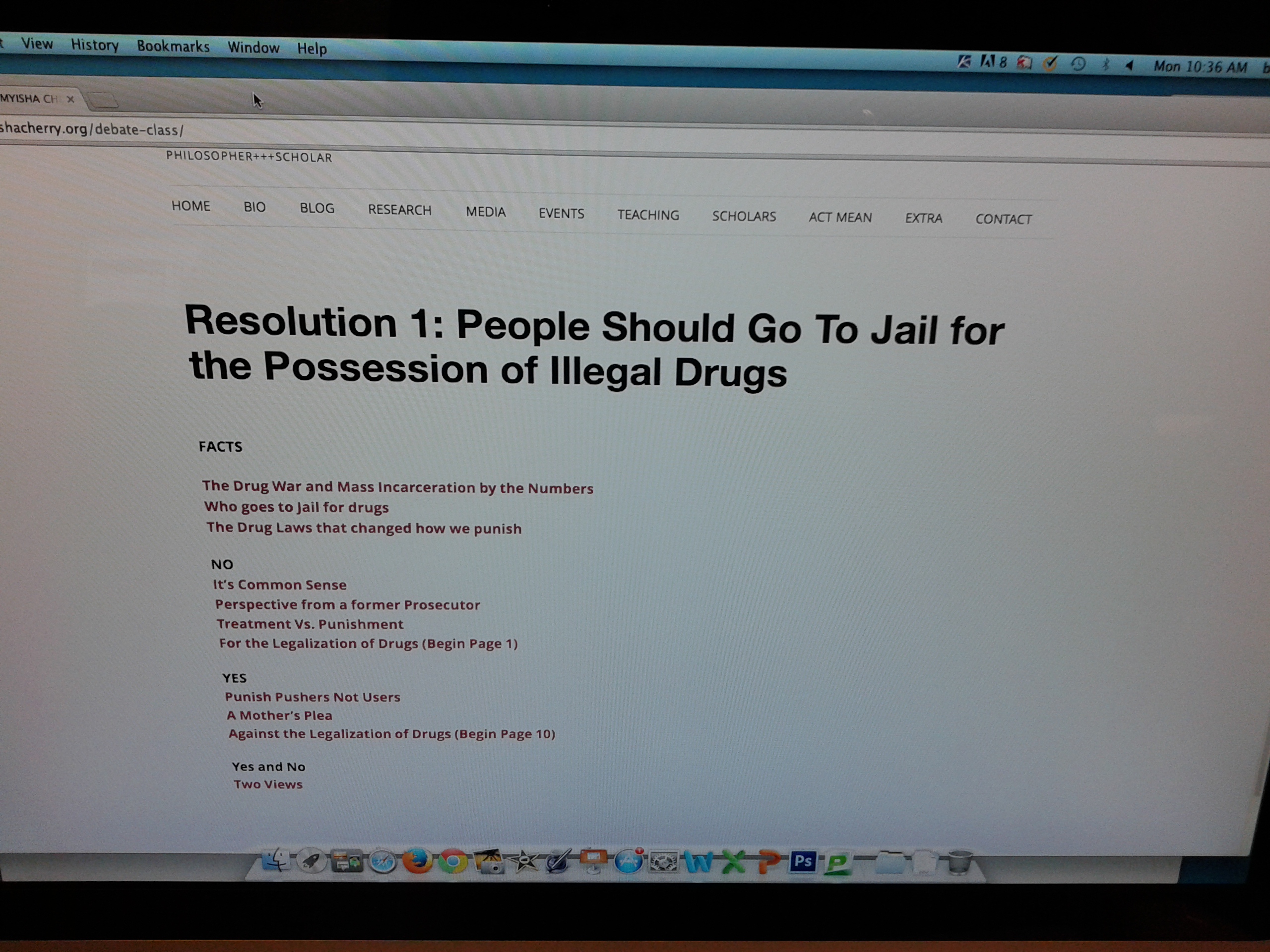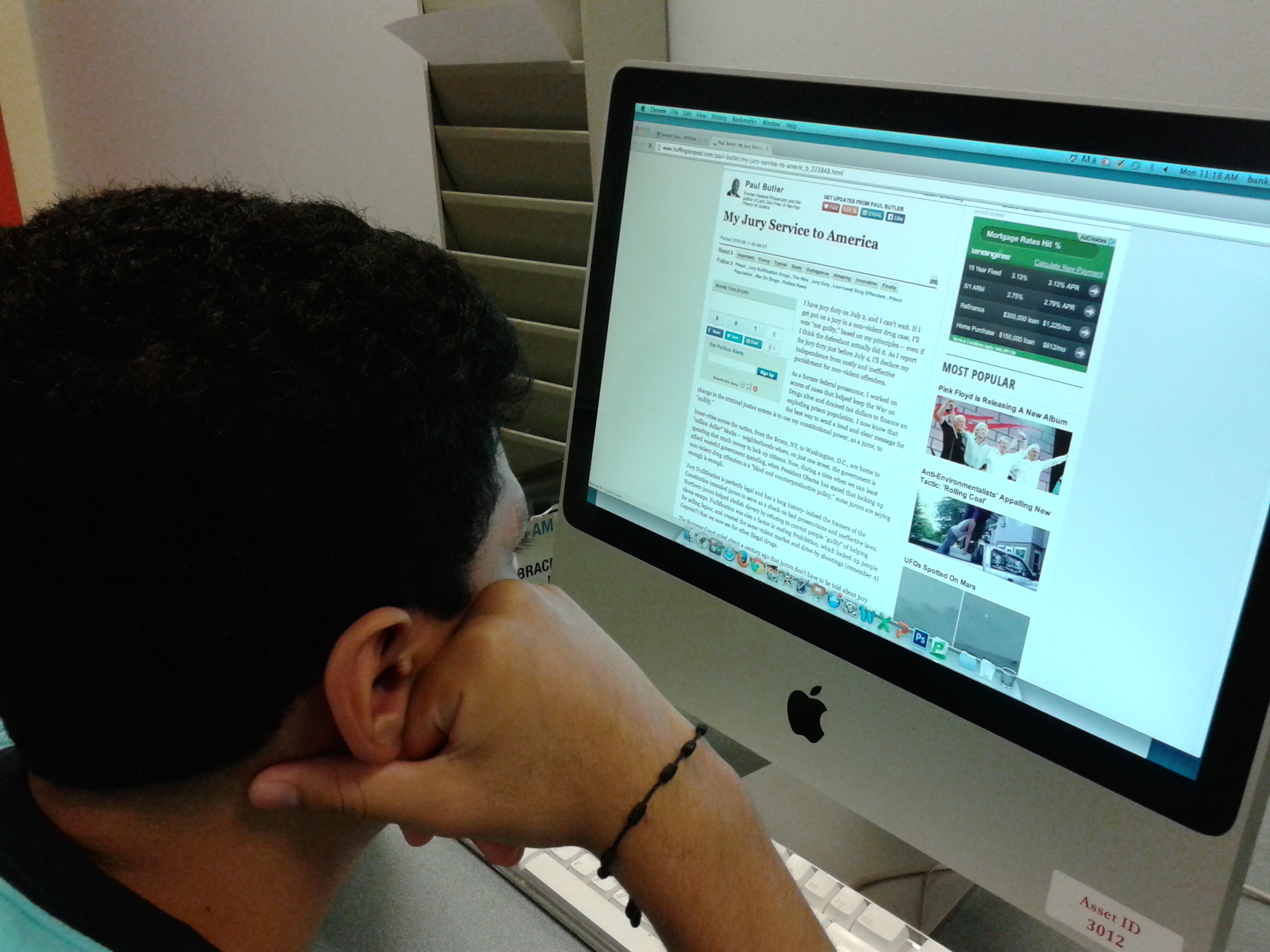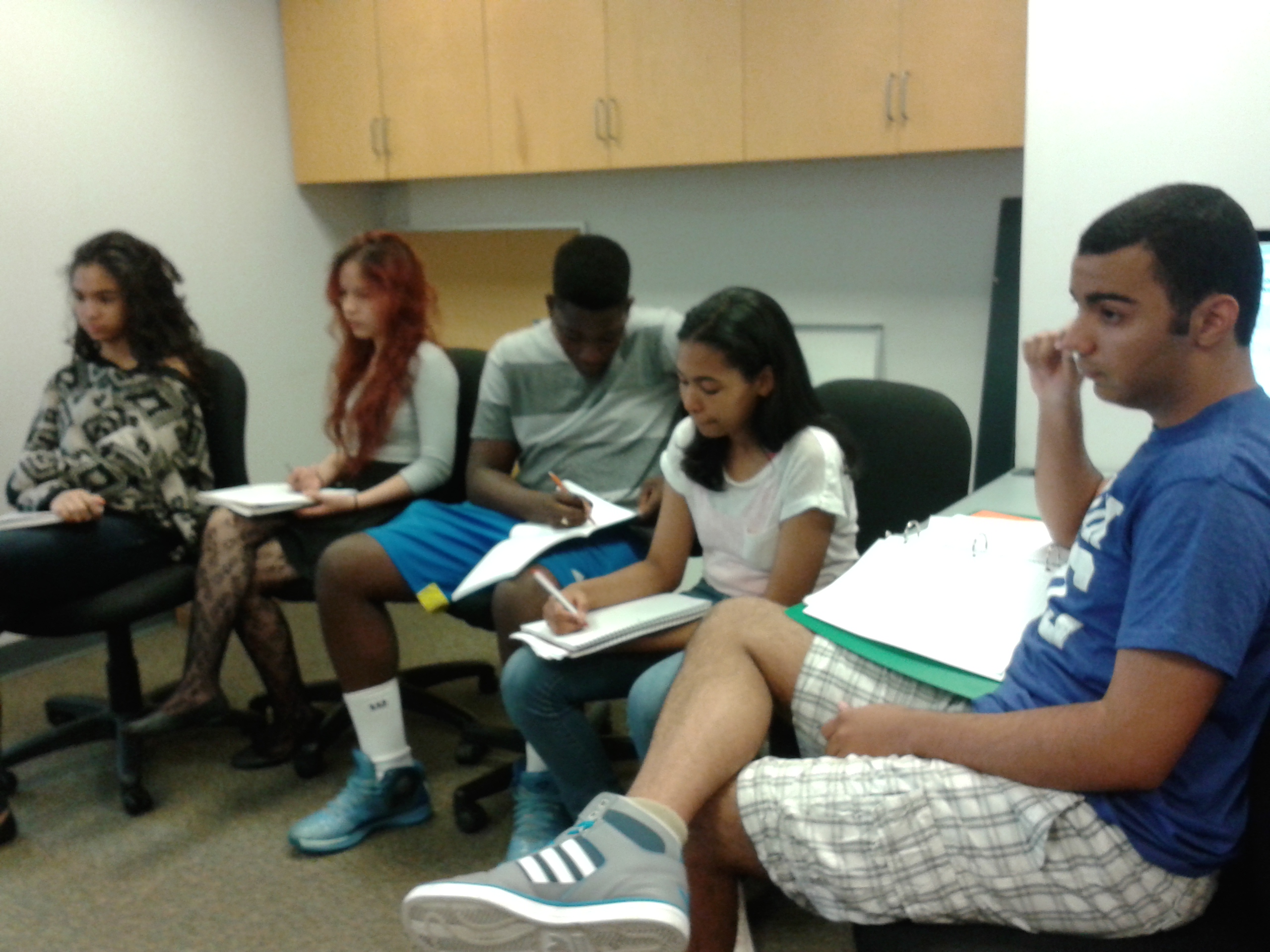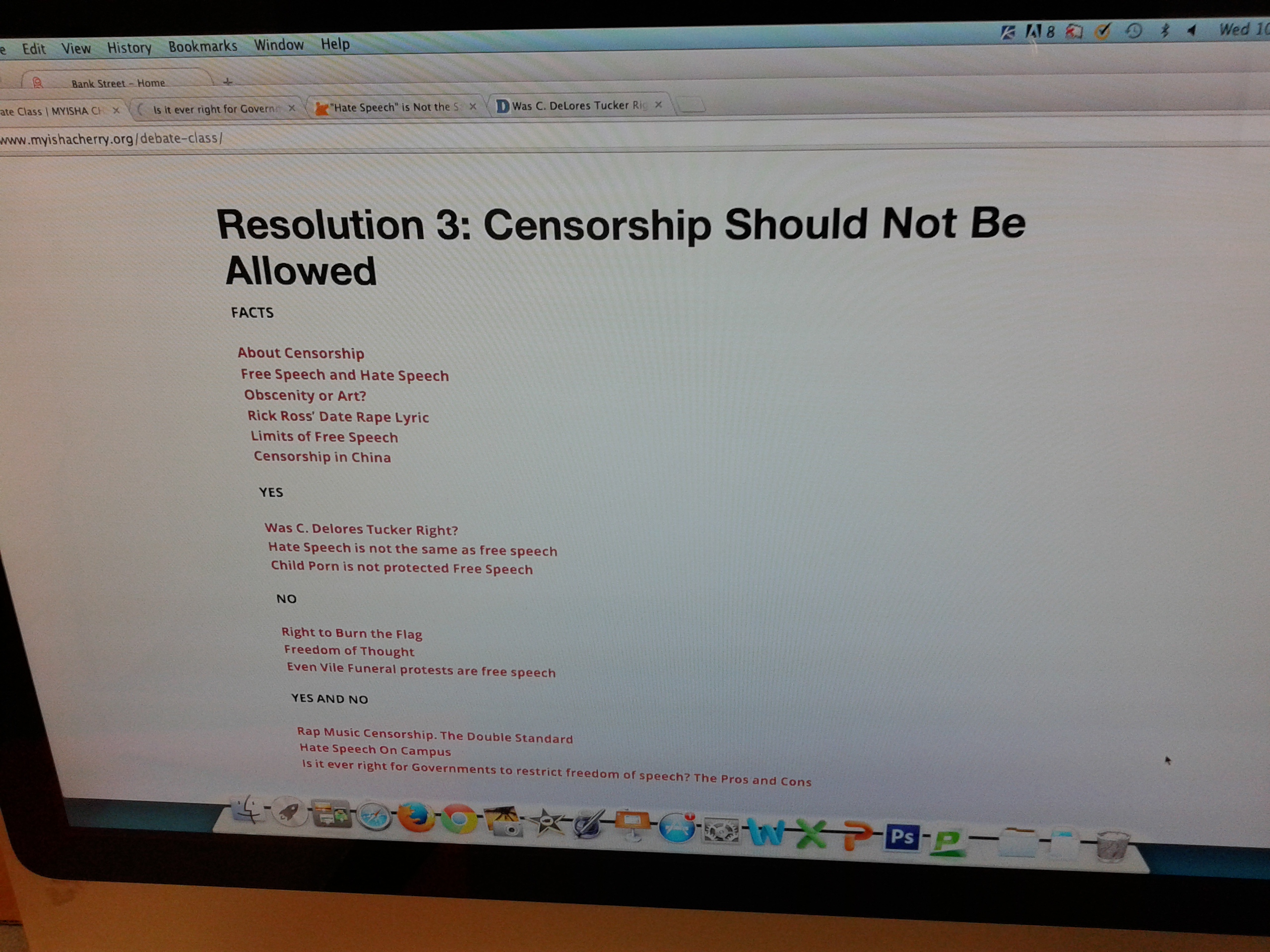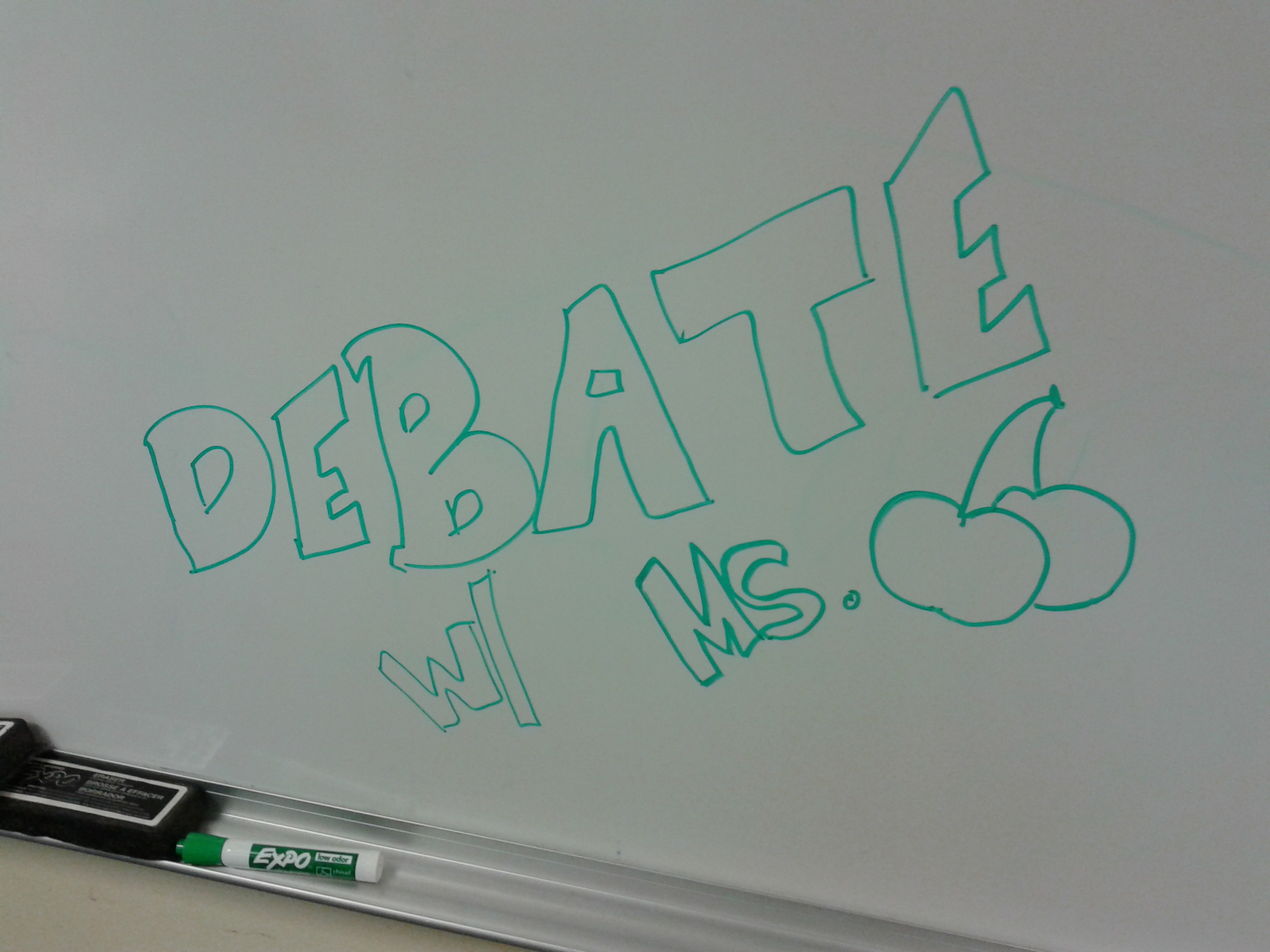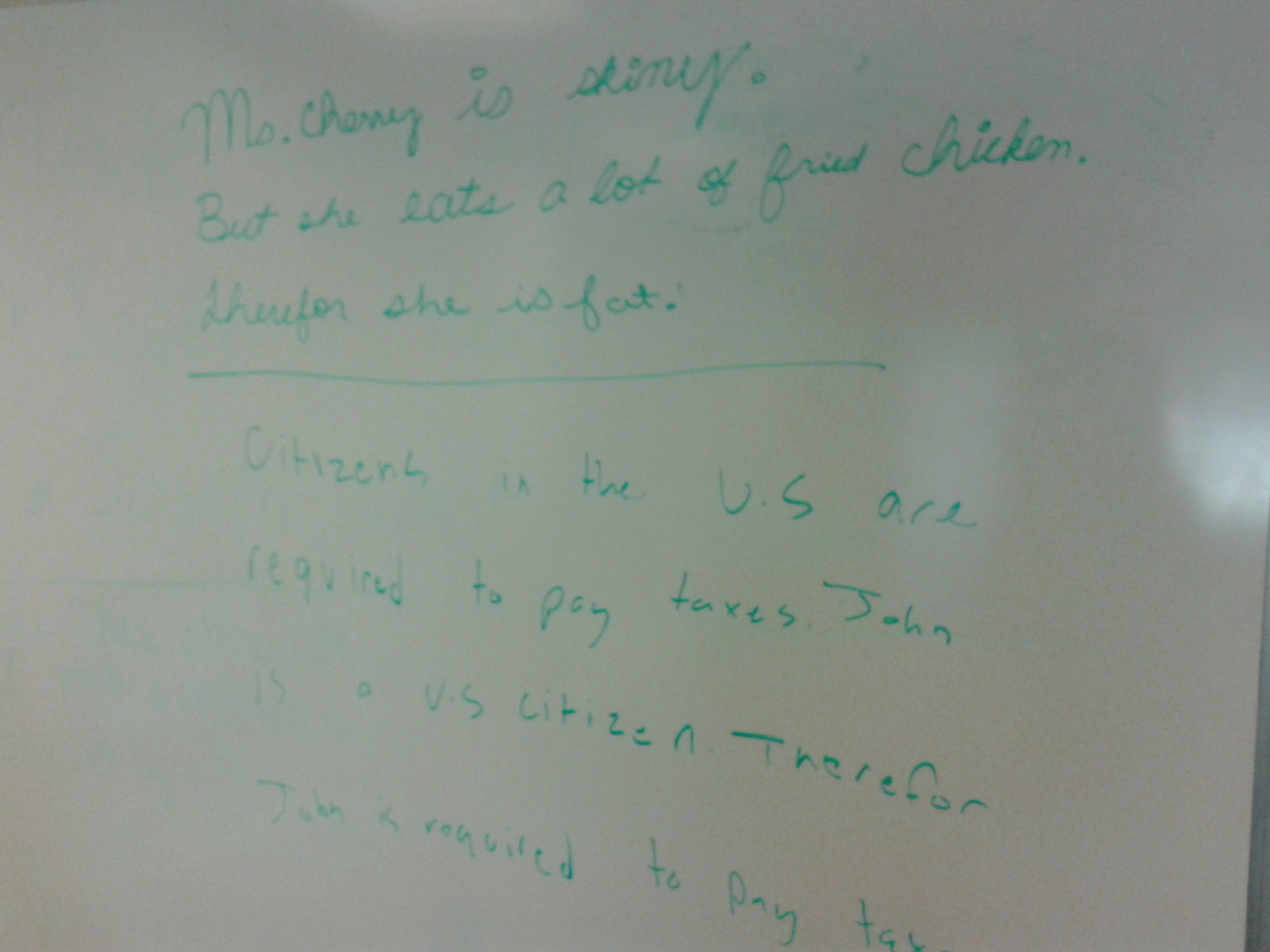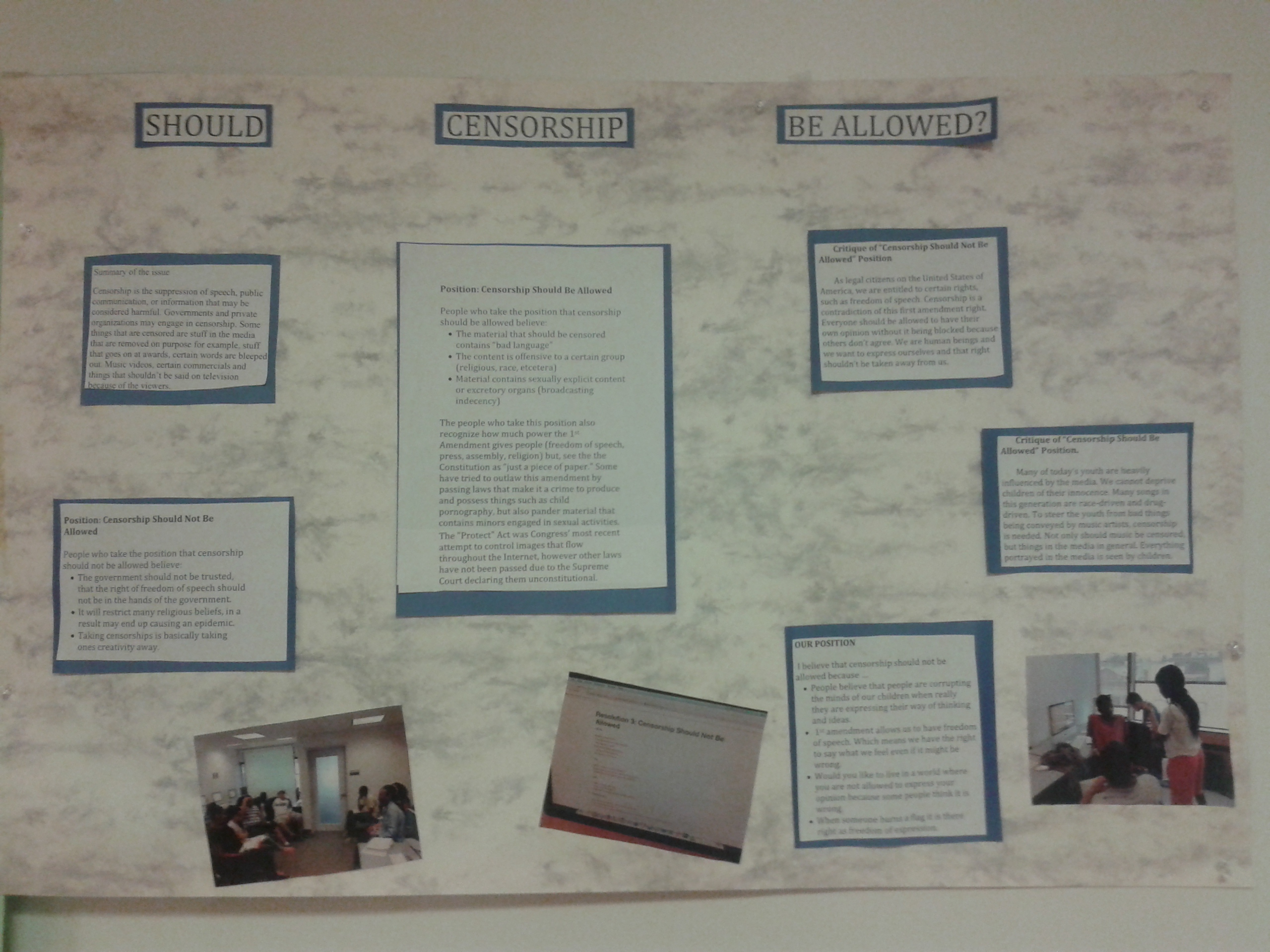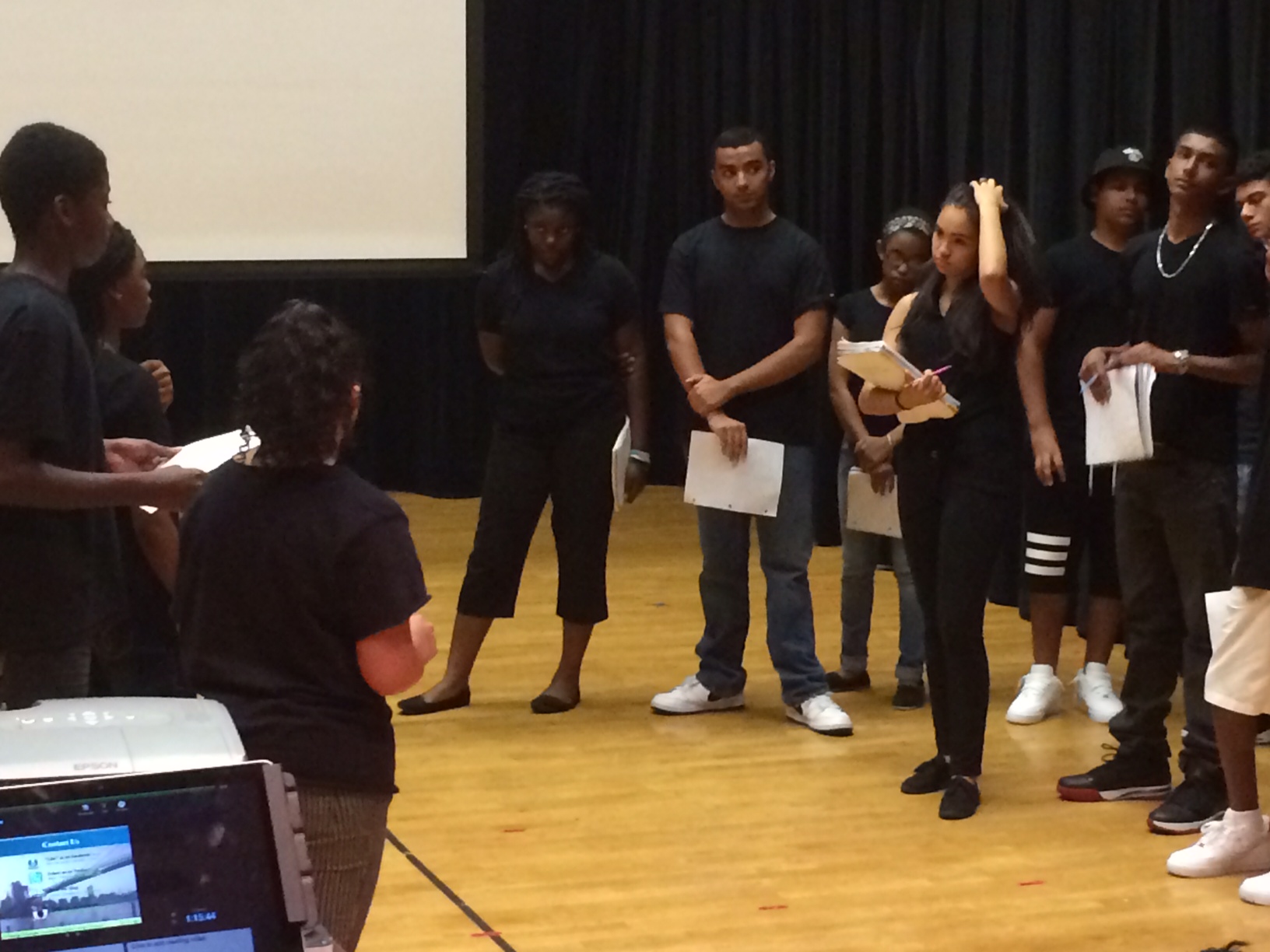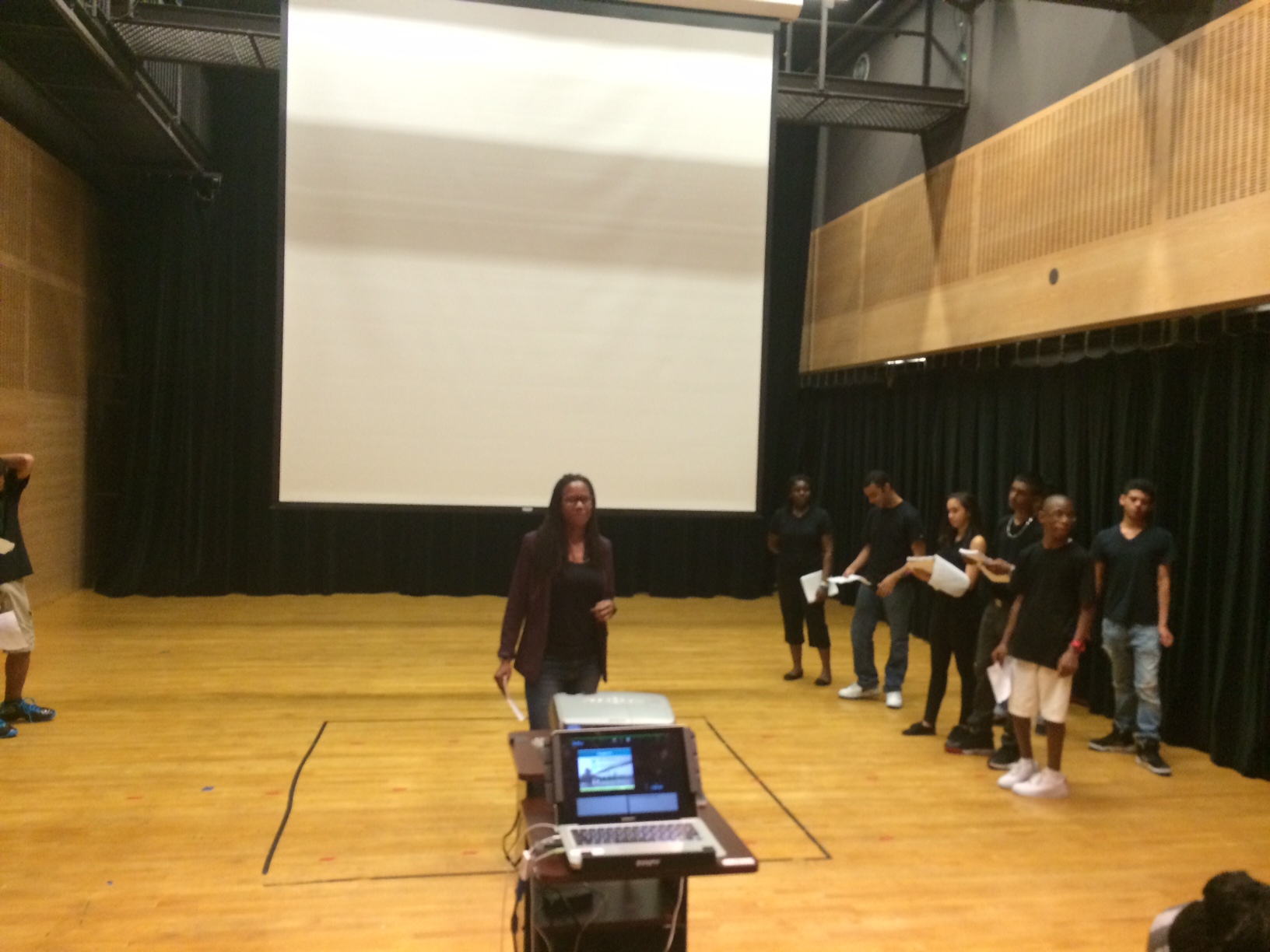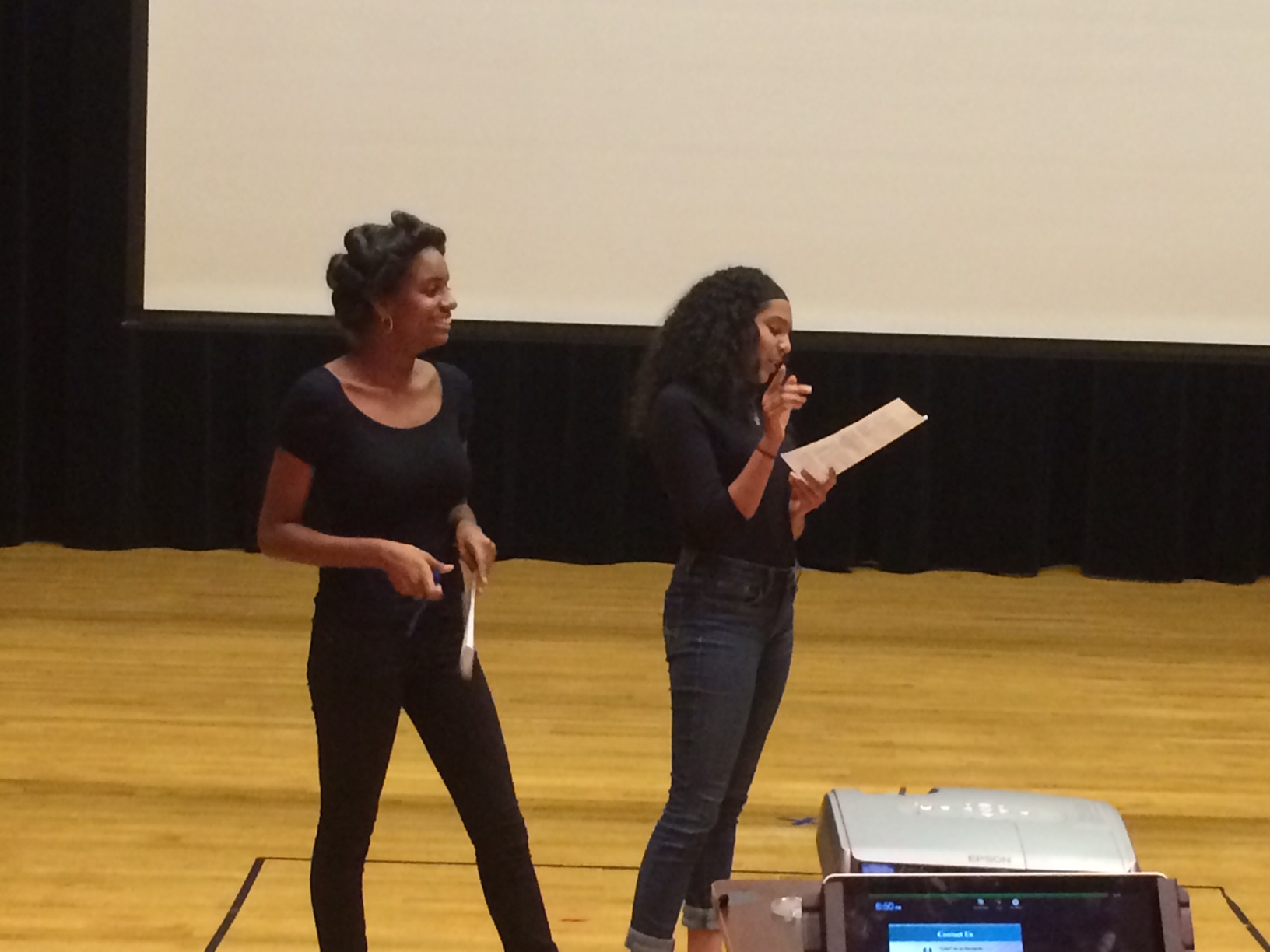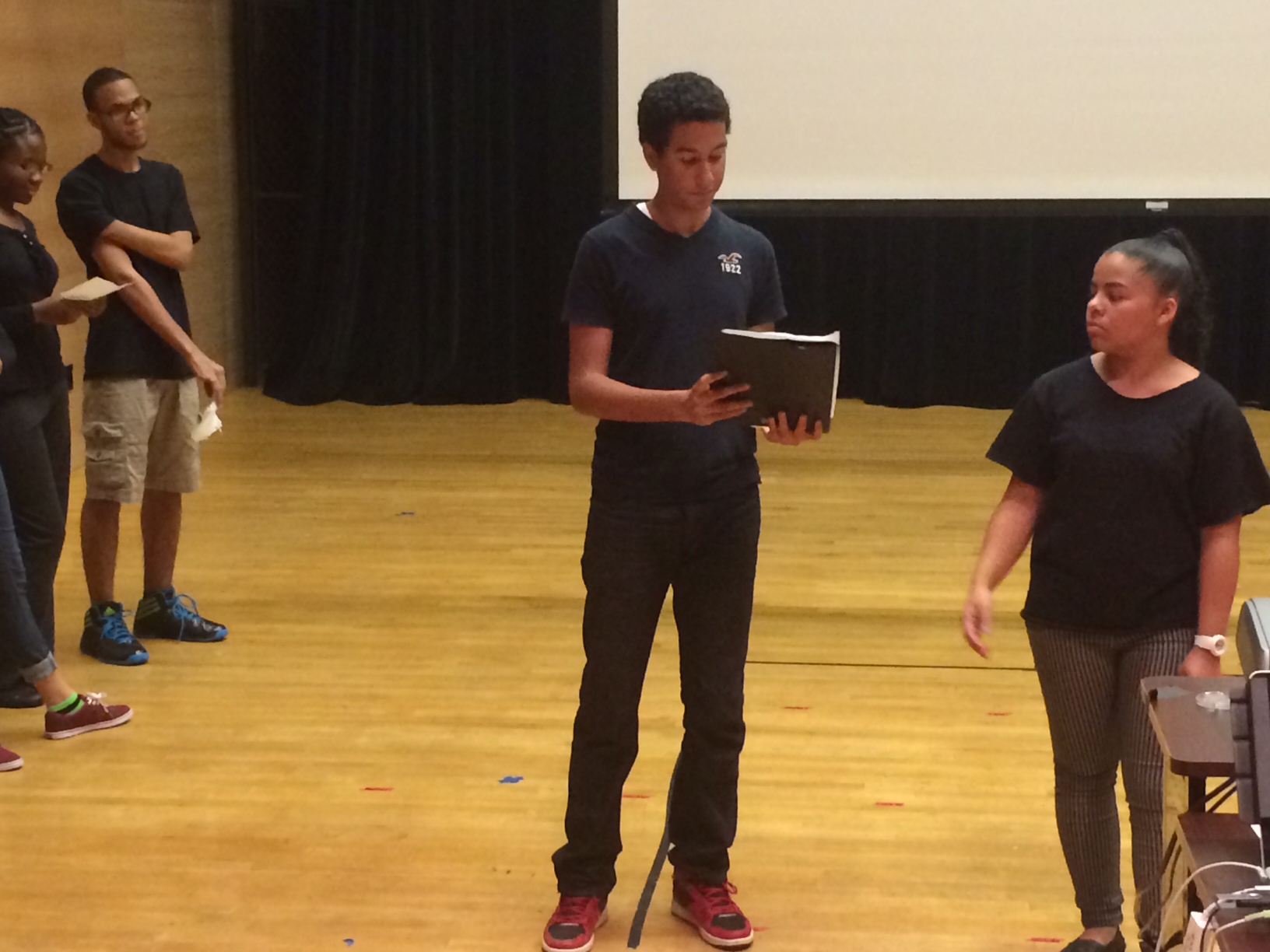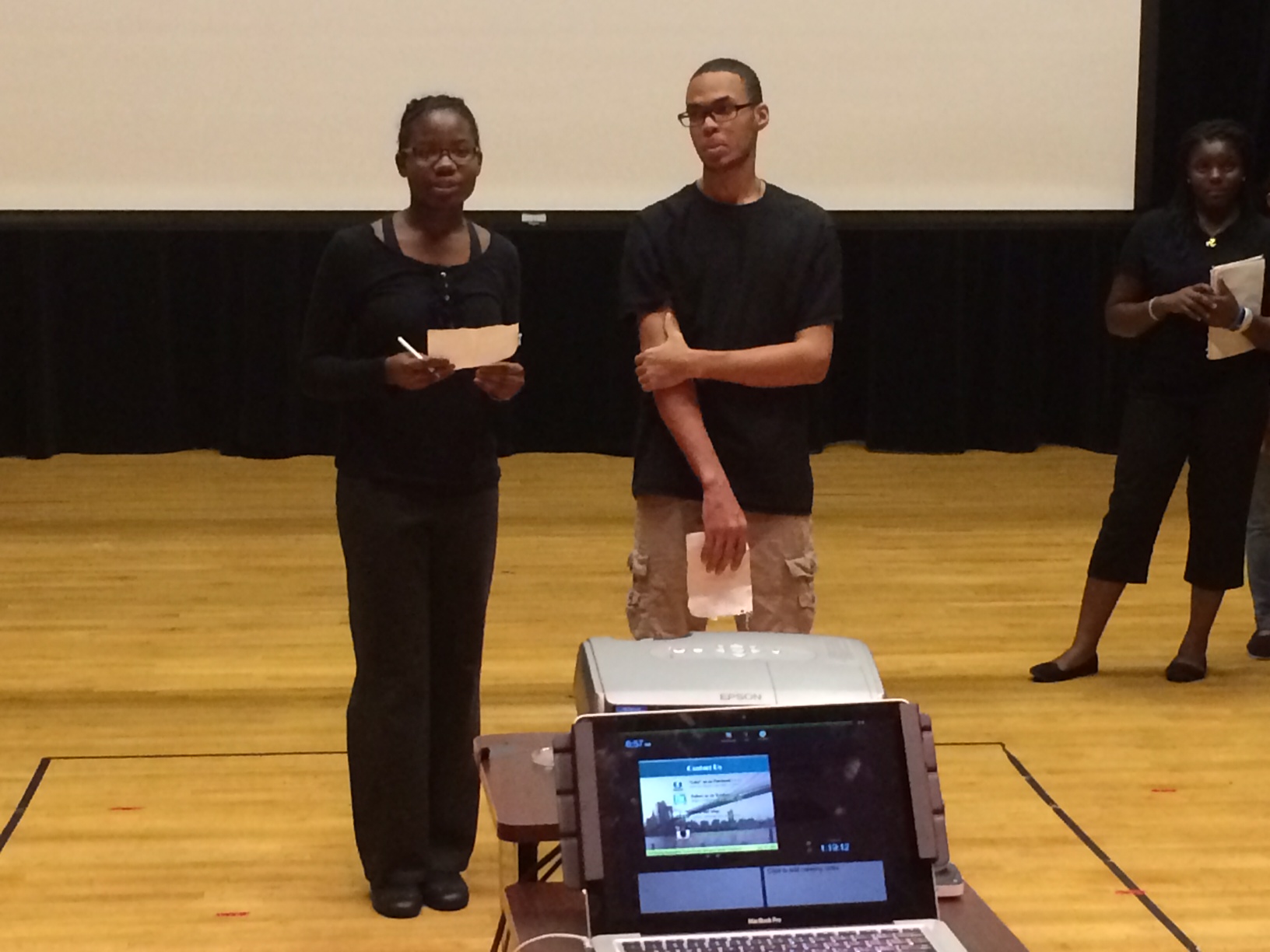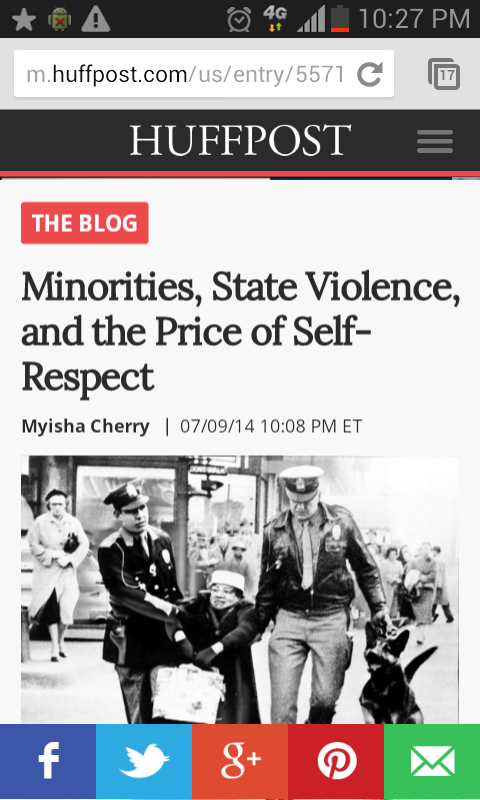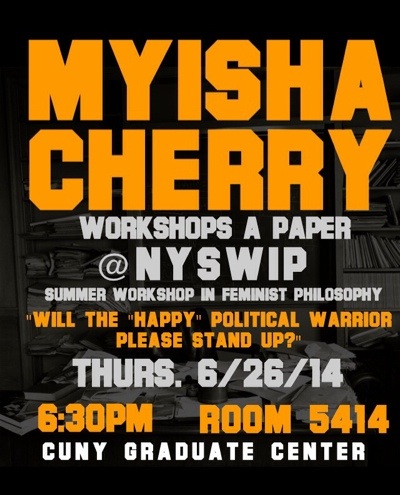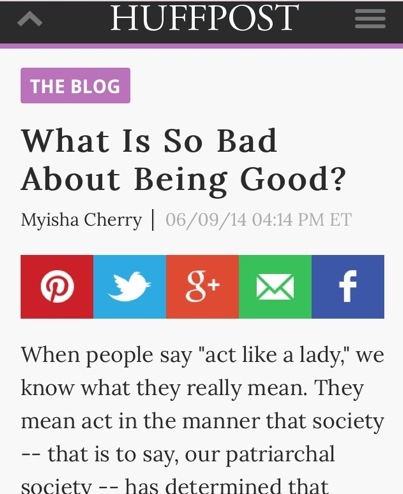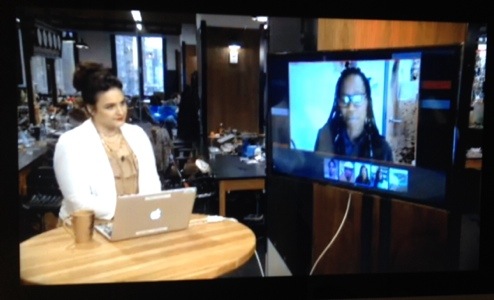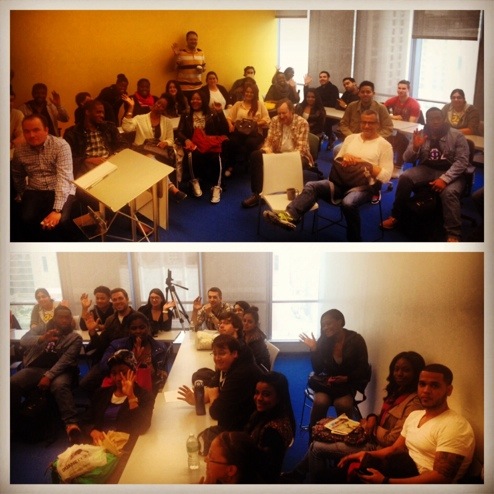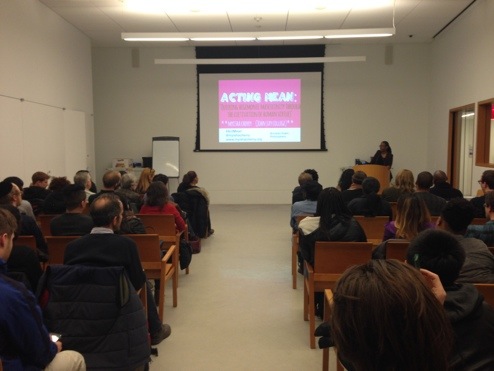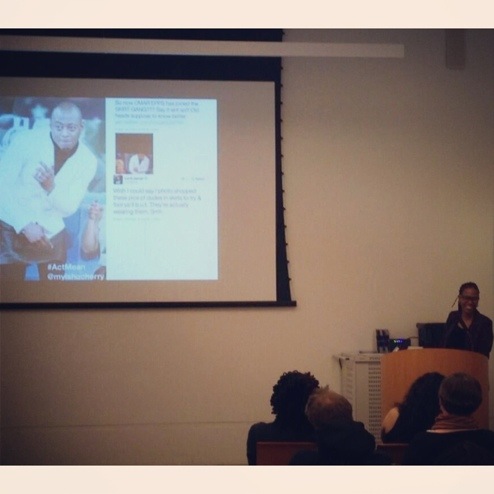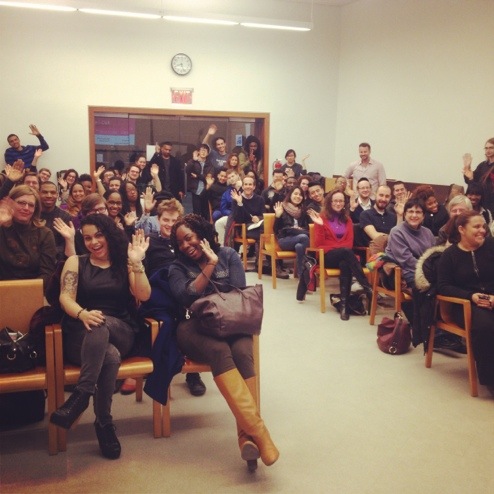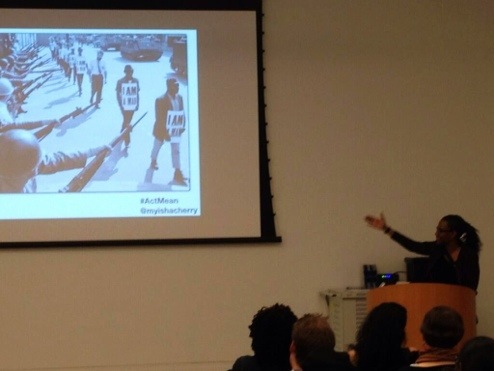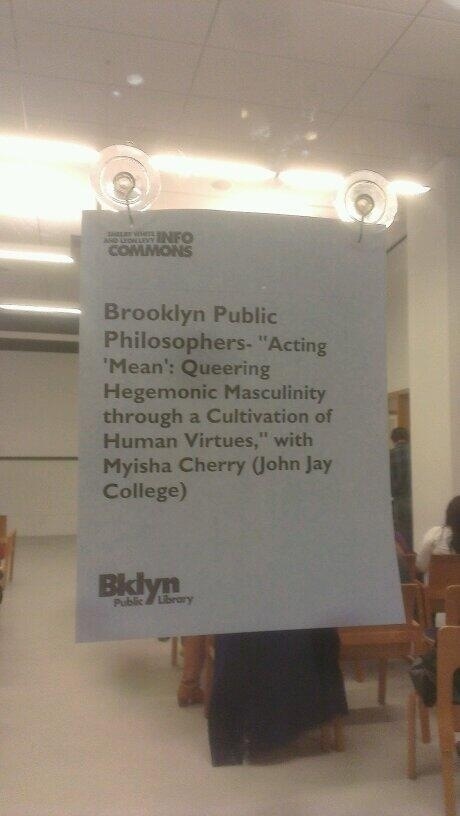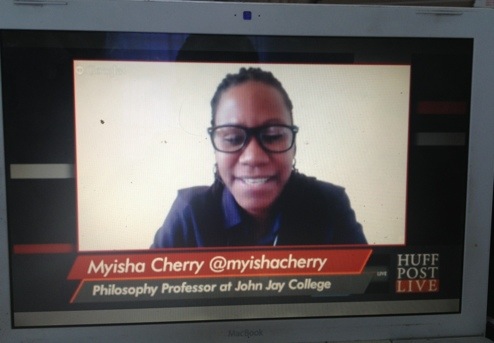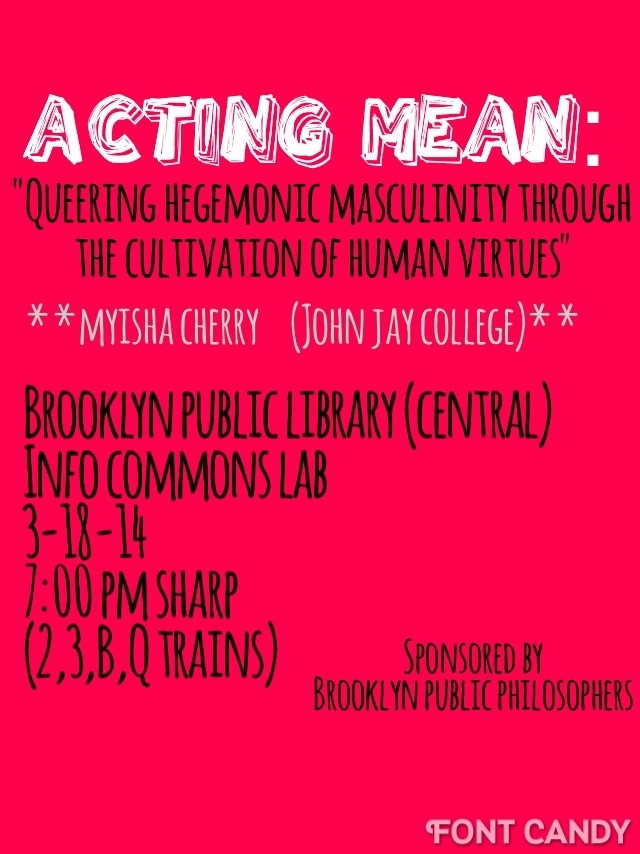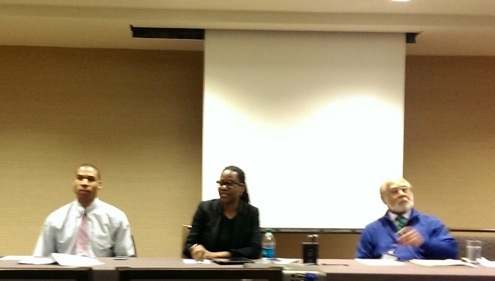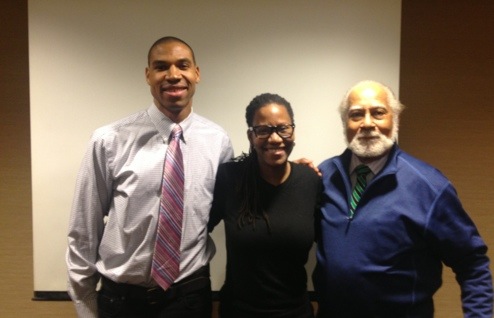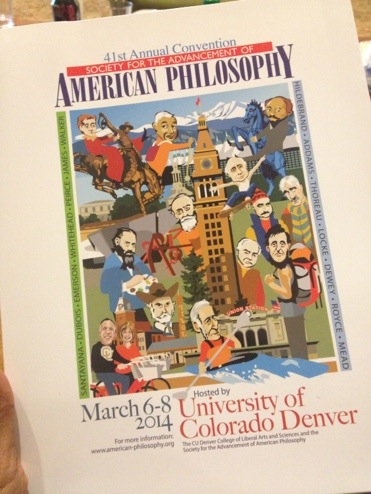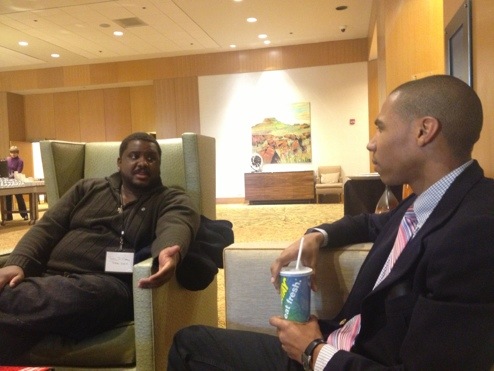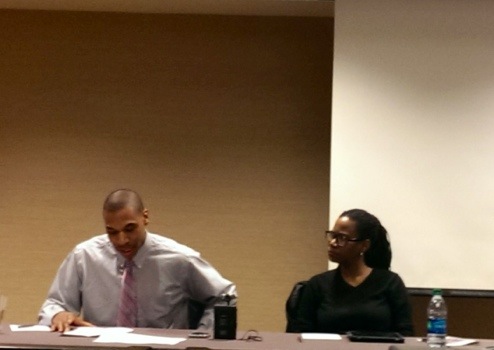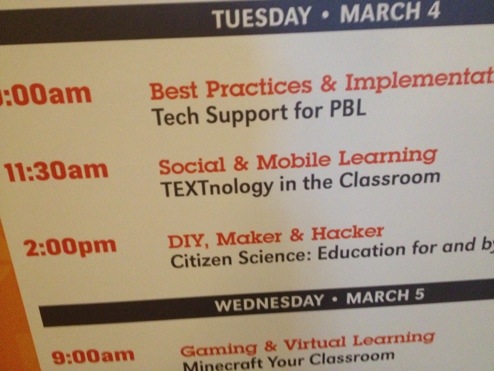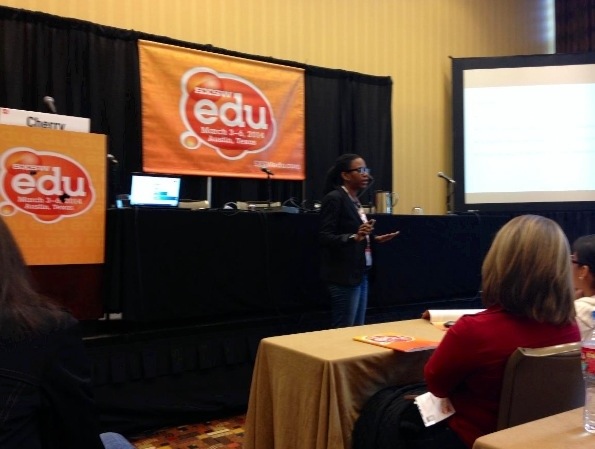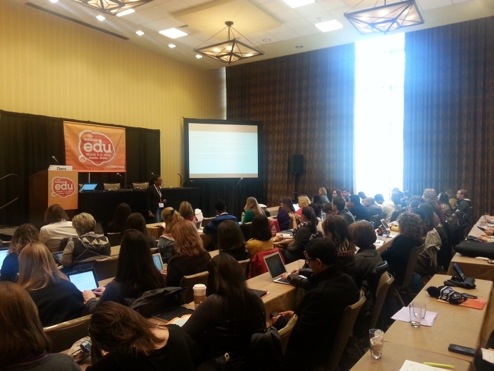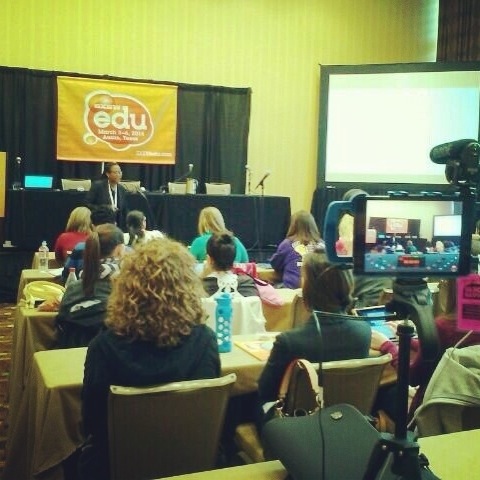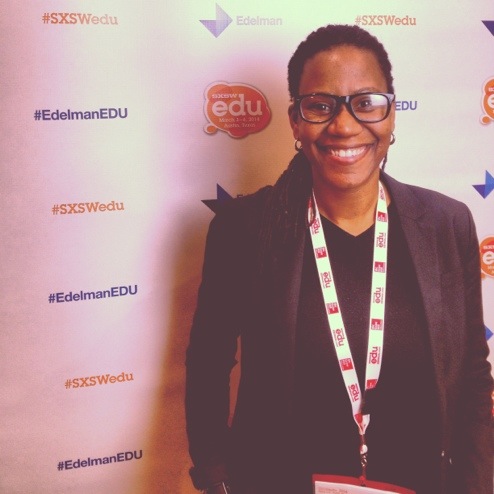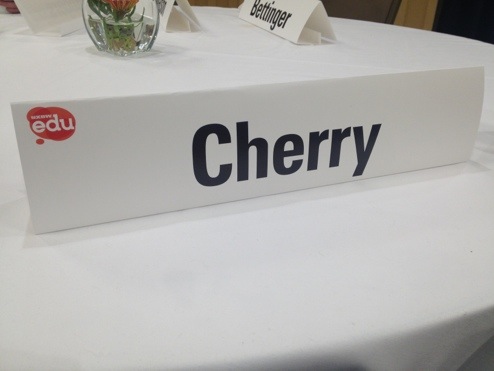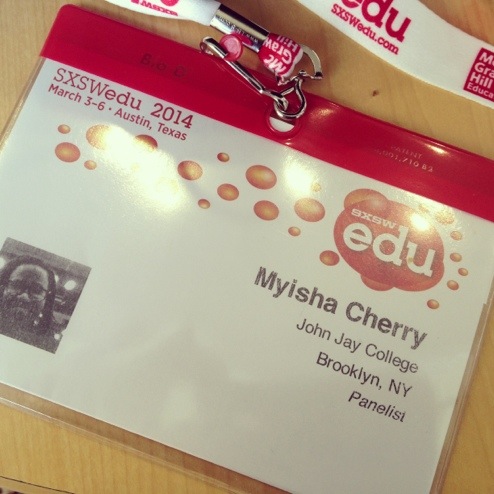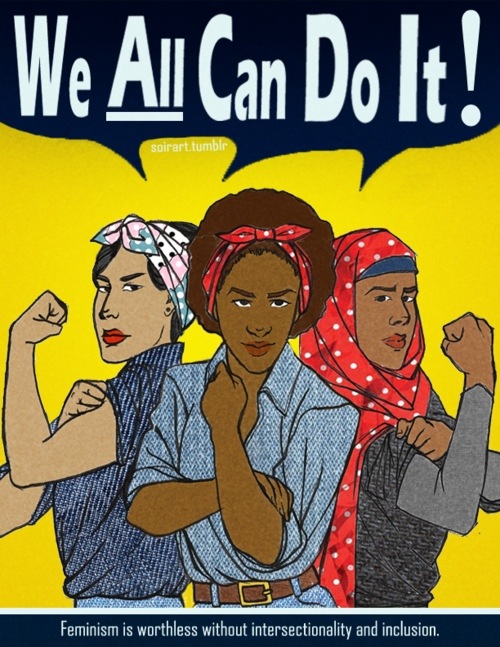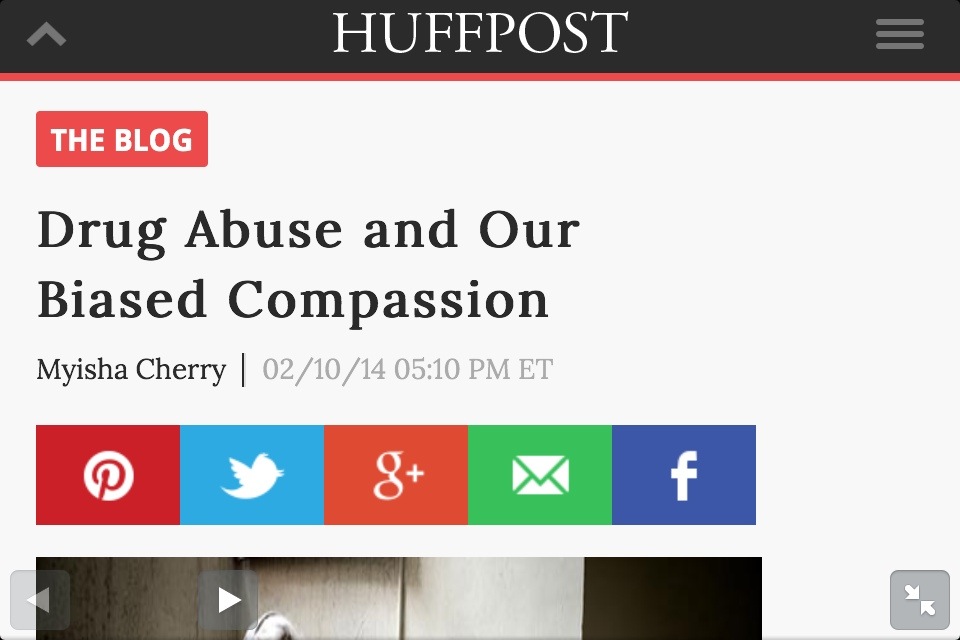Recently I served on a panel at the Woodlands Community Temple in NY in which I discussed memory and forgiveness in times of injustice. It was an event that bought scholars and Rabbis together to talk about memory in the African American and Jewish traditions.
Cherry Speaks at the University of Michigan
A Book Review of Coates’ “Between the World and Me”
The following was published at the Daily Nous for their “Philosophers On” Series (Aug. 18, 2015).
The Conscious Gospel and its Shortcomings
In the black community of the 1980’s and 1990’s, we had a term to refer to folks who understood the social structure, were in touch with black history, and who knew the truth and were not blinded by the lies of white supremacy. We called them “conscious.” We had our conscious rappers (i.e. Sista Soulja, KRS-One, and Public Enemy), our conscious artists (usually spoken word poets), and the conscious religious folks (i.e. The Nation of Islam and Five Percenters). Whenever these conscious folks rapped, spoke, or taught, you heard “da truth” as well as their love for creating awareness and for imparting knowledge to the people they loved.
That conscious spirit is still alive today in 2015 through the music of artists like Kendrick Lamar and through the phrase “stay woke” — which means to stay informed and aware despite the B.S. that may attempt to convince you otherwise. That conscious spirit is also present in Ta-Nehisi Coates’ Between the World and Me.Coates’ text is heavy in consciousness. It is something he inherited. In Section I, he describes how his parents were always encouraging him to be politically conscious; something he describes as “much as a series of actions as a state of being, a constant questioning, questioning as ritual, questioning as exploration rather than the search for certainty.” His conscious spirit during college was clear by his own recognition that “I was made for the library, not the classroom.” In Between the World and Me, Coates attempts to impart this consciousness to his son and to us, the reader. He achieves in speaking the truth.
In section II, Coates breaks down the Civil War and slavery with the aptitude of a historian and the social relevance of a sociologist noting, “This lie of the Civil War is the lie of innocence.” With words like “‘Good Intentions’ is a hall pass through history, a sleeping pill that ensures the Dream,” and “Black life is cheap, but in America black bodies are a natural resource of incomparable value,” Coates is like a conscious spoken word artist whose words make you want to shake your head and snap your fingers in agreement.
Coates makes a conscious call to us. He urges, “You must struggle to remember this past in all its nuance, error and humanity”, “Do not accept the lie. Do not drink the Poison” and “What I wanted for you was to grow into consciousness. I resolved to hide nothing from you.” This consciousness was important to his survival and perhaps it will aid in our own. He notes, “I did not perish in the agony of not knowing.” In describing the joy of study and struggle, Coates writes:
“The changes have awarded me a rapture that comes only when you can no longer be lied to, when you have rejected the Dream… the changes have taught me how to best exploit that singular gift of study, to question what I see, then to question what I see after that, because the questions matter as much, perhaps more than, the answers.”
Here Coates is following the Socratic tradition of self-examination and critical interrogation of the world. When we live the philosophical life, we become concerned with the questions as much as we are with the answers. I think the consciousness Coates preaches throughout the text is important, but I wonder if it’s enough.
Between the World and Me is a message of consciousness directed to his son as he approaches adolescence and to us as we rise to moral and civic maturity. This consciousness is the answer to surviving the struggle and a design for how to live in a black body. As a philosopher and critical citizen, I love interrogation and awareness but I find something insufficient in Coates’ overall message. I blame Malcolm X.
Although Malcolm X preached about how important consciousness was, that consciousness ushered in economic development, moral perfection, and physical health. Knowledge has both intrinsic and extrinsic value. Knowledge is not a library of facts that only makes us smile at night and makes the oppressor terrified. No! It doesn’t work that way. Consciousness is the foundation to a radical liberation, not the beginning and the end of it.
Fear is a recurring word used throughout the text. Coates admits he has it and may have imparted it to his son. But what is consciousness if what we know only makes us afraid and powerless?
Just when I think Coates will take us beyond the intrinsic value of consciousness and into the realm of black power, he describes power as a “deep knowledge of how fragile everything… really is.” For Coates, black power is “more gorgeous than any voting rights bill… it’s a kind of understanding that illuminates all the galaxies.” Black power is beautiful but it cannot be restricted to only consciousness nor can this consciousness replace the action and other ingredients that we need for true liberation. Awareness of our fear, vulnerability, and fragility is important but it alone is not preventing black people from getting shot by the police, disproportionately incarcerated, or from being caught up in a constant cycle of poverty.
Between the World and Me is an enlightening analysis that leaves us knowing and understanding more than we knew before, but it is an insufficient guide for how we can navigate a world that has become a police state, where the killing of black bodies is excusable, and where fear is commonplace.
Consciousness makes us aware of the fact that we need more than itself to help us survive and thrive in the struggle.
My Summer At PIKSI-Penn State
I am very grateful for the opportunity to have been selected to work at PIKSI Penn State this summer. PIKSI stands for Philosophy in an Inclusive Key Summer Institute. The Institutes are designed to encourage undergraduates from underrepresented groups to consider future study of philosophy. It was a pleasure supporting Dr. Serene Khader as she directed the Penn State program, meeting, challenging, and mentoring students, and connecting with some new awesome colleagues.
We had some great speakers this summer. They included Kristie Dotson, Luvell Anderson, Talia Bettcher, Sarah Clark Miller, Lisa Guenther, and Nancy Tuana. We also read over 25 articles and book chapters during the 10 day institute. I learned so much about oppression, feminism, prisons, Trans issues, and more. I also learned how to improve my course preparation and how to write more effectively. I am grateful to the University of Illinois at Chicago for sponsoring me and for a great supporting cast at Penn State.
If you are an undergraduate or a philosophy graduate student, I recommend you apply for 2016. You will not regret it.
My Latest Podcast with Amir Jaima
My TEDx Talk| Anger Is Not A Bad Word
In this talk, Philosopher Myisha Cherry argues that contrary to what psychologists and the powers that be may say, anger is not a bad word. Instead, anger is motivational, productive, and necessary in the pursuit of justice. Instead of suggesting we get rid of anger, Myisha recommends that we express it and refuse to allow it be policed.
4 Things I Learned From Being A TEDx Speaker
I recently gave a talk at a TEDx event. I remember in early January when I got the invitation. I was very excited. I have been watching TED talks since they first appeared online. My favorite talks are from Ken Robinson, Jamie Oliver, Derek Silvers, and Dave Pizarro to name a few.
Click To Get Presentation Slides From My Talk
I’ve always dreamt of being able to get tickets to an event. Later on as I got more confident, I started to wish that I would one day be a speaker. Dreams do come true.
I had a blast presenting. My Talk was entitled “Anger Is Not A Bad Word.” It was well received by the audience and I hope I was able to bring value to them and to those who will watch the film later on this spring.
I knew the process of preparation would be intense and I would like to share with you three important things I learned from being a TEDx Speaker.
1. Be You!
Watching TED talks can be informative but also intimidating. You can be made to feel like you have to either be those speakers that you look up to or model their intelligence or performative style. I had to keep reminding myself that I have to be me. “Being Me” includes presenting in the way that I usually do. I am not a magician so I didn’t pull any rabbits out of my hat. I am not a musician, so I did not sing or play any instruments. I am not a memory genius so I did not commit my whole 18 minute speech to memory. My goal when I got on stage was to allow the audience to see Myisha. Yes, I wanted to do my best and follow TEDx rules but I also needed to be myself to be effective. So that was who I was. In this way, I felt no pressure, I worked less, and I felt more confident.
2. Always Be Ready!
When I received the invitation to speak, there was no doubt to what I would present on. Anger and social justice is my research focus and it is what I am always thinking about and what I most know. I did not have to do additional research to prepare. I referred to my past op-eds, articles, and research notes and was selective about what I would include in the talk.
Its important that we have a number 1 hit always ready to play. What I mean by this, is that we can desire to be a speaker, but if we don’t have a speech ready now, what are we going to talk about. I would suggest that you think about what you are passionate about, what you know, what you want others to know. Create an outline, script, and/or powerpoint presentation. In this way when someone ask you to speak you are already and always ready. This really helped me not to be overwhelmed or feel incompetent.
3. Practice, Practice, Get Feedback, and then Practice Again!
I have never practiced a presentation like I did my TED talk. Seriously, I was tired of the material by the time of the event. But I was also very familiar with it. That came about because of practice. So practice!
Practice does not entail memorization. It means to be familiar with your material. To know it front and back. It also includes knowing the different moves of your talk and how you will proceed.
I would suggest that you practice in front of a group. I don’t like to do this for play, play. So what I did was I gave my TED presentation at my previous talks. This made it real. It also allowed me to get feedback from the audience. For example, I asked students at UNC-Charlotte after a talk I gave there, “Im doing a TED talk on this presentation. What points really resonated with you?” Whatever they told me, I made sure to include it in my TED speech.
I also gave a colloquium talk to some graduate students. At the Q&A, I asked them “How can I get this content to resonate with a non-academic audience?” They gave me some great suggestions. Those suggestions made me reconsider my introduction, information I should take out, and how I should conclude.
My TEDx talk was the result of a great Pre-audience! I could not have done it by myself. Feedback is very important.
4. Know That Anything Can Happen But A Sense of Humor Goes A Long Way
When I got up to do my talk, my mic was not on and I did not know it. I was two minutes in and I noticed confused faces from the audio/visual team. I stopped. Asked them in a funny way, ” My mic isn’t on?” They said “Yes”. I said, “Come fix me!” As they did I made made small talk with the audience. I told them lets rewind it back and que theme music this time.
Im so glad that moment happened. In those 2 minutes the audience got to know me and I got to know them. So that is why in my recorded talk, there is laugher after my first sentence. I used a technical difficult as an ice breaker and a comedic moment. I did not allow it to make me afraid, nervous, or angry. I think the talk benefited from it.
Below are more pictures of the event. Good luck on your future TEDx talk. I hope my advice helps in some way.
To Get Slides from the presentation, click the image below!
What To Do When You Get Bored
I am a workaholic. I am just beginning to embrace this part of myself.
Admitting it is half the problem and trying to balance my life in spite of it is the other half.
I am a workaholic for several reasons:
1) I enjoy my work. I am madly in love with writing and talking and creating new ideas and exploring things more deeply.
But to be honest….
2) I hate boredom. No seriously, it is the most depressing experience to have. When I am bored, it’s as if time has stood still and I am the only concept and person alive. Perhaps you can relate.
Fortunately, I always find new exciting things to do when boredom creeps its ugly head. But if I wasn’t able to, those moments would drive me crazy. I’ve grown to learn that boredom can also be a reminder that we need to be more alive and more present in the moment. Its a reminder to activate our curiosity and enjoy living. If you hate boredom too, here are some suggestions for what to do when you get B.O.R.E.D.
Be Creative
There is so much that exist in the world but there is so much more to be created. Grab a musical instrument, write a novel, create a website, app, or video game. You can also create ways to make your life more simpler or create gifts or a trip for your family or a date for your partner. The sky is the limit. Get lost in time by being creative.
Outside Play
With the technology we have we stay inside too much. The weather is warming up so go outside and enjoy your world and nature. Take a walk, work out, visit a part of your neighborhood you were unfamiliar with. You can also ride a bike or play some outdoor sports. How about having a picnic in a park or just relaxing on a bench.
Read a Book
I love reading. It takes you to another world. It can also be a tool for learning stuff you never knew. Head to the bookstore or library and grab something you love. Log onto the internet and download some ebooks or pdfs and let the adventure begin.
Exercise
This is one way to get healthy and to entertain yourself. Yes exercise can be entertaining depending on what you do. I’ve always did exercises that peak my interest such as taking a martial arts class, doing kickboxing, or playing basketball. They are so much fun. The more fun it is for you, the more you will stick to it.
Do Something Helpful
People have so many needs. When we get bored, it can be a reminder to think about others. Perform random acts of kindness, leaving encouraging messages on your friends social media sites, write thank you cards, volunteer. You can also have a conversation with someone who is in need of human contact. Do whatever you can to bring value into someone else’s life.
If you do any of these things, then boredom will not be able to touch you. Speaking of Boredom….
So go out and explore the world. Create New Things. Enjoy the people you love. Learn something new. This is what boredom is calling you to. Heed the Call!
##
How do you handle boredom? Leave your response in the comment section below.
My Latest Podcast w. Guest Douglas Ficek
In this episode, I chat with philosopher Douglas Ficek. We talk about Franz Fanon, Existentialism, #BlackLivesMatter, and present-day activism. I also have a fun time in the end asking him to rename popular TV shows into philosophy books. This is a great interview and Im sure you will enjoy it.
How To Tackle Fear? Do What Scares You!

I remember the first time I got up to speak in front of a big crowd. I almost peed my pants.
Getting up to speak in front of people was at first very scary for me. The second, third, and fourth time my palms became sweaty. The fifth, sixth, and seventh time my body started doing other things that I cannot mention here.
Decades later my body still communicates with me to let me know when it’s terrified. Sometimes it’s bodily, other times it’s verbal. The first day I taught my first college course, I walked through the halls of the university and screamed to myself in my mind, “WHAT DO YOU THINK YOU ARE DOING?”
But you know what? I always gave myself a second and third time. Although my hands were sweaty, I gave myself a sixth and seventh time. I never allowed fear to stop me from doing what I knew deep inside I wanted to do.
You must not allow fear to stop you from pursing what you desire. Do what scares you!
What Does Fear Do?
Fear is an interesting emotion. From an evolutionary perspective, it has aided in our survival. When we saw something threatening, it communicated to us to run for our lives. Fear only detects danger. This danger is sometimes an illusion and other times it is not.
But fear wasn’t built to handle success. It interprets success as death and destruction. And we know that is not true.
I always remind myself of this when fear attempts to convince me not to apply for this grant, to submit this article, pitch to this magazine, or accept this speaking invitation. Fear interprets bold moves and opportunities as something bad for us instead of something good for us.
Most of the great things that have happened in my life have always been preceded by fear. When I am fearful, I usually tell myself that this thing that is making my palms sweat so profusely is worth pursing.
Saddle Up!
If I gave into fear all the time, I will not be where I am today. I will not be writing this article. I will not have accomplished the stuff I have accomplished.
John Wayne once said “Courage is being scared to death…and saddling up anyway.”
During my first Live TV appearance, I was nervous. I sat in that dressing room hoping I would do well. When I came out in front of the audience a part of me was still nervous, but another part was like “Let’s Do This!” I could of refused the invitation. Stayed home and remained scared to death. But I saddled up anyway.
I still get scared when I’m about to start a new venture, speak in front of a new crowd, or share my writing. I’ve learned that fear will always remain with me because it’s a sign that I value the moment and the task enough to care about the results.
But my bold side, the ‘Lets Do This!” part, always rises up to help me keep it moving.
Butterflies, sweaty palms, weak bladders, and rapid heartbeats can be difficult to deal with. But refuse to allow fear to stand in your way. The results from not doing your passion or contributing to your dream are scarier than those flying butterflies.
Don’t let fear block you from the door of opportunity. Saddle up!
Be bold and courageous. Although fear may never go away 100%, it’s always worth going for what you want no matter how afraid you are.
WHAT HAVE YOU BEEN AFRAID OF RECENTLY? HOW DID YOU SADDLE UP?
LET ME KNOW IN THE COMMENTS SECTION BELOW.
##
How To Defeat Self-Confidence Killers
Writing. Speaking. Teaching. Hustling. What do these things all have in common? They all require one important thing. Yes, technically ‘people’ is one of them but lets get more creative here. All of these activities require self-confidence.
Without self-confidence, you won’t have the guts to do what you need to do and do it with excellence. Moreover, people won’t believe you when you do.
Sadly, there are confidence killers lurking around where creative types live and breathe. These confidence killers are waiting to suck your blood and your execution. You’ve heard of them before. They are that infamous gang of hoodlums made up of the typical characters: ‘inadequacy’, ‘doubt’, ‘fear’ and ‘procrastination.’
What Are Confidence Killers?
Inadequacy is when the writer doesn’t feel like they have anything important to contribute. The speaker feels they don’t have any powerful information to convey. The teacher feels like he is not a master teacher and hasn’t mastered anything. The hustler doesn’t feel like she has good enough ideas to offer to the world.
People who feel inadequate ask the question, “What do I have to give?” Their response to this question is always, “Nothing!”
Doubt will make you feel that you are not good enough. The speaker doubts that they are really a good communicator. The writer doubts that they are a good writer. They even think deep inside that they will never be a good writer or until they are a perfect writer, it’s fine for them to sit on the sidelines.
Doubters ask the question “Am I good enough?” Their response to this question is always, “No!”
Fear is being worried about what will happen as a result of producing or communicating ideas. When a speaker is full of fear they are afraid that the audience will think they are dumb or that they will not buy into what they are saying. The fearful writer will think that everyone hates her work and that everyone will criticize it.
As a result, they are afraid to release it into the public domain for fear of a negative response. A fearful entrepreneur will be afraid to take the steps necessary to take their product to launch. Fearful folks ask the question, “Will they like it?” Their response to this question is always, “No!”
Lastly, there is procrastination. How is procrastination a confidence killer? Well procrastination makes you think “I can’t do it, so I won’t even start.” When procrastination creeps up on you, you will not willingly admit the first part. You will just give excuses for why you cannot or will not start today.
But behind that refusal to execute are those confidence killing hoodlums destroying your mind and your confidence. The teacher procrastinates about creating his own e-course. He promises to do it next year. But he is only saying this because he is afraid to admit that he doesn’t think he can really do it at all.
Procrastinators ask the question, “When will I be ready?” Their response to this question is always, “Never!”
Four Ways To Defeat Confidence Killers
So how can we defeat these confidence killers and finally execute as teachers, writers, speakers, and entrepreneurs?
Firstly, recognize that you are not inadequate. The fact that everyone has a different set of fingerprints and DNA is evidence that we are all different. And since no one has walked in your shoes, then that also shows that you are so different that you have something unique to say. So tell inadequacy to beat it!
Secondly, no one will ever be perfect. Novelist Toni Morrison thinks that her Pulitzer Prize winning novel will benefit from a re-write. That’s crazy to me. We are human. Mistakes will be made. We have lots to improve on but that doesn’t mean we are not good enough.
Thirdly, develop thick skin. I know this may sound insensitive but haters are going to hate. Those who do not hate your work may not tell you what you want to hear but they may give you constructive criticism that will help you get better. Never take this as a negative response.
Plus, remember that there are usually more people who like your work who are silent than those who hate your work but are loud. Recognize the difference between trolls and supporters. Only one of them is your true audience.
Lastly, you get better by doing. As long as you procrastinate you will continue to be filled with doubt, fear, and inadequacy. Speakers speak. Writers write. The more you do it, the more you feel like you are and the more self-confident you become.
Get to work! There will be no Muhammad Ali (who was the greatest) without self-confidence. The man we know as Michael Jordan will not be a champion and hall-of-famer without self-confidence. Self-confidence makes us all winners even when we fail.
Answering yourself with “No”, “Never”, and “Nothing” will have you sitting on the sidelines for the rest of your life. Victory is near. Impacts are waiting to be made. But you got to believe in yourself first before your audience ever will.
HOW DO YOU GO ABOUT DEFEATING SELF-CONFIDENCE KILLERS?
LET ME KNOW IN THE COMMENTS SECTION BELOW.
##
10 Tips For Presenting In Front Of People You Think Are Smarter Than You
My Journey
I’ve been presenting in front of groups my whole life. I grew up in a religious household so church performances were a part of our lives. I then went on to perform spoken word poetry for over 10 years in front of large groups. I must say, those experiences were easier than the presentations I do today.
As an academic, my job is to present ideas to people. My audience usually consists of people who are brilliant in their own right (i.e. professors, authors, experts, etc.). I use to get intense butterflies in my stomach when I had to present in front of people I thought were “smarter than me.”
Thoughts such as “I hope they think I’m smart,” “I hope I’m right about this,” “I hope I’m able to answer their questions,” use to clutter my mind. At my first philosophy conference, I presented a paper with Josh Knobe in the audience. As a person who does moral psychology that was very intimidating.
The Truth
I’ve come very far from those feelings but I think having those feelings makes us human. There are things I tell myself today that help me get over the anxiety. Presenting is already a challenging task. We should not work hard at trying to create and convey our ideas and add to that the burden of “impressing” someone we think is smarter than us. I credit that worry to professions that value a “I’m smarter than you” culture over a knowledge production and civil think tank space.
The fact is there are people who may know more about a particular subject or know different things than you. They may have a huge reputation. But we should not allow this to distract us from being awesome. We are all smart in different ways, so technically no one is really smarter than you.
When it comes to presenting, we have something better to do than to worry. We have been blessed with the opportunity to present our brilliant ideas (yes, they are brilliant) and give value to the audience. We should focus on doing our best and have confidence that we have something to offer even to those who are smarter know “different things” that we do.
10 Tips
I want to share with you 10 Tips for presenting in front of people you ‘think’ are smarter than you. I hope these tips will remind you of how smart and awesome you are and how you have no need to be intimidated or worried about anyone in your audience.
Tips
#1 You are Smart Too. If you weren’t, you would not be in the room
#2 Preparation makes you feel smart. Get ready now.
#3 Your audience may know things, but you are the expert today.
Check out the slideshare below, to see 7 more tips.
What is your biggest anxiety around public speaking? Let me know in the comment section below.
##
Talks on ‘Love’ and ‘Philosophy and the World’ (Central APA Report)
Last weekend I presented two papers at the Central American Philosophical Association Meeting in St. Louis. I had a great time having fruitful discussions and just kicking my feet up.
The UnMute Podcast: Episode 002 w/ Justin Clardy on Love
Our next episode is up. Go ahead and check it out. Here I chat with Justin Clardy about the nature of love, polyamory, and so much more. Press Play below and also head to the www.unmutepodcast.co for show notes and resources.
Introducing the UnMute Podcast
I have a new project that I’ve started for 2015. I have been in the business of making philosophy accessible for several years. This year I want to focus on doing it in a different way that will have a reach for beyond what I can do physically. In my twenties, I co-hosted a two way talk radio program as well as hosted a talk program on public radio. It was so much fun and I learned a lot. After chatting with my bud Mike Martinez, I got the inspiration to create a podcast. The Podcast is called UnMute because I want to provide a platform for voices and topics that have been silenced.
Our first episode premieres today. In it, I chat with Yale University philosophy professor, Jason Stanley. We chat about satire, liberalism, public intellectualism, and why ice cube is a professor.
Go to the UnMute website for more information. I hope you get something out of it. If you do, let your friends know about it.
At Yale with Kristie Dotson and Jason Stanley

One of the most brilliant young philosophers I know is Kristie Dotson. If you don’t believe me google her, make sure you read the ground breaking paper she wrote “How Is this Paper Philosophy?”, or check her out in the Cool Q&A section of this site. She is an epistemologist who is purposed driven and fierce. She gave a talk at Yale yesterday where she outlined the kinds of epistemic oppression that can be found in even the most seemingly “reasonable” rejection of Black rage in this moment.
I traveled to Yale from New York to check out the talk and to hang out with Kristie and Yale philosopher, Jason Stanley. It was a super 12 hours chatting with these epistemologists. The rumor that all philosophers are boring is just a rumor. The revolution continues!
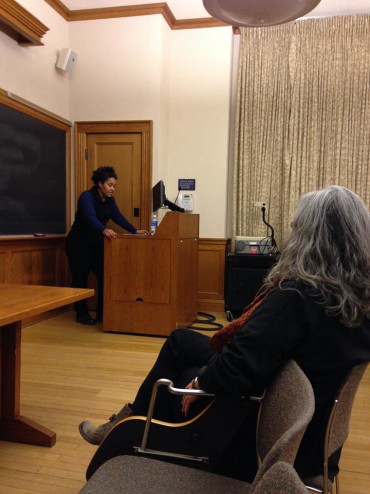
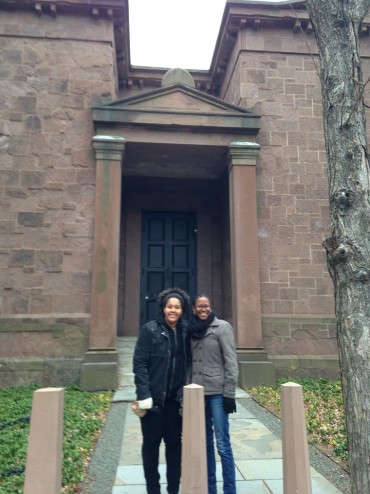
My Latest Piece at HuffPost: The Police and Their Masculinity Problem
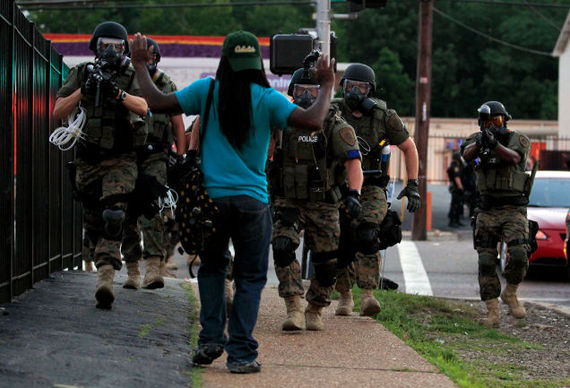
In this article I examine the role masculinity plays in police brutality and in civilian deaths at the hands of police.
It is easy to confuse asserting your humanity and defending your life with asserting and defending your manhood. But it’s necessary to figure out the difference. It’s a matter of life and death. Asserting your manhood is never worth a life. When you kill a man in order to become ‘the man’, you are not a man. You are a killer.
Black lives matter. All lives matter but masculinity… not so much.
You can check out the article HERE
Paper Invite for OUP Handbook of Philosophy and Race
I have been invited to write a paper for Oxford University Press Handbook of Philosophy and Race. My paper will be on the new racism that lurks within the criminal justice system. I’m looking forward to contributing and also reading other articles from my brilliant colleagues. The book is being edited by Naomi Zack. She was recently in the New York Times talking about white privilege with George Yancy. Check out the interview here and look out for the book soon.
Presentation on Django and Masculinity
Recently I had the opportunity to present a paper at the American Society for Aesthetics. The panel I sat on was on Slavery and Cinema. My paper was entitled “Man Up, Man Down: Django Unchained and Black Masculinity.” In the paper, I explore hegemonic masculinity in the Old South and explained how Django, in comparison with the character Stephen, rejected it and carved out a more virtuous character. I also gave some lessons as well as warnings from the film.
The pictures below are courtesy of Luvell Anderson who also gave a talk on rap at another session. Lets just say, he should stick with philosophy of language and not photography.
New Piece: Praise the Lord or Praise the Person?
Check out my latest piece where I argue that God should not be praised at the expense of denying praise for Human good. Here’s an excerpt:
Humans should also be praised because positive reinforcement and validation teaches and encourages people to be better. Moral and character education has proven that the more we praise people for their good actions, the more they are prone to continue to do good acts. Mark Alfano argues that if we ascribe moral traits to persons they will take on that trait. This ascribing becomes prophetic fulfillment. Taken together, if we provide praise by thanking people or specifically articulating to them their praiseworthy trait (honest, kind, charitable), humans will become just that. Don’t worry! Praising people will not make them gods, it will make them good.
Critical Philosophy of Race Journal Article

Some comrades and I (Liam Bright, Tina Botts, and & Quayshawn Spencer ) co-wrote an article called “What is the State of Blacks in Philosophy?”. It has been just published in Penn State’s “Critical Philosophy of Race” journal. It’s a piece that gives an empirical look into blacks in the US doing philosophy. This is the empirical part of a two part analysis of blacks in the profession.
This is also my first published journal article!!!! Also, Chris Lebron has a brilliant piece in the journal on “Equality From A Human Point of View”, showing the awesomeness of blacks in philosophy.
If you have university access, click here for the piece.
Non-University Access Read it here
My Summer at the Rutgers Institute For Diversity in Philosophy
For almost twenty years, Howard McGary and the Rutger’s Summer Institute for Diversity in Philosophy have been doing their part to make the profession more diverse. This summer at the Institute, I served as a panelist as well as a mentor to undergraduate students for seven awesome days. I was inspired by them, amazed by their brilliance, and I look forward to the contribution they will make in philosophy.
Thanks Bianka For the Pics!!!!
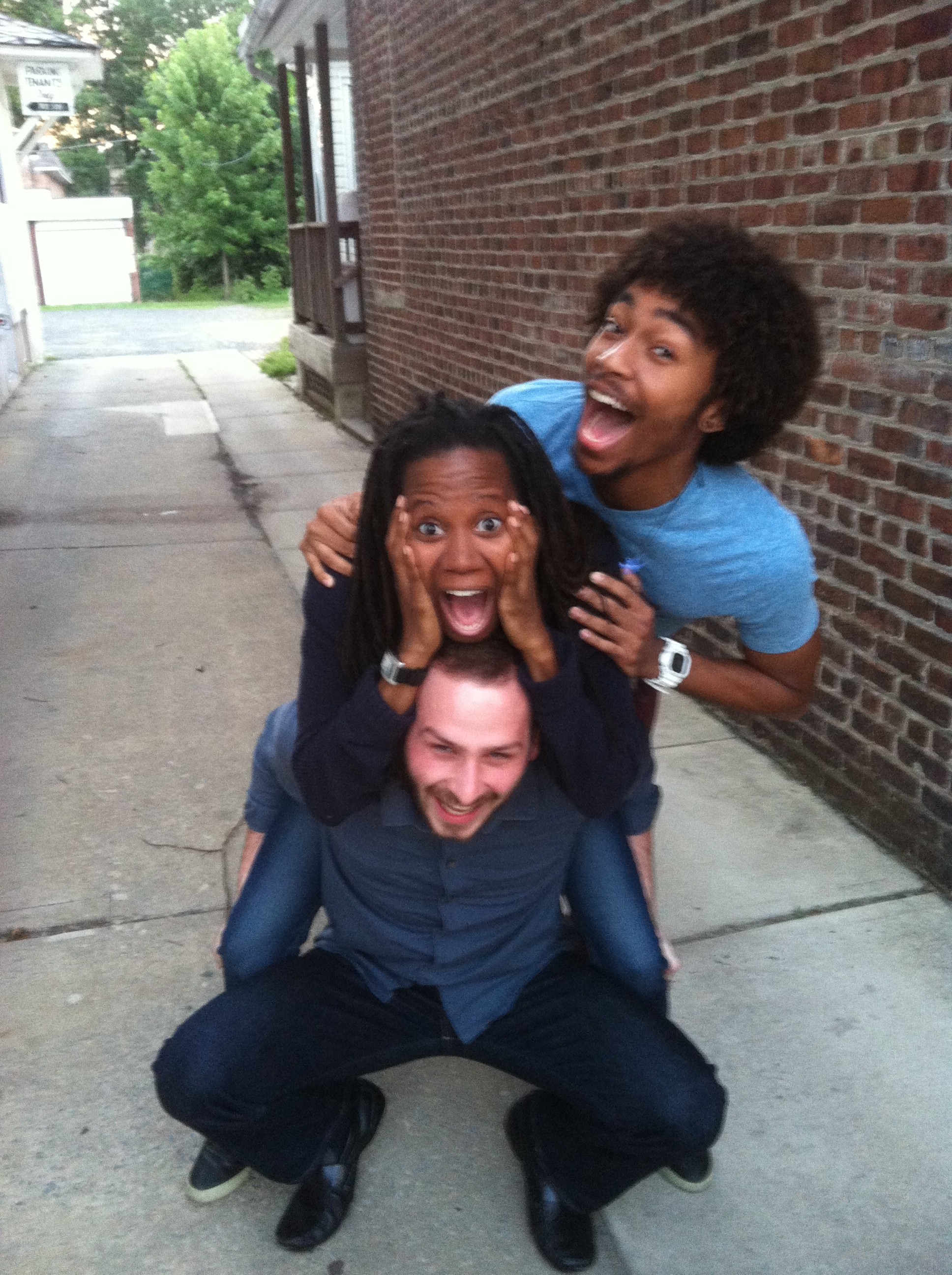
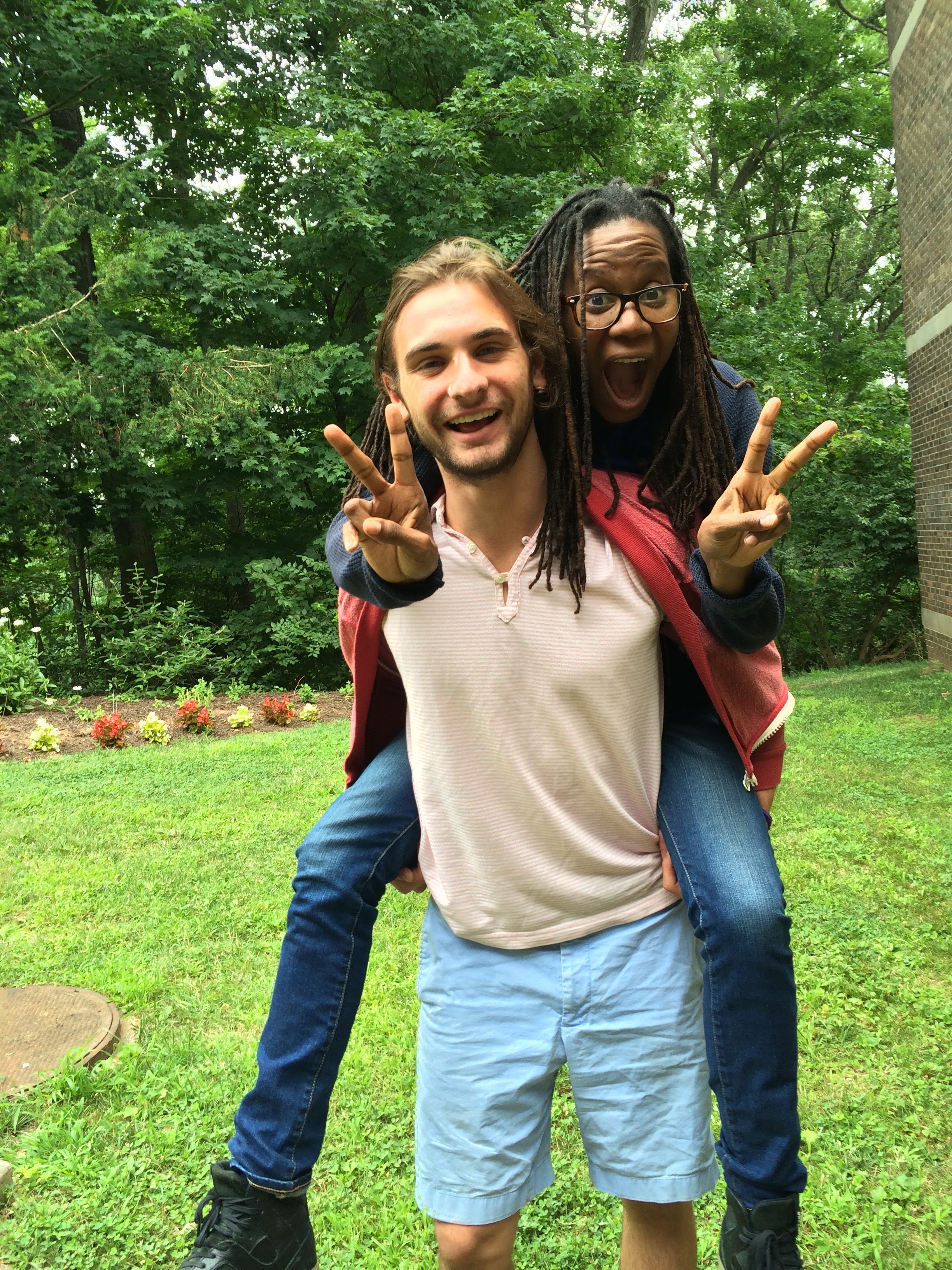
Teaching a Debate Course: My Adventure and Some Resources and Tips
For two weeks this summer, I served as a debate & political philosophy teacher to some amazing students at Liberty Leads in Harlem. They were very smart, whitty, charismatic, and overall great kids.
We covered three ethical issues: legalization of drugs, undocumented children, and censorship. Their critical thinking skills shined through on each issue.
You can check out our syllabus here and course website here. The course website has detailed resources for each negative and affirmative position the kids could take.
Please borrow some teaching ideas and let me know how it went. If you need a sample of slides, check out the slideshare clip below.
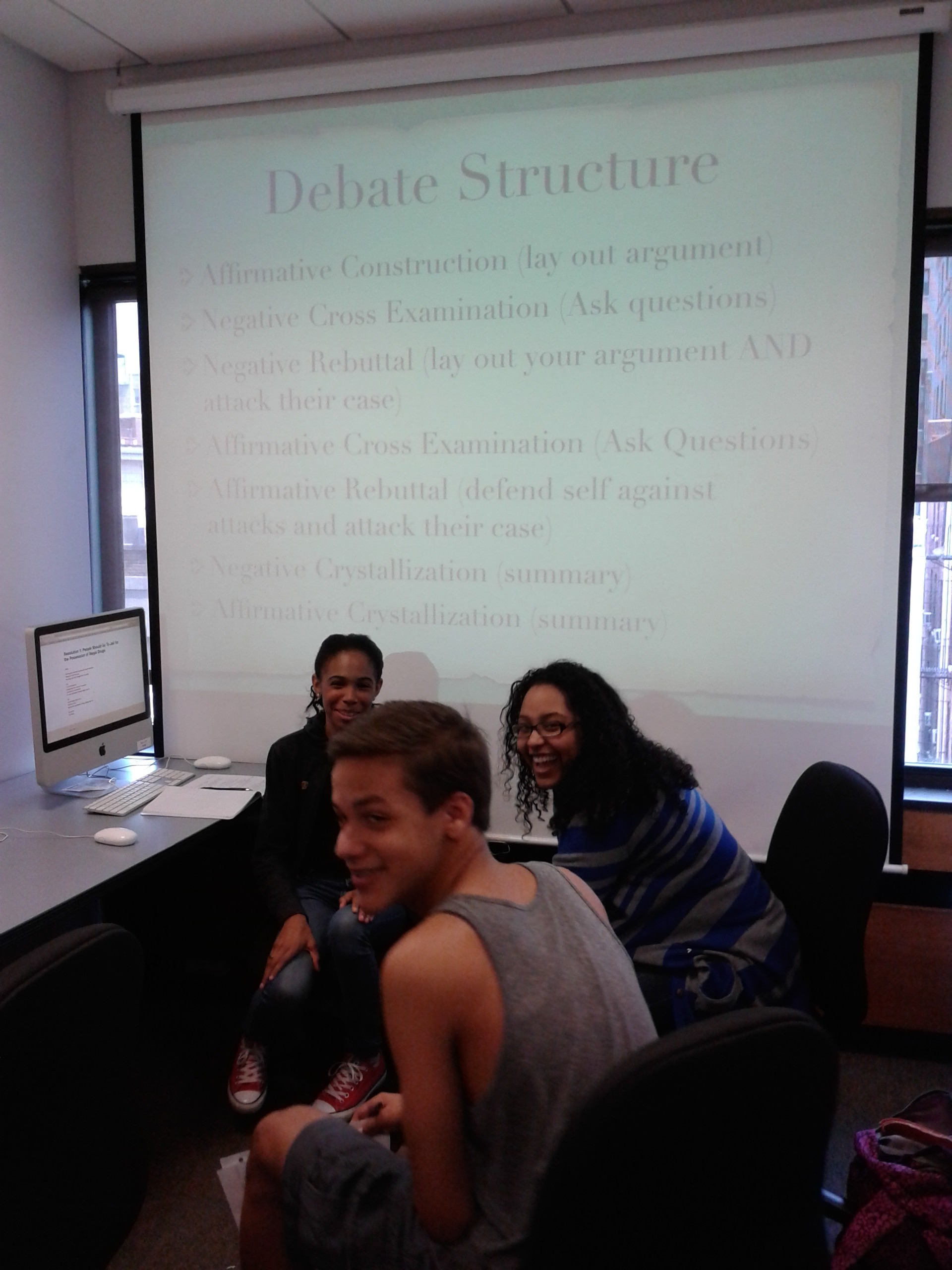
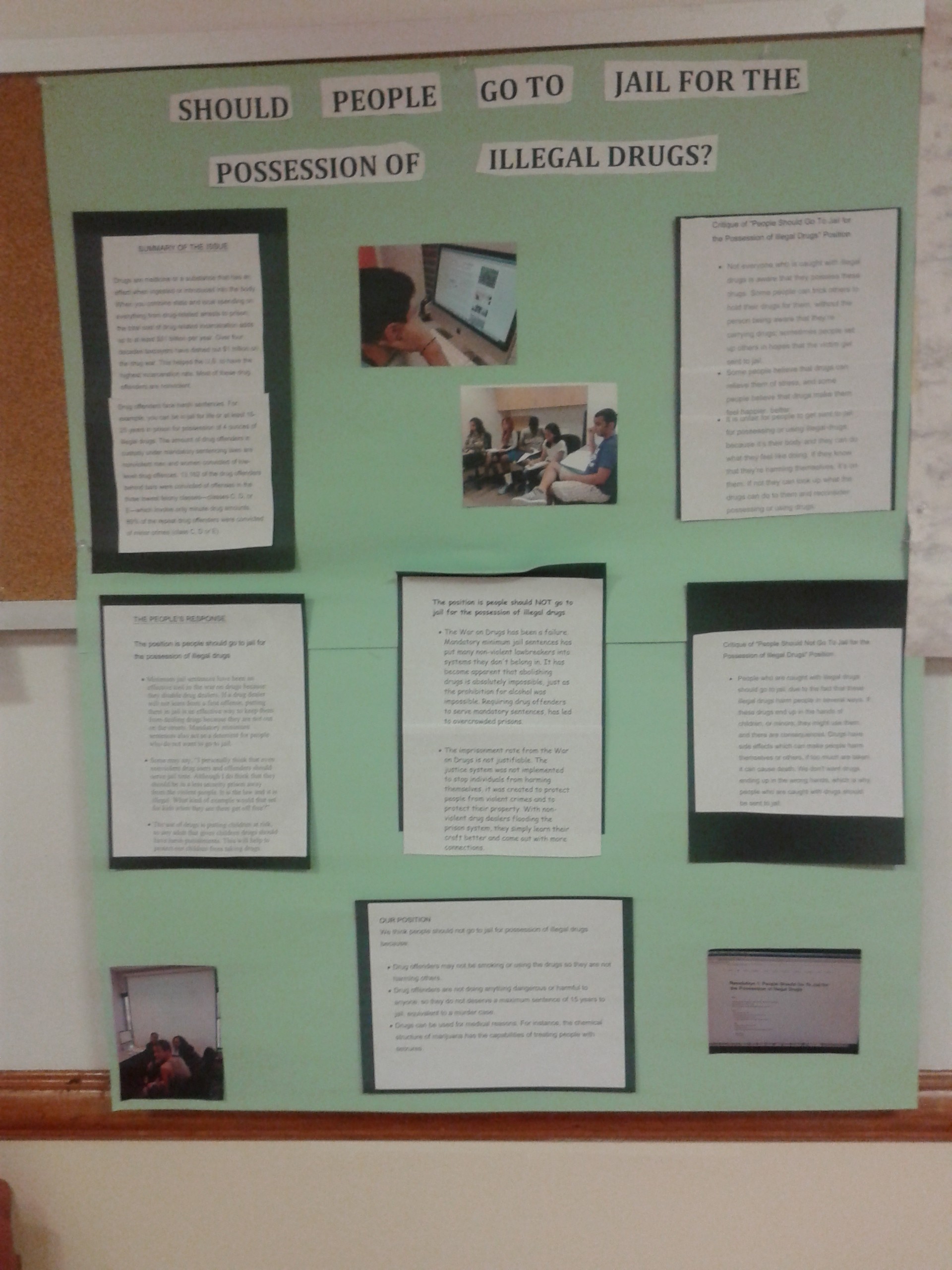
##
My Latest Piece at HuffPost: Minorities, State Violence, and the Price of Self-Respect
Check out my latest for HuffPost: Minorities, State Violence, and the Price of Self-Respect. Here is an excerpt.
When phrases like “I am Sean Bell” is articulated, it is said in hopes that people will realize that we are all vulnerable to ill treatment by the state and one should have a right to assert their self-respect by not having to run or alter one’s path on their way home. Or by not having to beg for mercy or blindly and silently be obedient to those in authority who out rightly show you through their worse behavior, that they “never loved us.”
Violence is not the most effective way to respond to injustice, but self-respecting individuals taking a stand together against injustice is. This is a price we all can afford. The question is do we respect each other enough to believe that others and ourselves are worth it?
Workshop at the Cuny Grad Center on Walkerian Virtues
My Latest Piece at HuffPost: “What’s So Bad About Being Good”
My Latest Piece at HuffPost Examines what’s so bad about “acting like a man” and “acting like a Lady” from an Aristotelean and feminist perspective.
You can check out the article Here. Excerpt is below. Please share with others.
Gendered virtues also perpetuate patriarchy. To have “feminine virtues” like chastity, modesty and obedience is what it means to act like a lady. A woman who is not modest is said to be asking for attention or “asking” to be raped. A woman who is not obedient is believed to be a b*tch. A woman who is not chaste is considered not a lady at all. To be good in our society, a woman must possess these virtues. If she doesn’t she will be victim-blamed, told she will not get married or accused of hating men. These feminine virtues can be described as what Lisa Tessman calls the “burdened virtues,” because although these virtues may create some good in the end they morally damage the lives of the agent in the process….
End virtue segregation! Let’s all work on being the best people we can be not the best feminine or masculine cultural productions we feel we must become in order to fit into masculine or feminine categories. Trying to make morality fit gender categories is like trying to fit a square peg in a round hole. Morality should not be risked for the sake of this twisted gender game.
Thoughts on Marc Cuban’s Race Comments on HuffPost Live
“Acting Mean” at John Jay College
Acting Mean @BK Library Review
HuffPost Live Interview: Violence on Queer Black Women
Acting “Mean” at the BK Library
My SAAP Talk
This past weekend, I attended and presented a paper at the 41st meeting of the Society for the Advancement of American Philosophy in Denver, Colorado. My paper was “Acting Mean: Queering Hegemonic Masculinity through the Cultivation of Virtues.” It’s a shorter version of a larger project I am working on. The audience was gracious and offered up helpful suggestions and insight. It was also great presenting with my comrades, Amir Jaima and Alfred Prettyman of SSAP.
I will be presenting a more in depth version of the paper at the Brooklyn Library Tuesday, March 18th, 2014. For more info about the paper and the Upcoming Brooklyn Event, Visit Here.
My SXSWedu Presentation: TEXTnology In The Classroom
I am grateful for having had the opportunity to present at SXSWedu in Austin, Texas. My presentation was called “TEXTnology in the Classroom.” The 2 hour workshop-based on my texting experience in my philosophy classes–consisted of sharing best practices on how to use texting in the classroom. I had a blast and the audience was amazing, thoughtful, and creative. If you were not at SXSW, I have provided the presentation and slides below to help you incorporate texting into your classroom.
Thanks to Dave Basulto for recording the session!!! The video is the intro and creative ideas from audience members. For copyright reasons the full presentation is not available. However, I have the slideshare presentation after the video. Enjoy.
PICTURES
##
Glenn Burke, Not Jason Collins, Was The First Openly Gay Athlete in Major Sports

This pass Sunday, Jason Collins, became the first actively openly gay athlete in the four major sports in the United States when he played for the Brooklyn Nets against the Lakers. However, our limited view of history may have us all wrong about what the historical moment we thought was occurring. In 1976, a black major league baseball player, Glenn Burke, made history. The thing is, the media was too scared to talk about it. Allen Barra talked about this fact in The Nation last year, but it seems not everyone has heard the truth. This doesn’t take away from anything that Jason Collins has done. It takes guts to do what he has and is doing. Its just nice to get a good history lesson and to also learn from the mistakes of the past.
The Hip-Hop Fellow (Trailer)
“The Hip-Hop Fellow” is a look into Producer 9th Wonder time as educator of Hip Hop at Harvard University.
The Hip-Hop Fellow gives the 7 billion people who have not attended that prestigious institution a chance to bear witness to this historical moment, where the integration of hip-hop as an academic endeavor is finally accepted as a viable discipline. You can catchDr. Henry Louis Gates, Young Guru, Kendrick Lamar, Pete Rock, DJ Premier, Ab- Soul, Ali Shaheed Muhammad and so many more vouch for the weight of 9th and this project in the trailer for The Hip-Hop Fellow below. Be sure to make your way to your nearest cineplex to see the doc when it drops in April.–OKayPlayer.com
Inside “Masculinities”: A Free Online Journal
Does Masculinities studies sound strange to you? As a feminist I think it’s important that I see not only women as victims of patriarchy but men as well. Masculinities studies aim to examine the latter and so much more.
There is a new journal covering work in Masculinity studies. You can visit the PDF version of the Journal of Masculinities Studies HERE
Here is some info below.
From the very onset of its establishment, critical studies of men and masculinities aimed to investigate “men” and “masculinities” as primary agents and beneficiaries of patriarchy, criticising the roles of men and masculinities that construct socially and culturally disadvantaged positions for women and LGBTQs, and focus on a vast array of issues, including (but not limited to) identities, experiences, subjectivities, discourses, representations, sexualities, bodies, power, emotions, politics, cultures, social relations, intimacies, socializations, childhood, youth, fatherhood, elderliness, families, violences, literature, films, media, and so on and so forth.
Welcome to the first issue of Masculinities Journal, the very first offspring of our humble efforts. Masculinities Journal is a peer-reviewed academic journal and it aims to become an essential source for scholars, researchers, activists and anyone who wish to follow contemporary debates in critical studies on men and masculinities. We are planning to provide a critical platform to bring together critical discussions on men and masculinities from a wide range of disciplines in social sciences and humanities. We hope that the journal may establish and maintain an academic standard and it will be recognized as one of the leading journals on men and masculinities in the shortest time possible.
You can visit the PDF version of the Journal HERE
Dare To Use The F-Word
Barnard College has a new podcast series called “Dare To Use The F-Word.” Of course F-Word stands for “Feminism”.
Podcast titles such as “Perfection”, “Image and Media”, and “Street Harassment” is available for your listening pleasure.
More from their website:
Dare to Use the F-Word tells the stories of today’s feminists through the art, the ideas, the community, and the activism that define them. These monthly podcasts, co-produced by the Barnard Center for Research on Women and Barnard College Communications, will bring you interviews, conversations, and voices making change to create a more just world. And there’s no better place to do this than at Barnard. For nearly 125 years, this College, in the vibrant City of New York, with the first center for research on women in the US, has been a hub of young feminist activity—a place where theory and practice, scholarship and action, converge. We dare to use the F-Word. We hope you’ll join us.
Russia Thanks Us for Our Intolerance

We would like to think that we are not like our once cold war enemy, Russia. “They” are intolerant and oppressive. And “they” are presently doing an injustice to gay people. But before we start throwing stones from our red, white, and blue glass house, we need to take a look at our own intolerance. What better way to do this than through satire.
The Onion is pretty on point in the video below with pointing out that Putin is not the only one intolerant of gays during this winter’s Olympics. America’s sports leagues and sports athletes seem to be in agreement with him all year round (Chris Culliver, Tank Carder, and Jonathan Vilma have said some anti-gay things, other athletes like Kobe Bryant and Amare Stoudemire have been called out for using the word “fag”, and Jason Collins is unemployed).
This just goes to show that there is no hierarchy to intolerance. We cant condemn Russia and ignore that there still are sodomy laws on the books in certain states, you can be fired for being gay in states like Mississippi, same sex couples cant get married in over 20 states, and hate crimes against members of the LGBTQ community is real. Intolerance is Intolerance. America, we must get ours in check. Remaining on high horses is not an Olympic event. Its time to get off.
Russia Applauds America’s Efforts To Exclude Gay Athletes From Professional Sports
Dale Hansen On Micheal Sam

Michael Sam is a NFL prospect who just came out as gay to the public. If he is drafted, and he will be, this will make him the first openly gay man in the NFL. Questions have been raised, “Is the NFL ready for an openly gay player.” We’ve heard some strange answers to that question this week and even seen Sam’s draft rankings go down. But Dale Hansen, local Florida sportscaster, has something to say about the matter, and he says it well!! He even quotes Audre Lorde for gods sake!
My Latest Piece: Drug Abuse and our Biased Compassion
Here is my latest piece at Huffington Post, “Drug Abuse and our Biased Compassion.” Visit here to take a read and please join the conversation on the site. Below is an excerpt.
I am not arguing that we should treat rich white men and their drug problems like we inhumanely treat the poor and people of color. I think it should be reverse. What we need is an unbiased compassion for all individuals. The same compassion, humane attitude, and value of life we as a society lend to rich white men on drugs, is the same we should extend to all addicts. Philosopher Schopenhauer argued that compassion is the real basis of morality. This fellow feeling is what defines our actions and lives as moral. But if compassion only extends to certain individuals and not to others, then what does that say about our own morality?
